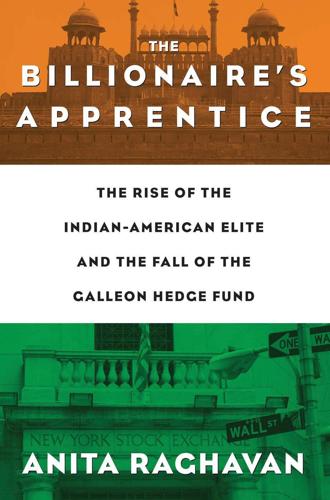
The Billionaire's Apprentice: The Rise of the Indian-American Elite and the Fall of the Galleon Hedge Fund
by
Anita Raghavan
Published 4 Jun 2013
The most obvious synchronicity was the call Gupta placed after the Buffett investment. On August 2, 2010, the SEC sent a subpoena for documents to Gupta seeking information about his investments, any communication with Rajaratnam at certain relevant times, any transfers of money, and his Rolodex. Getting the Rolodex ultimately turned out to be far more complicated than the SEC lawyers had imagined. Before Gupta would relinquish his Rolodex, which included the numbers of famous figures including Bill Gates and Bill Clinton, his lawyers entered into a protracted back-and-forth over which numbers among his hundreds and hundreds of contacts would be protected. A day after the SEC sent the document subpoena, Jason Friedman telephoned Gupta’s defense attorney Gary Naftalis and told him that once the SEC lawyers reviewed the documents, he planned to seek testimony from Gupta.
…
He tapped his well-connected Doon School friends—the scions of India’s biggest business families, such as the Oberois—to send projects his way. And he built lines into the country’s oldest corporate dynasties, such as the sprawling Modi Group, with its interests in glass, rubber, and travel. No card in his Rolodex was left unflipped and no opportunity to network was squandered. He leaned on his father-in-law, Ratan Dayal, a longtime marketing executive at Burmah Shell, at one time regarded as the jewel in the crown of British companies in India. Unlike the winner-take-all entrepreneurialism rampant today in Indian companies such as Reliance Industries, working at Burmah Shell was a genteel affair, an exercise in comfortable capitalism.
…
The other list was a hard copy of investors that ran into the hundreds of pages. This list could be searched only manually. But for some reason when Michaelson, who was looking for investors in Galleon that were possible sources of inside information, punched in the name Anil Kumar, a contact in Rajaratnam’s Rolodex, nothing came up in the electronic list. He eventually found Kumar’s name, alongside that of an account holder, Manju Das, in the hard-copy list of investors. Next to Kumar’s name was his address in California and his phone number. To Michaelson, Kumar and Das were nothing more than a couple of Indian-sounding needles in a haystack of data.
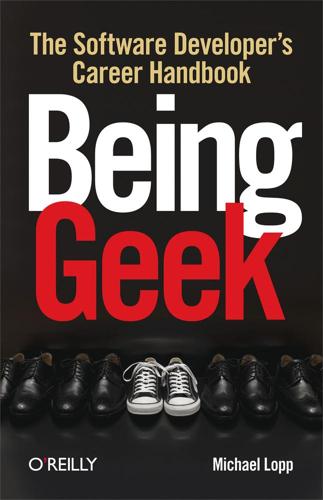
Being Geek: The Software Developer's Career Handbook
by
Michael Lopp
Published 20 Jul 2010
I have a Rolodex. It's not actually a Rolodex, it's a list, and on that list is every single person whom I'll call when I do the start-up thing. In each company I've worked at, I've had the Rolodex moment when I realize that someone I'm working with belongs on this list. It's a rare, wonderful moment. There's a risk when you leave a gig that you're leaving people behind who you're going to need at a later date, who aren't going to survive the transition to your new gig. There's also a chance that you've missed an obvious Rolodex candidate. The reality is: Inclusion on the Rolodex is defined by the ability to survive job changes, although, paradoxically, you won't actually know that for sure until you leave.
…
The reality is: Inclusion on the Rolodex is defined by the ability to survive job changes, although, paradoxically, you won't actually know that for sure until you leave. Part of my inclusion criteria is that I see my relationship with this person as something larger than the current gig. If they're on the Rolodex, it means I believe our relationship is no longer defined by the current job, and there's no better way to test this hypothesis than switching gigs. Are you done? In your current gig, are you close to a state where all of your major commitments are either complete or won't come crumbling down if you leave? I'm not saying every single task has been crossed off; I'm saying that the work that you can uniquely do can either be completed or handed off to a competent person.
…
remote, working, The Pond repetition in game play, Discovery: From Confusion to Control repetitive motion, removing, My Tools Do Not Care Where My Work Is reputation, Delivery, Wanderlust, On Excuses, Question #2: Industry and Brand, Question #2: Industry and Brand company, and career moves, Question #2: Industry and Brand hits to, On Excuses low priority work and, Wanderlust maintenance of, Delivery requisitions for hiring (reqs), Wanted research, prior to phone screens, The Sanity Check resignation of team members, Mind the Gap respect for management, A Hint of an Insane Plan response to fuckups, Management Transformations, The Prioritizer, The Randomizer, The Illuminator, The Illuminator, The Enemy Enemy, The Enemy Illuminator, The Illuminator Interrogator, Management Transformations Prioritizer, The Prioritizer Randomizer, The Randomizer responsibility for issues, Partial Information resumés, during phone screens, Stalk Your Future Job Reveal, the, The Reveal revenge, and the Screw-Me scenario, You Might Be Lying reviews, yearly, No Surprises Rolodex and work relationships, Who are you leaving behind? routine meetings, importance of, Invest in the Boring rules of games, An Entertaining System, Discovery: From Confusion to Control, The Rules of the Game, This Isn't Role Playing; This Is Life or Death, Your Nerd Has Built Himself a Cave, Rules of Play, Rules of Play Back Alley Bridge (BAB), Rules of Play discovery of, An Entertaining System, Your Nerd Has Built Himself a Cave optimization of, Discovery: From Confusion to Control universal rules of, The Rules of the Game Werewolf, This Isn't Role Playing; This Is Life or Death S salary negotiations process, You Are the Business, Pre-Game, How Am I Doing?
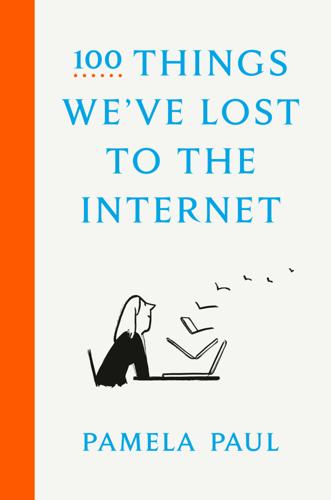
100 Things We've Lost to the Internet
by
Pamela Paul
Published 14 Oct 2021
Because I’m really here in real life,” the singer Adele said to a fan during a European concert tour. “This is a real show.” [ 29 ] THE ROLODEX Heavyset and imposing, the Rolodex stood guard next to the multiline phone on the desks of the top brass; sometimes several were lined up in a demonstration of might, a nerve-racking sight to behold during a job interview. “This guy knows everyone,” you’d think to yourself, along with the corollary, “I’m no one.” As soon as you got your first desk job, you would order a black Rolodex of your own from the office supply catalog, a baby step on your way up. You tried to fill it in with any business card you could get, your friends’ cards, your mom’s even, just so it wouldn’t look bare.
…
Classification: LCC HM1111.P37 2021 (print) | LCC HM1111 (ebook) | DDC 302.23/1—dc23 LC record available at https://lccn.loc.gov/2021023988 LC ebook record available at https://lccn.loc.gov/2021023989 Ebook ISBN 9780593136782 crownpublishing.com Book design by Elizabeth Rendfleisch, adapted for ebook Cover design: Christopher Brand Cover illustration: Nishant Choksi ep_prh_5.8.0_c0_r0 Contents Cover Title Page Copyright Epigraph Introduction 1 ] Boredom 2 ] The Period 3 ] The Know-It-All 4 ] Getting Lost 5 ] Losing Your Ticket 6 ] The Meet-Cute 7 ] Bad Photos 8 ] Filing 9 ] Ex-Boyfriends 10 ] Being Late 11 ] Benign Neglect 12 ] The Designated Driver 13 ] The Phone Call 14 ] Medical Forms 15 ] Uninhibitedness 16 ] The School Library 17 ] Flea Market Finds 18 ] High School Reunions 19 ] “They Forgot My Birthday” 20 ] The Phone in the Kitchen 21 ] The Family Meal 22 ] Private Humiliation 23 ] The Bookish Boy 24 ] Window Shopping 25 ] Solitude 26 ] Productivity 27 ] Letters to the Editor 28 ] Losing Yourself in a Show 29 ] The Rolodex 30 ] Relying on the Doctor 31 ] Being First 32 ] Being the Only One 33 ] Birthday Cards 34 ] A Good Night’s Sleep 35 ] Knowing the Number 36 ] The Paper 37 ] Unpopular Opinions 38 ] Solo Travel 39 ] Paperwork 40 ] Missed Calls 41 ] The Spanish-English Dictionary 42 ] Patience 43 ] Ignoring People 44 ] Dittos 45 ] Seniority 46 ] Looking Out the Window 47 ] TV Guide 48 ] Civility 49 ] Receptionists 50 ] Private Observances 51 ] Leaving a Message 52 ] Toys and Games 53 ] Maps 54 ] Empathy 55 ] Handwritten Letters 56 ] Old Tech 57 ] Being in the Moment 58 ] Spelling 59 ] Record Albums 60 ] Wondering About the Weather 61 ] Bedtime Reading 62 ] The Emergency Breakthrough 63 ] Your Attention Span 64 ] Sleepaway Camp 65 ] Rsvps 66 ] The Social Studies Textbook 67 ] Vacation 68 ] The Filofax 69 ] Eye Contact 70 ] Working Independently 71 ] Magazines 72 ] Asking Politely 73 ] Airplane Encounters 74 ] Your Checkbook 75 ] Missing Out 76 ] Penmanship 77 ] “Excuse Me” 78 ] Christmas Letters 79 ] Figuring Out Who That Actor Is 80 ] Passing Notes 81 ] Sick Days 82 ] Secrets 83 ] Card Catalogs 84 ] The College Lecture 85 ] Memory 86 ] Movie Theaters 87 ] Losing the Instruction Manual 88 ] The Blind Date 89 ] The Encyclopedia 90 ] The New Kid 91 ] The View 92 ] Scrabble Tiles 93 ] Humility 94 ] Cliffsnotes 95 ] A Parent’s Undivided Attention 96 ] Touch-Typing 97 ] Photo Albums 98 ] Blocking Things Out 99 ] Social Cues 100 ] Closure Dedication Acknowledgments Also by Pamela Paul About the Author “One morning you’ll simply wake up and it will be over, before you’ve even realized.
…
You tried to fill it in with any business card you could get, your friends’ cards, your mom’s even, just so it wouldn’t look bare. A Rolodex had to be well stuffed to make clear that you knew people—lots of people, important people, unlisted people—and that you knew how to get in touch with them. “You are who you know,” the expression went, and it meant that you were what we then called “connected.” From the moment it was invented in 1956 for the Mad Men era, the spiral-bound, rotating card-containing device whose name was a portmanteau of the words “rolling index” was the follower count of its day, separating the riffraff from the muckety-mucks.
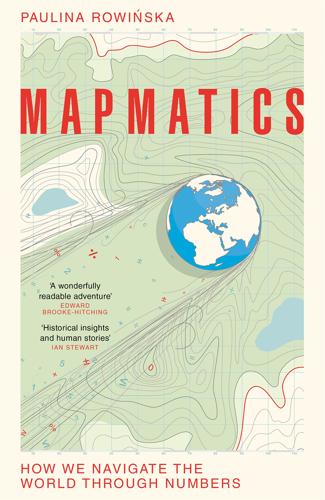
Mapmatics: How We Navigate the World Through Numbers
by
Paulina Rowinska
Published 5 Jun 2024
Instead of a supercomputer, the system designed at Georgia Tech relied on an Atlanta street map with a clear coordinate grid, a table relating the coordinates to their position along the curve, and two Rolodex card files.* To create the table, the researchers converted each pair of coordinates (horizontal and vertical) from the map into a single number representing its relative distance from the beginning of the curve, a value which uniquely identified a delivery location. Both Rolodex files contained cards corresponding to current clients: one sorted alphabetically by clients’ names and one sorted numerically by their location along the space-filling curve.
…
All each driver needed to do was to deliver the meals in the order provided by their part of the Rolodex. FIGURE 5.8: The meals should be delivered in the order represented by the infinite version of this curve. The dots represent the locations of clients. This system allowed the manager to easily adjust the delivery routes without any need for time-consuming recalculation. Whenever a new client appeared, the manager would simply read their location from the map, convert the coordinates to the position along the curve using the table, and insert two new cards into the two Rolodexes. If someone didn’t need lunch deliveries anymore, both of their cards would be removed.
…
* Remember, this means that the direct journey, without any deviations, gives the shortest distance between two destinations. * More generally, the nearest neighbour solution to a TSP problem with n places (again, assuming symmetric distances and triangle inequality) won’t be worse than 1 + 0.5(log2n) times the true optimal solution. * Rolodex is a business card storage device, which allows the user to quickly navigate to a specific card by rolling them (hence the name: rolling + index). * In the UK and other countries with left-hand-side traffic, this would correspond to right turns. * If you want to visit these four US states at the same time, you need to head to the Four Corners Monument
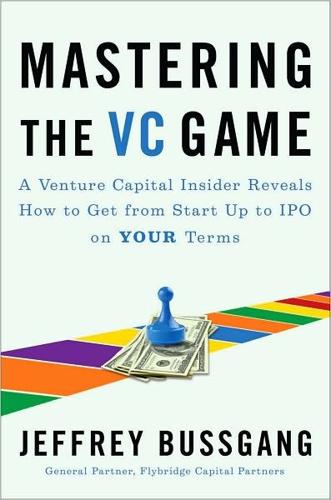
Mastering the VC Game: A Venture Capital Insider Reveals How to Get From Start-Up to IPO on Your Terms
by
Jeffrey Bussgang
Published 31 Mar 2010
They can provide broad support, like helping to recruit people or sorting out things like office leases and that kind of stuff. Then there are people like me, who are very professional and involved in the space, but also extremely busy with a day job and two boards and everything else but can lend their Rolodex to be helpful. Then there are hobbyists, usually retired, who are pretty passive. I generally find that it’s better to get one of the first two types.” On the other hand, the venture capital firm offers something that other funding sources generally do not: active participation in the development and management of the start-up business.
…
What’s important for the entrepreneur, especially the first-time entrepreneur, is to understand just how well connected the partners around the table really are, and how much they rely on their networks for information and deals. This does not mean that if you don’t know anybody, you can’t make connections that will help you. Networking tools, such as Reid Hoffman’s LinkedIn, as well as old-fashioned Rolodex-building activities, like attending relevant conferences and mining various alumni networks, should allow any determined entrepreneur to get a warm introduction. Venture capitalists admire tenacity and resourcefulness—all qualities that an entrepreneur can and should exhibit from the first email, phone call, or handshake with a VC.
…
With John’s help and that of the other investors and advisers around the table, we were able to get in front of nearly every CEO we wanted to meet. I’m on a board with a VC who asks our CEO to include in every board presentation the five top introductions to prospective partners and customers he’d like us to make for him. VCs often compete with each other based on the quality of their Rolodex. “Who knows the chief marketing officer at Pepsi?” one of my portfolio CEOs asked the board the other day. I raised my hand like an eager kid in the classroom, dutifully took down the action item to reach out to this particular executive, and followed up assiduously to help foster a connection. Every VC aspires to be that go-to resource.
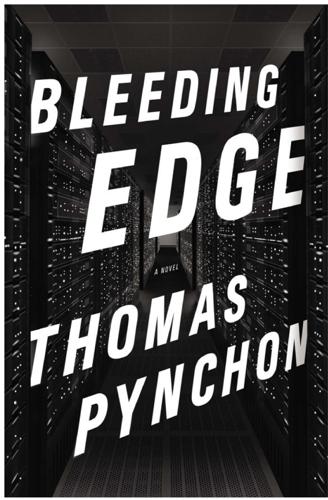
Bleeding Edge: A Novel
by
Thomas Pynchon
Published 16 Sep 2013
She tiptoes in about the time Daytona screams, “I’ll sign them muthafuckin papers then I’m outta here, you wanna be a dad, you take care of that whole shit,” and slams the phone down. “Morning,” Maxine chirps in a descending third, sharping the second note maybe a little. “Last call for his ass.” Some days it seems like every lowlife in town has Tail ’Em and Nail ’Em on their grease-stained Rolodex. A number of phone messages have piled up on the answering machine, breathers, telemarketers, even a few calls to do with tickets currently active. After some triage on the playback, Maxine returns an anxious call from a whistle-blower at a snack-food company over in Jersey which has been secretly negotiating with ex-employees of Krispy Kreme for the illegal purchase of top-secret temperature and humidity settings on the donut purveyor’s “proof box,” along with equally classified photos of the donut extruder, which however now seem to be Polaroids of auto parts taken years ago in Queens, Photoshopped and whimsically at that.
…
Ten minutes?” Rocky is sitting in a booth in the back, in the deep underlit recesses of the Omega, with a smooth business type in a bespoke suit, pale-rimmed glasses, medium height, yuppie demeanor. “Sorry to pull yiz away from work and shit. Say hello to Igor Dashkov, nice guy to have on your Rolodex.” Igor kisses Maxine’s hand and nods to Rocky. “She is not wearing wire, I hope.” “I’m wire-intolerant,” Maxine pretends to explain, “I memorize everything instead, then later when they debrief me I can dump it all word for word on the feds. Or whoever it is you’re so afraid of.” Igor smiles, angles his head like, charmed I’m sure.
…
would be an interesting question to pursue, except that Giuliani, in his tireless quest for quality infrastructure, has caused not one but several jackhammers to start up well before working hours, figuring the taxpayers won’t object to the extra overtime pay, and any message is corrupted, fragmented, lost. 19 Meantime Heidi, back from Comic-Con in San Diego, her head still teeming with superheroes, monsters, sorcerers, and zombies, has been visited by NYPD detectives looking into the address books of Heidi’s old ex-fiancé Evan Strubel, who has recently been run in on charges of aggravated computer tampering, in connection with a federal insider-trading beef. Heidi’s first thought is, He still has me in his Rolodex? “You two were romantically involved?” “Not romantically. Baroquely maybe. Years ago.” “Was that before or after he got married?” “Thought you guys were from the precinct, not the Adultery Squad.” “Pretty touchy,” it seems to the Bad Cop. “Yep, and feely too,” Heidi snaps back. “What’s it to you, Your Eminence?”
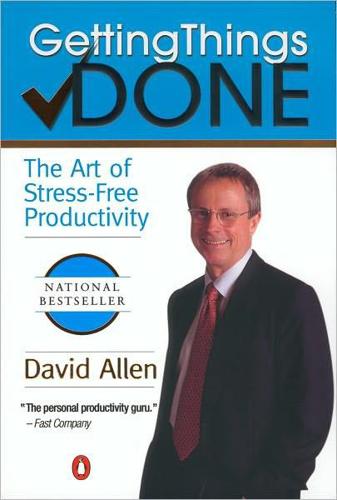
Getting Things Done: The Art of Stress-Free Productivity
by
David Allen
Published 31 Dec 2002
The more the merrier, as far as I’m concerned, since increasing the volume of pure reference material adds no psychic weight. The Variety of Reference Systems There are a number of ways to organize reference material, and many types of tools to use. What follows is a brief discussion of some of the most common. • General-reference filing—paper and e-mail • Large-category filing • Rolodexes and contact managers • Libraries and archives Your filing system should be a simple library of data, easily retrievable—not your reminder for actions, projects, priorities, or prospects. General-Reference Filing As I’ve said, a good filing system is critical for processing and organizing your stuff.
…
When you read a great article about wood fencing and want to keep it, does that go in your “Garden” cabinet or in the general system with other information about home-related projects? As a general rule, it’s best to stick with one general-reference system except for a very limited number of discrete topics. Rolodexes and Contact Managers Much of the information that you need to keep is directly related to people in your network. You need to track contact information of all sorts—home and office phone numbers and addresses, cell-phone numbers, fax numbers, e-mail addresses, and so on. In addition, if you find it useful, you may want to maintain information about birthdays, names of friends’ and colleagues’ family members, hobbies, favorite wines and foods, and the like.
…
It’s instructive to note that this is purely and simply reference material. No action is required—this is just information that you might need to access in the future. So there’s no big mystery about how to organize it, aside from the logistics for your individual needs. Again, the only problem comes up when people try to make their Rolodexes serve as tools for reminding them about things they need to do. That doesn’t work. As long as all the actions relative to people you know have been identified and tracked in your action reminder lists, there’s no role for telephone and address systems to fill other than being a neutral address book.
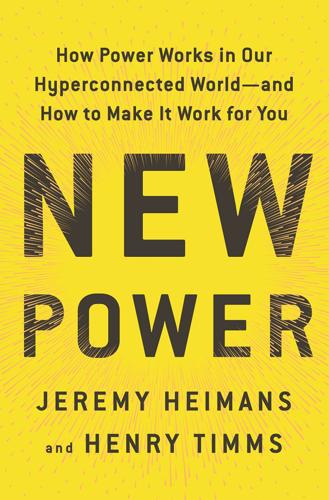
New Power: How Power Works in Our Hyperconnected World--And How to Make It Work for You
by
Jeremy Heimans
and
Henry Timms
Published 2 Apr 2018
To get a film made he’d write a “treatment” (it was too expensive to make a teaser video), carefully cultivate a few powerful bosses inside the all-powerful government film funding body, submit himself to the Kafkaesque administrative process, and then wait, fingers crossed, for his fate to be announced. Henry’s mother, Diann, worked as a children’s book illustrator in England. Her fundraising tools were her portfolio and her Rolodex. Her portfolio showcased her technical proficiency and the range of her work and signaled which other publishers had backed her output. Her Rolodex was critical to landing a big “meeting in London,” which could lead to an editor raising a thumb (or not), the key to Diann’s livelihood. Even a “yes” began a sometimes endless back-and-forth about requested alterations to her work, which were not always served up with much explanation or logic.
…
They treat readers like experts by allowing them to add a tag to their names reflecting their areas of special knowledge and to add their own bio (unheard of on traditional media sites, where the only bio you’ll see is of the writer). In doing all this, De Correspondent sees itself as cultivating “the world’s greatest rolodex”—a trusted community of expert contributors, from scientists to nurses, who help its journalists write better stories and gain a more diverse range of sources and interlocutors. Their readers love to get in on the action. De Correspondent is currently conducting “the Netherlands’ largest group interview with refugees,” asking readers to pair up with refugee asylum-seekers, meet monthly to interview them, and share their (often ignored) stories.
…
“The people previously known”: Ernst-Jan Pfauth, “Why We See Journalists As Conversation Leaders and Readers as Expert Contributors,” Medium, April 30, 2014. Readers are given tools: Ernst-Jan Pfauth, “From Councillors to Porn Actresses: Why Readers Can Soon Edit Our Site,” Medium, January 12, 2015. “steers the contributions”: Pfauth, “Why We See Journalists.” “the world’s greatest rolodex”: Jelmer Mommers, “De Correspondent: A New Kind of Journalism,” The Coral Project, May 3, 2017. “the Netherlands’ largest group interview”: Dick Wittenberg and Greta Riemersma, “Seven Things the Dutch Need to Understand About How Refugees Here Feel,” De Correspondent, December 6, 2016. “Dear Shell employees”: Jelmer Mommers, “Dear Shell Employees: Let’s Talk,” De Correspondent, February 16, 2016.
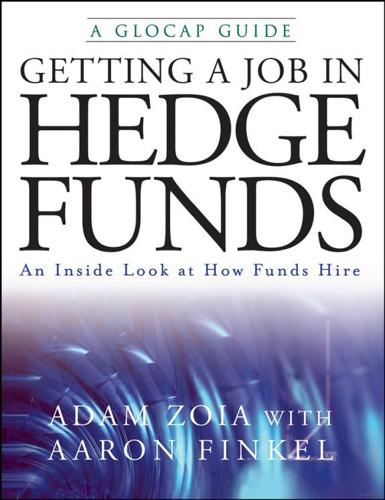
Getting a Job in Hedge Funds: An Inside Look at How Funds Hire
by
Adam Zoia
and
Aaron Finkel
Published 8 Feb 2008
THE ROLES There are two main roles that fall under hedge fund marketing—investor relations (IR) and fund-raising. Investor relations professionals manage relationships with existing investors, whereas fund-raisers are charged with bringing in new assets. Although there are junior IR roles, there are rarely junior fund-raising slots because people at that level do not normally have the required investor Rolodex. Some hedge funds have people who are pure IR specialists or pure fund-raisers, but at most funds the role is a blended one with one person performing both functions. In fact, it’s rare that someone at a fund with less than $1 billion in assets under management would be purely IR unless a fund has closed to new investors and thus has no need for someone to do fund-raising.
…
CAREER PATH The traditional career path of a fund marketer begins by taking a client services role. After a few years the marketer may move on to handle investor relations and eventually, after several years of total experience, could graduate on to a fund-raising role after he/she has cultivated an investor Rolodex. In funds with $1 billion or less in AUM, the fund-raising and IR functions generally are blended into one role, and that bundled role would supervise a client service professional. Most true junior fund marketing roles, meaning the person who is going out on meetings with investors, talking about the fund, and potentially gathering assets, require previous experience.
…
. • Provide leadership and day-to-day management of firmwide marketing initiative. • Create and/or redesign existing marketing literature. Requirements • Minimum of five years of fund-raising experience from a fund of hedge funds, hedge fund, or private client division of a large bank. • Extensive and active high-net-worth investor Rolodex. • Strong leadership and communication skills. • Strong teamwork skills. • Top-tier undergraduate degree. c06.indd 80 1/10/08 11:07:14 AM Fund Marketing 81 Search 4: Director of Client Relations Multibillion-dollar fundamental value hedge fund The top candidates for this search will have both investing and fund-raising experience at a hedge fund.
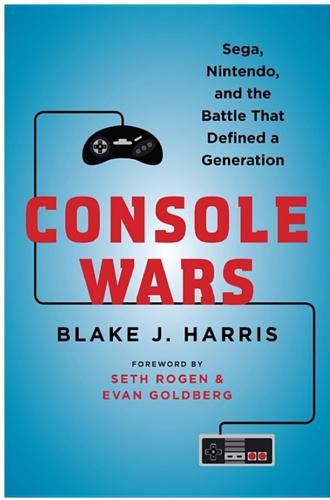
Console Wars: Sega, Nintendo, and the Battle That Defined a Generation
by
Blake J. Harris
Published 12 May 2014
In those days, he didn’t just know the top executives at every company along the toy spectrum but also knew which marketing guys they trusted, which salesmen they didn’t, and which gabby receptionists didn’t realize their gossip revealed vital pieces of information. Simply put, Kalinske had a Rolodex that put other men’s to shame. He still had that same Rolodex, but with its majority of contacts being in the toy business, he was now trying to build up a similar resource for videogames. To create such a network, Kalinske spent his mornings on the phone speaking with industry players, financial analysts, and friends from his past life who might have insight into trends.
…
Do it,” Kalinske said. “Are there any doors you’d like for me to open? It would be great if we could get something going with Spielberg. Or even Lucas.” Toyoda’s eyes lit up at the mention of the famous directors. “I will let you know.” “Great,” Kalinske chirped, always pleased to show off his Rolodex. “Then let’s talk pricing for a second. Nintendo responded quicker than we expected, and we need to react.” On January 10, mere months after releasing the SNES, Nintendo dropped the price of their console from $199.95 to $179.95. Peter Main could claim that Nintendo was crushing Sega all he wanted, Kalinske thought, but a 10 percent drop like that said otherwise.
…
“But you just told me that the head of SOJ, the man who signs my paychecks, had another temper tantrum. And this outburst was directed at the very same people who I’m hoping would follow our advice and work with Sony. So it’s probably time to start looking for a backup plan. Speaking of which, there’s someone I need to see about that.” Although Kalinske was the undisputed king of the Rolodex, when it came to contacts in the technology and advertising industries, then Doug Glen had to be crowned some kind of prince at least. His contacts had been an asset to Sega in a variety of areas over the years (Sega CD and Goodby, Berlin & Silverstein were good examples), and most recently with Sega Channel, as Glen had been instrumental in striking deals with TCI and Time Warner Cable to implement this revolutionary on-demand videogame service.
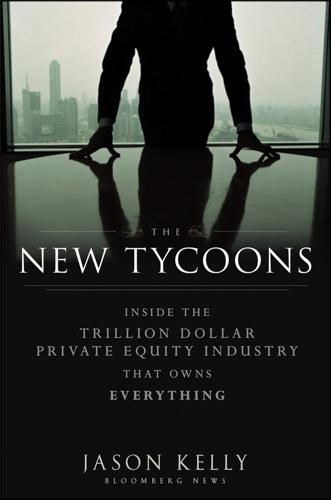
The New Tycoons: Inside the Trillion Dollar Private Equity Industry That Owns Everything
by
Jason Kelly
Published 10 Sep 2012
Peterson is now retired from Blackstone and working full-time on his foundation, which is focused on increasing public awareness of what he describes as the country’s urgent long-term fiscal challenges, a long-standing passion. During a conversation, he recalled those early difficulties. “One of the hardest periods of my life was raising the money for the first fund,” he said, describing how he plumbed his bulging Rolodex for connections, “there was nearly always a personal relationship.” That translated to deals, as well. Blackstone’s initial approach was to team with a well-known corporation, tapping that Rolodex cultivated when Peterson was the chief executive of Bell & Howell, the U.S. Secretary of Commerce and the head of Lehman Brothers. Going in with a company had a couple of benefits: Would-be sellers took the offer more seriously, and it also helped assuage worries that Blackstone was a corporate raider looking to dismantle what it bought for a quick buck.
…
The then 32-year-old Coulter, looking for ways to institutionalize an operations-centric approach, plumbed his network and came up with Boyce. Boyce brings a Mr. Spock-like intensity and logic to the TPG process and tends to use diagrams and charts to explain an issue. The soft-spoken Boyce is a relentless networker and his assistant maps his travel schedule to his Rolodex, scheduling catch-up coffees and dinners with former colleagues and partners to keep up to date. One TPG operating partner, Vincenzo Morelli, met Boyce when the two were in business school at Stanford and played in a standing Saturday morning soccer game. Two decades later, he went to work for Boyce in Europe.
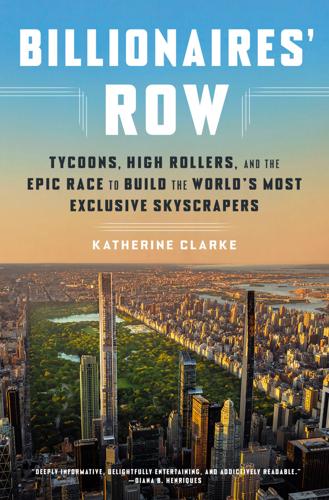
Billionaires' Row: Tycoons, High Rollers, and the Epic Race to Build the World's Most Exclusive Skyscrapers
by
Katherine Clarke
Published 13 Jun 2023
And for those rare players out there looking to do deals, Harry Macklowe wasn’t exactly number one on their list. He hung on to shreds of optimism despite the headwinds. “The New York investment community at that period of time was so cynical, so burnt, that they couldn’t see the real potential for the development site,” he would later say. The Macklowes had burned through their rolodex looking for potential partners. They talked to Leonard Litwin, a prominent political donor and the founder of Glenwood Management, who expressed interest in forming a partnership only if the building would include rental apartments and could take advantage of the 421-A tax abatement program. The program would grant the developers a significant tax break in return for incorporating some low-income housing into the project.
…
CIM proposed hiring a brokerage like Douglas Elliman or Corcoran to handle sales, but Macklowe wanted to keep them in-house, where he could control the buyer experience. Leading sales was Richard Wallgren, a storied figure in the new development world who had made his name heading up sales at 15 Central Park West, widely considered the most successful condominium project in New York’s history at that time. A former investment banker, Wallgren had a famously fat rolodex. He had done stints at Salomon Brothers and Union Bank of Switzerland, where he specialized in handling commercial mortgages. Now, he was on staff at Macklowe Properties. With Wallgren at the helm, Macklowe was free to insert himself into the sales process as he saw fit. Outside agents who brought buyers to the building would occasionally complain of Macklowe’s proximity to the sales process.
…
One agent reported that his client quietly turned to him during one of Macklowe’s most elaborate routines. “Let’s get out of here, this guy’s crazy,” he said. Still, an early rush of buyers quickly proved out the concept. That was thanks in large part to CIM, whose executives leveraged their own rolodexes to bring in a swarm of friends-and-family buyers who would score early deals at sweetheart prices, allowing the developers to quickly declare the property’s offering plan effective. Early buyers included Fawaz Al-Hokair, a Saudi billionaire property mogul and the owner of a portfolio of malls in the Middle East and the local franchise rights in Saudi Arabia to brands such as Zara, Banana Republic, Nine West, and Topshop.
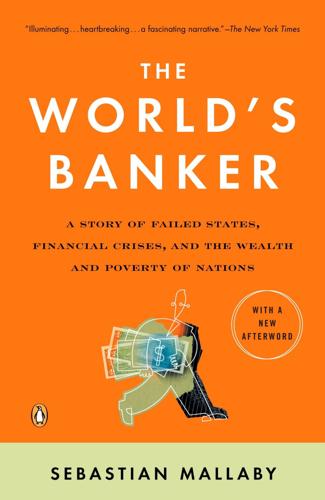
The World's Banker: A Story of Failed States, Financial Crises, and the Wealth and Poverty of Nations
by
Sebastian Mallaby
Published 24 Apr 2006
When he left the Fed a bit later, Volcker resumed discussions with Wolfensohn, whom he still barely knew; again, the infectious enthusiasm drew him in, and the offers from the grander firms seemed strangely less alluring. In the end, Wolfensohn clinched the deal by promising Volcker that he could combine banking with teaching at Princeton. More than any of his rivals, Wolfensohn had courted his target and understood what it would take to get him.27 Volcker’s arrival married one vast Rolodex to another, and soon the reception room at Wolfensohn Inc. buzzed with more traffic than ever. On one occasion, the chairman of Ford Motor Co. and the chairman of Chrysler showed up in the office within minutes of each other, one to see Volcker, the other to see Wolfensohn; it took quick action on the part of the receptionist to prevent the two rivals from running into each other.
…
The bet was accepted, and a contest was arranged; after three casts each, Wolfensohn was declared the winner. Packer cheerfully paid his betting debt, which meant picking up the cost of the week’s fishing for the entire Wolfensohn party. Adventures like these turned clients into loyal friends—and generated plenty of snide swipes from rivals. Wolfensohn was dismissed as a sycophant with a Rolodex, a charmer with no substance; it was said that vain corporate captains who went in for trophy wives were smitten with this trophy banker. “He’s one-third psychiatrist, one-third concierge, and one-third business adviser,” said an anonymous source in Business-Week in 1992; “if your jet breaks down, he will lend you his.”28 But the carping missed the serious reasons for Wolfensohn’s success.
…
The Bank’s senior barons did not need to be told about the Uganda experiment, nor of similar developments elsewhere. Undeterred, Wolfensohn sent out a second draft of his framework to a wider circle of Bank managers on January 20; and he sent it to the World Bank’s board the next day; and the day after that, unbeknownst to his senior managers, he mailed his new development paradigm to his Rolodex of friendly world leaders. Before long, reactions were rolling in from presidents and finance ministers. The managers realized that this was indeed a new World Bank initiative, whether they liked it or not. Wolfensohn did not take kindly to criticisms of his framework, and the managers tiptoed around his ego like men in a minefield.
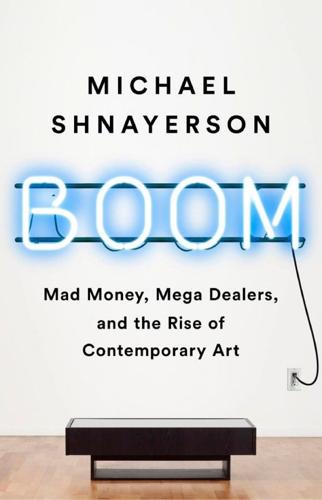
Boom: Mad Money, Mega Dealers, and the Rise of Contemporary Art
by
Michael Shnayerson
Published 20 May 2019
They showed Jason Rhoades in Switzerland with a first show in 1998, and later in London as well. Diana Thater also signed on to have Hauser & Wirth exhibit her in Europe. Neither Wirth nor Zwirner made much money in the primary market of the 1990s. But their artists were becoming known, and the market was reviving. Zwirner, for his part, had access to his father’s Rolodex and inventory of Pop art. “Unlikely as it might seem, we had a business plan in all this,” Iwan Wirth later declared, “even though the business model was built around noncommercial artists.” DAVID ZWIRNER CALLED THE GAGOSIAN GALLERY a parallel universe. Gagosian had no interest in Jason Rhoades or other installation artists in the 1990s.
…
“I suffered aloneness and discouragement like I had never done in my life.” Her girlfriend, former Gagosian director Stefania Bortolami, was of some comfort, but success was perhaps even more encouraging. By 2003, Lévy was generating, she later said, $100 million a year in private sales.23 It was time to break off on her own, as an art advisor with a golden Rolodex. IN 2003, GAGOSIAN WAS NAMED BY ArtReview as the figure who had had the most impact on contemporary art’s value and reputation. He would stay at or near the top of every such annual list from then on. Jackie Blum, wife of dealer Irving Blum, suggested that Gagosian’s brilliant strategy was to live rich before he got rich—to have the fancy Hamptons house and the plane before he could afford them and therefore start socializing with the very rich who would become his clients.
…
The megas had more money, but they could also do more with what they acquired. A well-known dead artist who left a modest estate—not much art to sell—could still enhance a dealer’s reputation and help lure living artists who wished to bask in the late one’s glory. An estate might also have a weighty Rolodex of collectors who had bought the artist’s work, helping a gallery track down hard-to-find pieces and perhaps acquire them. As the megas expanded to new gallery spaces, they also needed more brand-name artworks to hang on those walls, either for sale or for historical, nonselling shows. Estates could provide them.
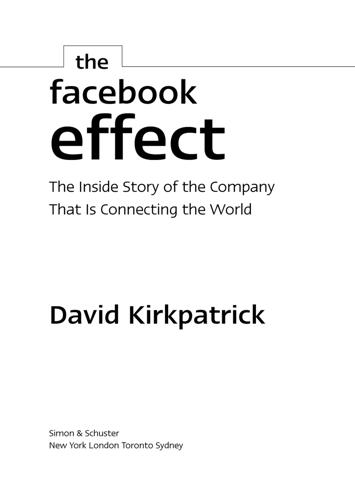
The Facebook Effect
by
David Kirkpatrick
Published 19 Nov 2010
The World Wide Web was just beginning to get traction among ordinary people. At sixdegrees’ launch in early 1997, Weinreich invited several hundred people assembled at New York’s Puck Building to join immediately at one of the twenty PCs set up there in the room. “It no longer makes sense for your Rolodex to live on your computer,” he proclaimed. “We’ll place your Rolodex in a central location. If everyone uploads their Rolodex, you should be able to traverse the world!” Members normally joined sixdegrees after receiving an email invitation from an existing member. This method of recruitment would be imitated by many subsequent social networks. It sounds obvious to us now, but at the time it was revolutionary.
…
Plaxo was a contact management service. After new members uploaded their contacts, it relentlessly peppered those people with requests to update their information, always pressing them to join as well. It was obnoxious, but it worked often enough. Parker was thinking much like Andrew Weinreich at sixdegrees—put your Rolodex in a central location and let us manage it for you. Parker liked the Plaxo concept because it was viral—one user could lead to an entire chain of users. Plaxo also foreshadowed a crucial aspect of Facebook—it maintained unique identifying information for individuals based upon that person’s network of contacts.

Start Small, Stay Small: A Developer's Guide to Launching a Startup
by
Rob Walling
Published 15 Jan 2010
Although this book contains a small amount of material from the Micropreneur Academy, it only covers topics that are conducive to the printed page. The purpose of the Micropreneur Academy is to present topics that require interactive elements (screencasts, audio, and worksheets), topics that change frequently, cutting-edge approaches and our complete Rolodex of vendors and contractors. In addition it provides a community of like-minded startup founders accessible via private forums. If you are interested in launching or growing your startup faster, as an owner of this book you are entitled to the first month of the Academy at no charge. To receive your free month visit www.Micropreneur.com/book/ And with that…let’s get started.
…
Although this book contains a small amount of material from the Micropreneur Academy, it only covers topics that are conducive to the printed page. The purpose of the Micropreneur Academy is to present topics that require interactive elements (screencasts, audio, and worksheets), topics that change frequently, cutting-edge approaches and our complete Rolodex of vendors and contractors. In addition it provides a community of like-minded startup founders accessible via private forums. If you are interested in launching or growing your startup faster, as an owner of this book you are entitled to the first month of the Academy at no charge. To receive your free month visit www.Micropreneur.com/book/
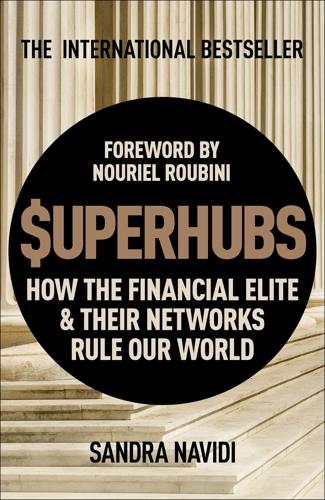
SUPERHUBS: How the Financial Elite and Their Networks Rule Our World
by
Sandra Navidi
Published 24 Jan 2017
The Cipriani family ran the restaurant and catered the richest and most delicious buffet in the city. Even for spoiled, wealthy Wall Streeters, this was a treat, and many famous investors endured the midday commute to discuss investments with peers in the sky. Afterward, we circulated notes on the discussions amongst our clients. Now organizing the Roubini dinner, I scrolled through my Rolodex. At the top of my list was George Soros, who had attended many of my events in the past. This time, however, to my surprise he scoffed at the suggestion and rejected my invitation rather fiercely. As it turned out, a Wall Street Journal report about a recent idea dinner, sponsored by the little-known brokerage firm Monness Crespi Hardt & Co. for about eighteen hedge fund managers, had triggered a PR disaster with unexpected legal consequences for its guests.2 According to the paper, the conversation had focused on the euro’s demise.
…
Subsequently, Ackermann joined the board of private equity firm EQT Partners, as well as the board of Renova Group, which is primarily owned by the billionaire oligarch Viktor Vekselberg, Russia’s second-richest man. Shortly thereafter, Ackermann was elected chairman of the Bank of Cyprus, of which Vekselberg was a significant shareholder. Another large investor in the bank, financier Wilbur Ross, emphasized the reasoning for this choice: “[Ackermann] has a huge Rolodex. You can imagine he knows practically everybody in Europe, everybody in Eastern Europe, and huge numbers of people in the U.S. and elsewhere.”15 Ackermann’s choice of joining Renova raised some eyebrows, and one economist characterized his involvement with the Bank of Cyprus as “not exactly a career-enhancing move, from a G7 economy to $22 billion Cyprus. . . .
…
In turn, they are attractive clients with deep pockets and enormous growth potential, which converts into deal-making opportunities. Despite his massive earnings, Blair seems less driven by money than by public recognition and a desire to retain a seat at the table. Being driven and restless, he—by his own account—has worked very, very hard in building a platinum Rolodex following his departure from office.13 CROSS-CONNECTIONS: COOPERATING CONSTRUCTIVELY IN TIMES Of CRISES The depth and reach of the international policy makers’ and financial superhubs’ tight-knit networks became particularly clear during the financial crisis. When the financial system was close to collapsing, they convened to coordinate unprecedented emergency responses.
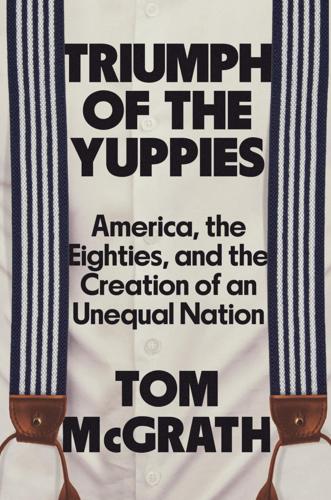
Triumph of the Yuppies: America, the Eighties, and the Creation of an Unequal Nation
by
Tom McGrath
Published 3 Jun 2024
Rubin began hosting the weekly parties at his apartment on the Upper East Side, and over the course of a few months he created something of a system for it, as well as a name: “business networking.” (The term “networking” had been used by feminists, but not yet in the world of business.) Each week he’d send out invitations to dozens, if not hundreds, of people in his Rolodex, asking them to come to his apartment and bring someone with them. But not just anyone—it should be someone who was a player, a connector, a someone someone. The goal was to connect as many someones to as many other someones as possible—and to connect all of them to Jerry Rubin. Because connection was currency.
…
—had become Rubin’s prime focus, and they were a successful venture. On Wednesday evenings from 5:00 p.m. to 10:00 p.m., Rubin hosted his regular open-to-the-public salons at Studio 54, each one being attended by more than a thousand people. Guests paid $8 and handed over a business card (further fattening Rubin’s Rolodex) to get in the door. On Thursday evenings, Rubin hosted a second event for a more exclusive group he’d created called the 500 Club. Each club member paid $175 a year. Keeping all this organized—and keeping the events full—was a formidable undertaking. While the gatherings were no longer being held in their home, the Rubins still used the apartment as an office, installing multiple phone lines for Jerry and Mimi and whatever extra help they could wrangle to reach out to people, trying to make sure just the right crowd showed up during any particular week.
…
Designed by world-renowned architect Arata Isozaki, the club’s new interior was far more spectacular than Studio 54 had been and quickly became the buzz of New York—and the Rubins’ networking nights hit new levels of success, with thousands of people every week showing up, paying the cover charge, and handing over their business cards to be added to Jerry and Mimi’s massive Rolodex (which now totaled a reported sixty-seven thousand names). “I don’t like to use the word, but every Yuppie in New York comes,” Jerry said. The couple had created, in essence, the largest private club in New York. The promise of sex remained part of the appeal of the evenings, but so, too, was the fact that networking was now standard practice for any ambitious, self-respecting young professional.
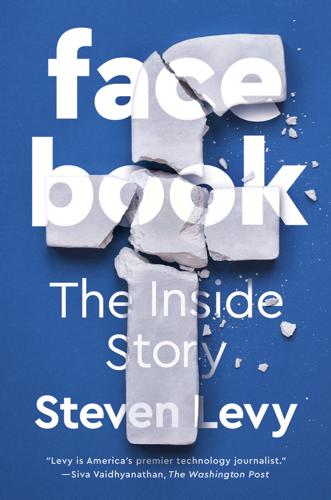
Facebook: The Inside Story
by
Steven Levy
Published 25 Feb 2020
“More often than not, I can meet the people I don’t know through those I do know,” he told the crowd at the Puck Building. For centuries, people have been using their friends and acquaintances to make such connections, but it had always been hit or miss. “Today we hope to change that,” he promised, “with a free, web-based networking service.” He compared it to putting your Rolodex online—and connecting to everyone else’s Rolodex. “If everyone uploads their Rolodex, you should be able to traverse the world,” he gushed. On that cold night in January, Weinreich expressed a mission that was astounding to consider: connecting the world in a single network. “Imagine for a moment that we had not just you in the database but every Internet user in the world,” he asked his audience.
…
That, and the fat target it presented for copyright litigation, ensured its demise. Parker didn’t make a dime from it, but managed to emerge with excellent connections in the music world. His next act was Plaxo, a start-up that tried to crowdsource everyone’s contact lists. (It fulfilled Andrew Weinreich’s 1997 vision about a great global networked Rolodex, when he launched sixdegrees.) Napster had been viral because of great word of mouth, but Plaxo had virality built in. With a click of a button, new users would bombard those on their contact list with requests to upload their addresses and phone numbers to Plaxo. Those targeted would often become furious at the multiple solicitations in their inboxes.
…
Ads should be good experiences, consistent with the good experience you were having on Facebook. “It wouldn’t have to be the Hulk coming out.” Zuckerberg joined the conversation on his return, accepting the conclusions of Sandberg’s gatherings. Sandberg began building her team. Because she tapped a vast Rolodex of friends and contacts—whom she had methodically kept in touch with—Facebookers started using the term “FOSS.” Friend of Sheryl Sandberg. These included her friend Marne Levine, who would head Facebook’s DC office. Unlike Zuckerberg, whose closest contacts consisted of “the small group”—the subset of Facebook’s leaders who were his informal advisory board—Sandberg liked an organized infrastructure of aides and lieutenants.
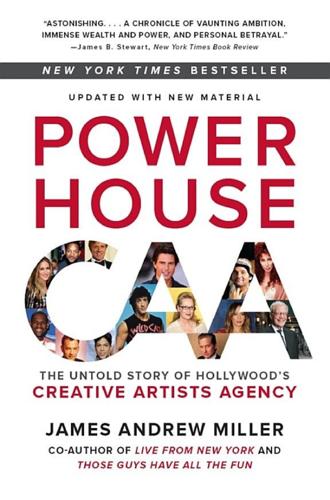
Powerhouse: The Untold Story of Hollywood's Creative Artists Agency
by
James Andrew Miller
Published 8 Aug 2016
He was not allowed to bring anybody with him apart from his secretary. In our discussions I said, “We have a very good company. I don’t want anybody other than you.” And then he called me and says, “You gotta buy my Rolodex,” and I asked, “What is your Rolodex?” He explained, “I’ve got a really complicated computer Rolodex and I need it.” I’d said no to everything, but I said okay to his Rolodex. So we made the deal. Sid Bass came over and we had a drink in celebration and then flew back to Los Angeles to meet with two key executives at Disney. I had decided that the CFO wasn’t going to report to him [Michael] because I just didn’t want to give up the financial control of the company at that point.
…
His client list was an incredible list of blue-chip Hollywood movie stars, including Blake Edwards, Peter Sellers, Sidney Poitier, Rod Steiger, Richard Harris, James Clavell, Carroll O’Connor, Sean Connery, Bo Derek, and Richard Attenborough. I would see memos from Marty to Mike saying, “I looked at the deal you’re about to make, and there’s more you can ask for than five percent of the net. Come see me at lunch.” He enjoyed playing the role of mentor to those young guys. RUSTY LEMORANDE, CAA Assistant: His Rolodex was massive. It was two large wheels on each end, the size of two large pizzas, and everybody in the business was in there. All of the young agents came to Marty for advice, and he loved being the master. But if they disobeyed him or screwed up, he would chew them out like they were disobedient kids.
…
And I came back to the parking lot or whatever it was and Dick said, “Now we’ve got to get the rights.” And I said, “What do you mean we’ve got to get the rights?” He said, “I don’t have the rights to the book.” And I said, “You’re kidding.” I was so young that I didn’t know to ask the question “Did you have the rights?” My mother had Joan Didion’s phone number in her Rolodex, so I called Joan up and explained the mess. She said, “None of my books have ever been produced in film or television. I’m not going to give you the rights.” So I went back to Harvey Shephard and I said, “A huge mistake has happened and I’m very apologetic.” But from that, my bosses felt I had an aptitude for packaging and I started packaging MOWs full time.
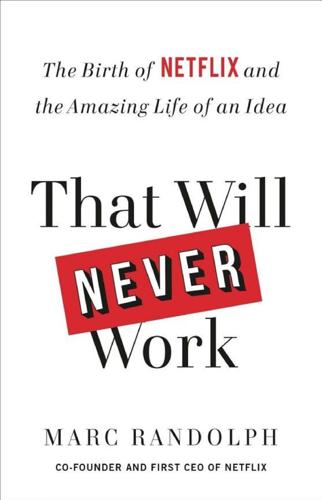
That Will Never Work: The Birth of Netflix and the Amazing Life of an Idea
by
Marc Randolph
Published 16 Sep 2019
But I think the real reason Mitch joined us was because he’d gotten a little bored with his stores and was starting to realize that his movie kiosk experiments were still a few too many years ahead of their time. The software company he had been pitching when I met him at VSDA, Nervous Systems, Inc., was still a few years away from viability as well. With Mitch we had an invaluable resource: someone who understood the rental business perfectly, had a deep Rolodex of studio execs and distributors, and knew how to reach customers with the movies they’d want. He brought a wealth of experience and knowledge. I knew as soon as I convinced him that he’d be one of the most important hires I ever made. His wife, though, still thought it would never work. To help us connect further with customers, Te brought in Corey Bridges to work on customer acquisition—or, more specifically, on something we jokingly called Black Ops.
…
I got to the office at seven or so in the morning and called our standard daily meeting. Christina, Te, Jim, Eric, and I filed into the conference room to go over the day’s schedule. “We’ve got press calls starting at nine,” Te told me. For months, Te had been lining up reporters and news outlets who would be interested in writing a story about our startup, hitting her Rolodex hard so that when our launch day came, people would read about it. All morning I’d be on the phone with these reporters, giving them a pretty canned speech that I’d spent hours trying to make sound natural. Here’s an excerpt: With this morning’s launch of the nation’s first internet DVD rental store, every DVD owner—no matter where he lives, no matter how far he lives from a video rental store—is now guaranteed access to every DVD title available—to buy or to rent.
…
“Not to me,” he says. “But those guys are freaking out about everything here. They don’t know what to expect from lunch with the CEO.” Nearly a year after Reed and I had mailed that Patsy Cline CD, the company is growing beyond its founding team. When it comes to hiring, I’m not just hitting my own Rolodex anymore—which means new faces. To ensure that we remain a tight-knit group, I’ve instituted the monthly ritual of taking all new employees out to lunch. This serves a number of purposes. At a minimum, it’s a chance to get to know everybody. I’m present for nearly all of our job interviews, but it’s hard to get past someone’s nerves and ambitions in an interview setting, and a lunch allows me to see past all that.
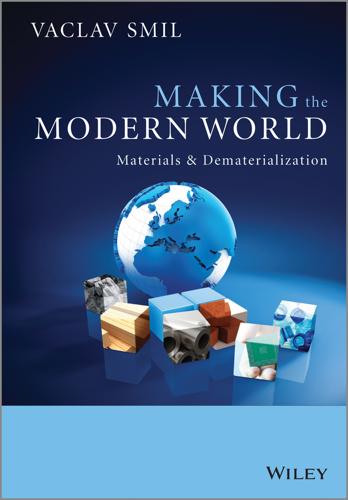
Making the Modern World: Materials and Dematerialization
by
Vaclav Smil
Published 16 Dec 2013
Tupy (2012) made a list of 16 devices or functions that are replaced by applications installed on an iPhone: camera, PC used to receive e-mail, radio, fixed phone, alarm clock, newspaper, photo album, video recorder, stereo, map, white-noise generator, DVD player for movies, rolodex, TV, voice recorder, and compass. Even when leaving out all those functions that are far from being true equivalents of what they have replaced (truncated versions of the news do not replicate a real newspaper and a tiny screen cannot match viewing large-screen HD TVs) we are left with an array of equivalent, or even superior, substitutions: a cellphone can be a perfect watch and alarm clock, it works fine as a Sirius radio, its portable list of contacts neatly replaces the old-fashioned rolodex, GPS is a superior locator and direction finder compared to a compass and a sheaf of maps, it will do as a voice recorder, and many cellphones take better-quality pictures than most standard SLR cameras, to say nothing about eliminating purchases and development of film and printing pictures.
…
And the chain of comparisons could be extended still further because soaring sales of watches, digital cameras, and LCD TVs have been accompanied by record sales of cars and luxury products many of which (private jetliners and yachts) represent some of the most concentrated embodiments of energy in select materials. Consequently, even if no alarm clocks, rolodexes, voice recorders, or digital cameras were ever bought because of the smartphone's multifunctionality, the material savings represented by such a loss of demand would be largely obliterated by the expanding claims for the same kind of resources ranging from aluminum and glass to wires and microprocessors.
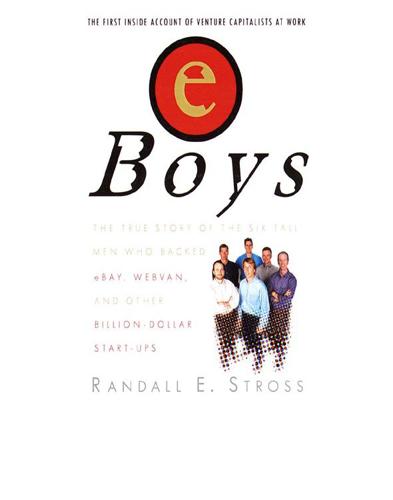
eBoys
by
Randall E. Stross
Published 30 Oct 2008
“When I came out here ten years ago,” Borders said, “I had a cynical view of venture capital—vulture capital.” But he had subsequently seen that “in order to be able to attract the best people, you need to have the backing of winners. It’s not the money”—he did not realize that that was the exact phrase eBay’s Pierre Omidyar had just used when he’d gone to Benchmark—“it’s the Rolodex, it’s being backed by the venture firms that have a record of knocking it out of the park.” Valentine beamed. Sequoia was in, and Mike Moritz joined Beirne on the Webvan board. Borders now had two venture guys who were telling him the same thing: Don’t even think about restoring the original idea of retail storefronts.
…
They also decided to continue to offer listings in a number of categories, at the risk of spreading coverage too thin, rather than start first with a single category (coins). It was an instinctual call, and a good one. They discovered that any experienced manager whom they attempted to recruit asked to see that the business had passed the professional vetting of venture guys, had access to their deep pockets and advice and Rolodexes. Steve Westly, a Stanford MBA who was a vice president at another Internet start-up, WhoWhere, was impressed when Jeff Skoll tried to recruit him to eBay as vice president of marketing and he learned that eBay’s revenues were $400,000 a month and its expenses $200,000. They had reached the same numbers at WhoWhere, but as at most Internet companies, they were inverted.
…
Beirne worked well with Bob Howe, too, who was a scratch golfer; he and Beirne played together, and Howe had an opportunity to vent. When Greenberg and Howe weren’t getting along, Beirne figured out what needed to be fixed. Scient was a company that needed to earn credibility in order to persuade corporations to entrust their digital futures to its care, so Beirne flipped through his mental Rolodex and invited two heavy hitters to the board: Fred Gluck, McKinsey’s former managing partner and most recently the vice chairman of Bechtel; and Mort Myerson, Ross Perot’s right-hand man at EDS and Perot Systems. Gluck accepted, and Myerson seemed inclined to, also. After flying in, he said, “I did EDS.
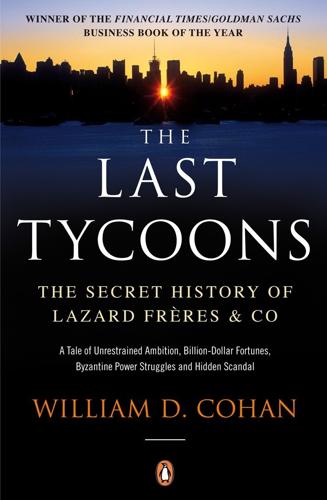
The Last Tycoons: The Secret History of Lazard Frères & Co.
by
William D. Cohan
Published 25 Dec 2015
"That means you can't be prosecuted for any crimes derived from what you tell me," Rosner told Wilkis, unless he were to later lie in front of the grand jury, should he be asked to appear. With full immunity in hand, Wilkis laid out his version of what had happened between him and Grambling. "In early December, I gave him a call," he began. "Lazard had just finished a big deal that I was involved in, and I wanted to let people know what I had done. I sat down at my desk with my Rolodex, and started calling everyone on my cards--classmates, associates, acquaintances--just to let them know. Grambling was one of the dozens of people I called." When Rosner expressed surprise at this boastful behavior, Wilkis said, "I was just tooting my own horn. That's the way the Street works. Wall Street, I mean.
…
Swiss bank account in hand, Wilkis finally gave in to Levine's ongoing exhortations for more and better inside information about Lazard's merger activity. One Friday evening in May 1980, around 8:00 p.m., Wilkis allowed Levine into Lazard's offices, and once there he began rifling through the desks, papers, and Rolodexes of the Lazard partners. According to Den of Thieves, Levine even admired Lou Perlmutter's "cache of Cuban cigars." Michel said later he discovered Levine had searched his office as well. Levine found documents--and copied them--about the French oil company Elf Aquitaine's pending acquisition of Kerr-McGee, another oil company.
…
This fact is so profoundly counter to how every other major Wall Street firm designs its investment banking business--which is to have far younger deal makers specialize by industry and by product--that Felix had become an anachronism, the exception that proves the rule. Lesser bankers at inferior firms have attempted to imitate Felix's style and generalist approach with predictably disastrous results. His edge is his extraordinary level of deal experience and his consummate judgment--plus a killer Rolodex. It is nearly impossible to ignore a phone call from Felix Rohatyn--regardless of whether you are a CEO, a politician, or even one of his former partners. Indeed, simply seeing "Rohatyn, Felix" on the caller-ID screen caused the men (and a very few women) of Lazard in their forties, fifties, sixties--themselves earning millions of dollars per year, thanks, in large part, to Felix--to shudder visibly, interrupt a phone conversation with a client, and scurry down the threadbare, tan-carpeted hallways to Felix's lair.
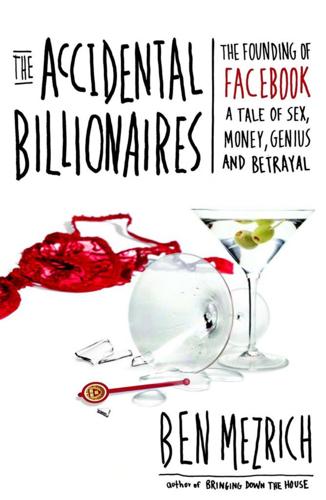
The Accidental Billionaires: The Founding of Facebook: A Tale of Sex, Money, Genius and Betrayal
by
Ben Mezrich
Published 13 Jul 2009
As Eduardo went back to the girl wrapped around his waist, bolstered by the music of his friend getting crazy in the stall next to him, a thought hit him, and he couldn’t stop smiling. They had groupies. And beyond that, he realized, he had been very wrong about something. A computer program could actually get you laid. The woman behind the reception desk was trying not to stare. She was pretending to fidget with her Rolodex, her fingers parsing through the switches of laminated paper as her bun of dark hair bobbed up and down, but every now and then Tyler could see it, that quick flick of her pale green eyes. She couldn’t help looking at them, sitting next to each other on the uncomfortable couch in the waiting area in front of her desk.
…
Hell, if he’d have thought it would help them with the task ahead, he and Cameron would have dressed exactly the same, like when they were toddlers; though showing up to the Harvard University president’s office in striped pajamas and a beanie might have seemed a little disrespectful. Dark blazers and ties seemed more appropriate, and the outer-office receptionist didn’t seem to mind. At least, she couldn’t stop looking, no matter how hard she pretended she wasn’t. And who still used Rolodexes, anyways? The truth was, Tyler wasn’t going to complain about any form of attention, after the week they’d just had. He was sick and tired of being ignored. First, the senior tutor of Pforzheimer House, who had been sympathetic, but had simply passed their complaints along to the ad board’s office.

Girl Walks Into a Bar . . .: Comedy Calamities, Dating Disasters, and a Midlife Miracle
by
Rachel Dratch
Published 29 Mar 2012
That’s another thing about being in the public eye; sometimes a person saying hi is just a stranger who recognizes you and is superfriendly. Other times, it’s a classmate of yours from high school. Usually, when a stranger says hi as if we are old buddies, my mind goes into superfast Rolodex mode and tries to sort out who the friendly person is. When this guy said hi, I came up blank. “Hi,” I said, Rolodex spinning madly. “This is my partner, Walt.” “Hi,” I say to Walt, an extremely gay man. “OK. Bye!” Who was that? “It sort of looked like that guy who had asked me out,” went a fleeting thought in my mind that flitted immediately out again.
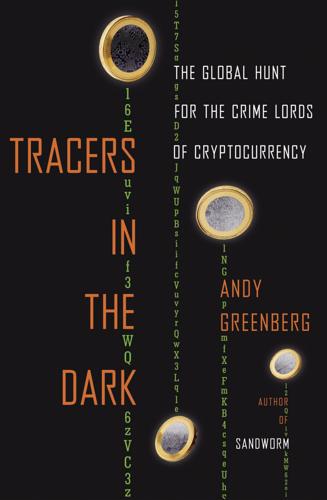
Tracers in the Dark: The Global Hunt for the Crime Lords of Cryptocurrency
by
Andy Greenberg
Published 15 Nov 2022
When a friend introduced him to Gronager, they met in Copenhagen and found they had an almost identical ideology around Bitcoin’s potential: not a weapon in an anarchist or even libertarian revolution, but a pure technology that was sure to transform finance around the world—if they could use its inherent transparency to weed out the bad actors. Levin also displayed an incredible sense of hustle and an impressive network of contacts across the cryptocurrency community that made him what Gronager calls “a walking Rolodex.” He operated with a certain start-up swagger that the unassuming Gronager had never quite possessed, and traveled so much that he lived out of a backpack with no fixed address—the ideal head of sales for a fully global company. Levin quickly became one of the two main public faces of Chainalysis, with Jan Møller receding into the company’s quieter internal work.
…
On another operation they tracked down and searched a particularly prolific LocalBitcoin exchanger—who was also a licensed pilot—at an airport in Sacramento; the man routinely flew his own Cessna aircraft around the country, personally transporting bags of cash in his plane to exchange for bitcoins. The Fresno detectives began to mine these exchangers’ Rolodexes to find leads on bigger dark web targets. They started with a Merced, California, man who had cashed out millions of dollars through peer-to-peer exchangers. A Homeland Security agent got a warrant to plant a GPS tracking device on the suspect’s truck and followed him to a nearby post office, where he shipped three packages that the agent intercepted and found to be loaded with marijuana.
…
It included the source code of the market, a collection of usernames and passwords, the database of all the market’s transactions, and messages between users, mostly encrypted—even the two administrators’ PGP private keys, allowing them to both decrypt messages the admins received and verify their identities on messages they sent. The seized Hansa database listed only the pseudonyms of the site’s users, and each of those users’ connection to the site had been anonymized by Tor. It was hardly a simple Rolodex of customers’ identities. But the data also included another prize: a massive chat log between Hansa’s two administrators, one who went by the names HL and RonSwanson. This was a treasure trove of seventeen thousand messages. In some of those conversations, they’d even referenced each other’s full legal names.
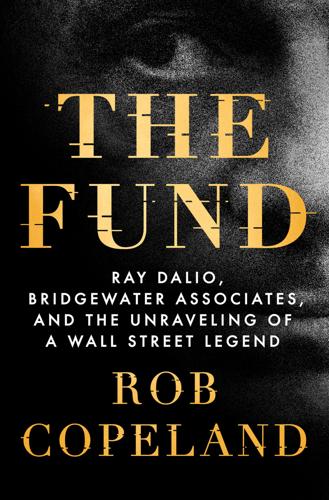
The Fund: Ray Dalio, Bridgewater Associates, and the Unraveling of a Wall Street Legend
by
Rob Copeland
Published 7 Nov 2023
Though the Bridgewater founder said he was sticking around out of love of investing, there was another equally good reason. Bridgewater was likely only worth top dollar with him at the helm. To be paid the most possible for his ownership of the firm, he would need to stay on a while longer. To find a buyer, Dalio opened his Rolodex. Bridgewater rang up Wichita, Kansas, asking the billionaire brothers Charles and David Koch for money to buy him out. The hedge fund dispatched Jensen and Prince to remote Lubbock, Texas, where they implored the board of the Teacher Retirement System of Texas to buy in. Dalio himself handled the farthest entreaties: China, the Middle East, and Singapore.
…
An included investment-performance chart indicated the firm seldom had a down year—even when Dalio’s public predictions proved off, the Pure Alpha fund consistently seemed to end the year around flat. As he looked over the documents, Markopolos felt a familiar flutter in his heart. Sensing the gravity of the conclusion he seemed to be circling, he drew on his Rolodex to check his work. His team spoke with the Texas hedge fund manager Kyle Bass, well-known for his ahead-of-the-curve predictions that the subprime-mortgage market was about to collapse in 2008. Bass said he, too, had long wondered about how Bridgewater traded. Markopolos also went to see the hedge fund billionaire David Einhorn of Greenlight Capital, famed for spotting frauds.
…
Equally unsuccessful was the culmination of Dalio’s yearslong goal to imbue the sprawling Bridgewater ratings system into businesses large and small, as he’d been talking about for years. Called PrinciplesUS, these were originally envisioned as monthlong workshops to train employees in The Principles, with an elaborate certification process to advance employees up the ladder to become official “Principals coaches” in their own right. From home, Dalio told staff he spun his Rolodex for help finding takers, but came up empty. Twitter’s Jack Dorsey, whose estate Dalio had once visited, was on his way out of his own company, as was Microsoft’s Bill Gates. Salesforce cofounder Marc Benioff turned Dalio down, too. No major company publicly signed up to adopt The Principles. So Dalio, embarrassed in the public eye and isolated in private by the pandemic, began again to change the narrative around himself.

More Money Than God: Hedge Funds and the Making of a New Elite
by
Sebastian Mallaby
Published 9 Jun 2010
The commander made you bigger, brighter, tougher than you were before; he made you believe that you could beat the market, year after year, because you were part of a team that would outthink and out-hustle every rival. For the first dozen years or so of Tiger’s history, the commander operated from a desk out in the open, next to his young men; they watched him schmooze and holler down the phone, sucking information out of his vast network.22 Robertson’s two assistants operated a pair of giant Rolodexes, almost the size of wagon wheels, and if a Tiger analyst pitched an investment to the boss, Robertson would soon be testing the idea on three old friends who worked in that same company. The analyst might say, “I think it’s time to short Boeing.” Robertson might respond, “I know the guy who used to run Boeing’s international marketing.”
…
He zipped through Europe at high speed, reporting that the American embassy in Paris was “very, very liveable.”34 He lamented the low ratio of women to men on Brazil’s beaches but marveled at the sophistication of São Paulo’s business leaders. Everywhere he went, Robertson met new people and discovered new ways to have fun. He would pitch up in a city, stroll into the first couple of meetings, and charm his hosts into setting him up with the top people in their Rolodexes. Robertson’s trips were managed by a “camp counselor” who helped him find his way around, and usually the counselor was John Griffin. Smart, indefatigable, an Ironman triathlete, Griffin was the ideal Robertson lieutenant. The two men pitched up at company meetings all over the world, then broke off to play high-voltage tennis before cross-examining another batch of companies.35 After a lunch at the Union Bank of Switzerland in Zurich, at which Griffin gobbled up a large dollop of chocolate mousse as well as a pastry, Robertson and his camp counselor raced back to the hotel to grab a rental car.
…
Almost half a century later, hedge funds were still getting privileged information and still getting into trouble. This time the center of the scandal was Raj Rajaratnam, a voluble Sri Lankan-born investor with a Bob Brimberg physique, who ran a hedge-fund company called the Galleon Group. He was less a master of the universe than a master of the Rolodex, as the SEC’s enforcement chief remarked; he had no amazing special sauce, but he had a lot of special sources. According to a criminal complaint brought by the Manhattan district attorney’s office in 2009, Rajaratnam’s contacts gave him advance warning that a technology manufacturer called Polycom would announce unexpectedly good earnings; Galleon allegedly turned that tip into a quick half-million-dollar profit.
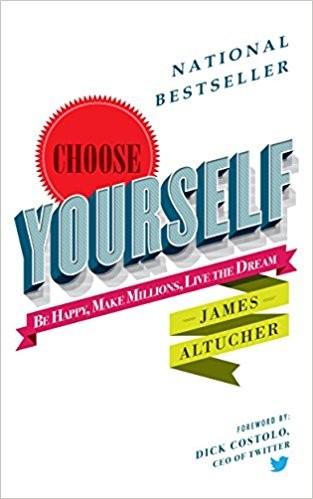
Choose Yourself!
by
James Altucher
Published 14 Sep 2013
They will meet and get along, since connectors get along with one another for two reasons: they are naturally friendly people (hence their ability to connect so easily with people) and they have a lot of friends in common almost by definition. If you are in the middle of that connection, then the two people will always remember you and you’ll always be on their mind for future potential connections they can make that would be useful for you. And their Rolodexes are immense. So if you need to meet Prince William or Ellen Degeneres, for instance, then just connect two connectors and the next thing you know you’ll be dancing right down the aisle with Ellen on her show or bowing to Kate Middleton, or whatever you want to do. 2. Introduce two people, but this time with a specific idea in mind.
…
That passion was much higher than the passion of our competitors, so we ended up creating and implementing the best ideas. End of competition. A restaurant is a great example of this. Its initial success doesn’t depend just on how good the food is, but how many of your friends and their friends come in the door to buy it. Don’t be afraid to call everyone in your Rolodex to come on over and try the food. * * * It Doesn’t Matter if You Know Anyone I certainly didn’t. I cold-called Yahoo, AOL, and Forbes to get on their radar. In fact, I had a “negative network.” The first guy I called at Yahoo said he knew me. “Oh yeah?” I said because I had no idea who he was.

Food Trucks: Dispatches and Recipes From the Best Kitchens on Wheels
by
Shouse, Heather
Published 19 Apr 2011
She wound up staying for a year, until a kettle-corn cart pretty much dropped in her lap, and with the Pok Pok crew’s blessing and connections, she converted the tiny wooden box into Nong’s Khao Man Gai, opening in April of 2009. She knew she was limited by the size of her cart, so she did what many Bangkok street vendors do and focused on one dish, her favorite: khao man gai. Running through her mental Rolodex of her aunt’s recipe, versions she’d had in Thailand, and information she found online, Nong “practiced, practiced, practiced” before sel ing her first dish. The result is a $6 lunch you’l never forget. Wrapped in a neat little origami-like bundle of white butcher paper, the chicken on rice is presented like a gift, with a smal bowl of squash-studded chicken broth alongside for sipping in between bites.
…
There was no set menu, fluctuating hours, periodic events with local artists and bands—essential y a business model that makes no sense to the kind of businessmen with the money to make such ventures work. And so after two years of some interesting food and a lot of fun, Bul frog Eatz morphed into a catering company, a natural fit for a chef with a resort-padded Rolodex. Around this time, Jeremiah got his hands on a forty-foot-long fire engine–red trailer emblazoned with a giant pig and the words “Mmm mmm barbecue,” and he used the rig for catering gigs. “It was kinda cool that we had this obnoxious trailer and were doing gourmet food out of it, but it was too big and too bulky and just wasn’t set up right,” he says.

The Secret World of Oil
by
Ken Silverstein
Published 30 Apr 2014
In December 2008, he established Tony Blair Associates (TBA), “which will allow him to provide, in partnership with others, strategic advice on both a commercial and pro bono basis, on political and economic trends and governmental reform.” Through TBA, Blair uses his Rolodex to provide door opening services to clients, and also takes a cut on future deals. It’s not entirely clear what he does in exchange for the stiff fees he receives. A 2009 story in New York magazine listed Blair as an example of what the writer called “letterhead hires” and “invisible men.” Such hires, the author continued, “enjoy a fairly carefree existence”: Often, they’re sent around the world as emissaries for their employer, tasked with giving speeches and schmoozing clients, and occasionally asked to pull out their Rolodexes to nudge a well-placed contact on some deal or regulatory issue.

Alan Partridge: Nomad: Nomad
by
Alan Partridge
Published 19 Oct 2016
. *** Late that night, however, I lie awake and realise I, Alan Partridge, am in the grip of a grump. It’s nothing to do with the absence of telly work. It’s not. I couldn’t give a shit about that. No, for days, or is it weeks now, I’ve been sleepwalking.5 I’m on autopilot. Days spool by like biz-cards on a Rolodex. I’ve been absentminded, the quick snap of my synapses dulled, sudokus left unnumbered. I’m making uncharacteristic (and unforgivable) mind-lapses: parking in a standard space instead of the disabled bay – completely forgetting my assistant is in the car and carries her blue badge with her; opening a new adventure playground and forgetting to thank the mayor.
…
Much like her belief in the Bible and her insistence on never allowing her petrol tank to become less than half full, it simply defies all reason. I estimate that it will take me somewhere between twelve and fifteen minutes to unpack the bag and retrieve the tent, and there’s no way that’s going to happen – ‘I’m just not that kind of guy.’ It’s then that I have a brainwave. Scrolling through my mental Rolodex I come to a stop at the name of one Tony Cloke. Tony and I go way back and had been friends until as recently as 8 June 2013. In a handy twist of fate, Tony lives right here in Newton Flotman because he can’t afford to buy in Norwich. I shall borrow a tent from him. Knock, knock, knock! This is me, rapping on Tony’s front door.
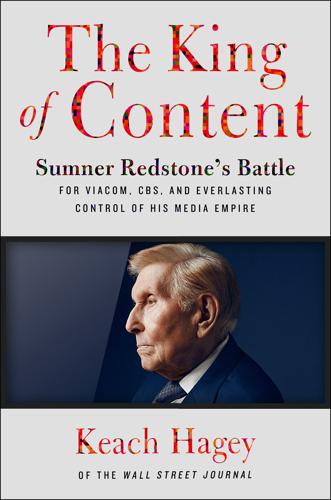
The King of Content: Sumner Redstone's Battle for Viacom, CBS, and Everlasting Control of His Media Empire
by
Keach Hagey
Published 25 Jun 2018
Under the leadership of Rothstein’s son Sumner, who worked at the Sunrise selling popcorn and soda during his teenage years, National Amusements would go on to take control of Viacom Inc. and CBS Corp. and build one of the world’s largest media holdings.12 Along the way, it has shaped culture in immeasurable ways, defining global pop culture for generations and inventing the reality television format at MTV, giving platform to the leading satirical voices of the last two decades with South Park and The Daily Show, pioneering the very idea of a dedicated children’s channel with Nickelodeon, reviving the once-beleaguered CBS to a prime-time powerhouse with hits like Survivor and The Big Bang Theory, and showing Hollywood that critical acclaim and commercial success need not be mutually exclusive with hit movies like Titanic, Forrest Gump, and Braveheart. It would turn Sumner Redstone into one of the richest men in the world, with a Beverly Hills mansion, girlfriends half his age, and a Rolodex of Hollywood royalty for dining companions. And ultimately, control of it would pass into the hands of Sumner’s daughter, Shari, and her children amid one of the greatest boardroom battles that corporate America has ever seen. But before any of that could happen, Max Rothstein would have to become Mickey Redstone
…
“Because my father was in the nightclub business I had met a few performers on the rare occasions during college when I had visited the clubs, so it seemed a natural assignment,” he wrote. “I made some contacts and suddenly I was an expert on booking bands.” He even got Benny Goodman to play for free. He was such a good impresario—and had access to such a powerful Rolodex—he received a commendation for his service from the army.31 But there was no sign he wanted to follow in his father’s footsteps. He had amassed enough credits before leaving for Arlington that Harvard allowed him to graduate at the end of the war, technically a member of the class of 1944. His Harvard yearbook of 1943–1944 shows him at twenty, slight and younger-looking than his classmates, filled with righteousness and idealism.32 With his concentration in classics and government, he intended to pursue a career in civil service.
…
“It was a toxic environment.” Instead, Smith and Freston, who now had a lot of time on his hands, started hanging out, traveling to exotic locales. Freston recognized the same spark in Vice that he had seen in early MTV, and he was entertained by Smith’s audaciousness. He joined Vice as an adviser and opened up his Rolodex of rich and powerful friends. Today, with investment from companies like Twenty-First Century Fox and Disney, Vice is valued at $5.7 billion, making it the most valuable new media company.24 (Vice has since missed some revenue targets and had to apologize for its “boys club” atmosphere after a New York Times report revealed several settlements for sexual misconduct among its employees and a culture of male entitlement.)25 It took years for Dauman to fully rid MTV Networks of the influence of Freston and his band of merry, profit-making pranksters, but if there was a single inflection point, it came on Thursday, May 5, 2011, the day after The Electric Barbarellas premiered on MTV.
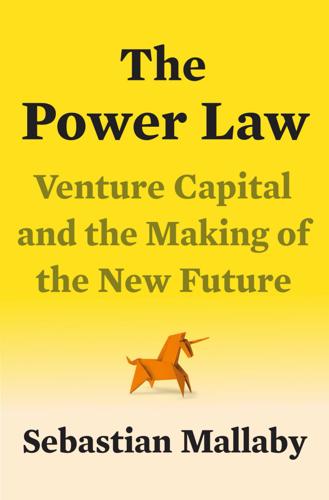
The Power Law: Venture Capital and the Making of the New Future
by
Sebastian Mallaby
Published 1 Feb 2022
The surge in venture dollars meant that more eager connectors plied their trade in the Valley, listening to pitches, interviewing prospective hires, linking ideas, people, and money. For many of these venture novices, building their networks was not just one thing that they did. Rather, it was the thing—the key to getting established in business. Bill Younger, who joined Sutter Hill in 1981, set himself the task of taking the smartest people in his Rolodex to lunch; at the end of every meal he’d ask, “Who is the absolutely best guy you’ve worked with?” Younger then made it his mission to meet that best guy—it was almost never a woman—and toward the end of the meeting he would repeat the question: “Who is the absolutely best guy out there?”[10] After a year of moving from one best guy to the next one, Younger had a list of about eighty superstars, and he cultivated each of them methodically.
…
The group discussed Thefacebook’s growth strategy, and the two Accel hosts—Efrusy and the managing partner, Jim Breyer—tried to coax Zuckerberg into the conversation. Breyer in particular was making headway. He had opened up a private channel to Zuckerberg after the Monday pitch, and the young founder appeared to be impressed by his golden Rolodex and silky confidence. But just as Breyer seemed to be connecting, Zuckerberg tuned out; he fell silent and turned in on himself, as though absorbed in an internal dialogue. Presently, he got up and went to the bathroom. For a long time, there was no sign of him. Matt Cohler left the table to go check on the boss.
…
Rather, they would coach technical founders as the tough questions arose: how to motivate executives, how to rally sales teams, how to sideline a loyal friend who has poured all his energy into your company. At the same time, Andreessen and Horowitz would supply technical founders with the sort of Rolodex that a seasoned CEO would have—connections to customers, suppliers, investors, and the media. Accel had differentiated itself by specializing in certain fields; Benchmark had pitched its “better architecture” of high fees and small funds; Founders Fund had pledged to back the most original and contrarian companies.
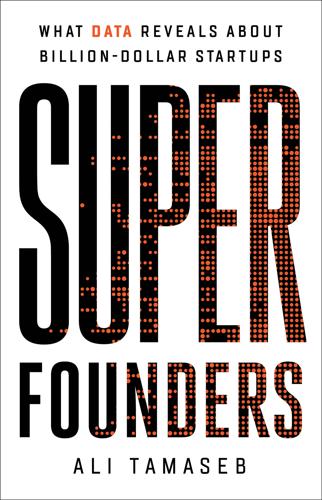
Super Founders: What Data Reveals About Billion-Dollar Startups
by
Ali Tamaseb
Published 14 Sep 2021
It simply means that the stereotypes about an “ideal” team—where one founder must be from the industry and the other co-founder must be a tech-savvy innovator—are not necessarily correct. More than domain expertise, what mattered was having work experience at all. It’s the soft skills like managing a team, hiring and firing, raising money, and working the Rolodex of connections that made a difference. Founders who had such capabilities and were able to quickly learn about a new space with a fresh, unbiased mind were able to perform better. FOUNDERS WHO BUILT A $2 BILLION CANCER COMPANY WITHOUT ANY MEDICAL BACKGROUND INTERVIEW WITH NAT TURNER OF FLATIRON HEALTH Nat Turner and Zach Weinberg didn’t have a background in oncology when they founded Flatiron Health, another company working on curing cancer.
…
In a survey done by investors Henri Deshays and Owen Reynolds, founders said they valued the personal relationship and chemistry with the VC partner as the most important factor, followed by deal terms and how fast the VC firm moved to make a decision to invest. Surprisingly, founders considered these factors more important than the VC’s track record or their industry Rolodex.3 They also observed that most founders didn’t find operational help from the VC all that valuable. WHAT ARE VCS LOOKING FOR? What do VCs look at when deciding to invest in a company? According to a survey of nine hundred VCs conducted at Stanford Graduate School of Business, 53 percent of early-stage VCs said the “team” was the most important factor when deciding to invest, followed by the fit with the fund (that is, if the investor likes investing in a particular industry or space; 13 percent) and the product or technology (12 percent).4 Although the team seems to be one of the most important factors VCs consider, there’s unfortunately a lot of bias in assessing teams and many misconceptions against certain characteristics (like the bias against the solo founders, as discussed at the beginning of this book).

CIOs at Work
by
Ed Yourdon
Published 19 Jul 2011
Someone observed the other day that they were looking for a typewriter ribbon and they used the Internet to find a typewriter ribbon. So it is kind of ironic that you would do that. It is a cultural thing. One guy here, in his thirties, made a comment about using a Rolodex to look something up. I said, “Let me stop you for a second. Do you think someone ten years younger than you would understand what a Rolodex is?” And he said, “You know, they probably wouldn’t.” Well that’s a term that we take for granted but it doesn’t make any sense anymore Yourdon: The other aspect of this generational thing that I heard a lot about from financial services industry is that the difficulty of reaching out to the consumer marketplace.
…
Index A AdKnow ledge, Inc., 87 Agile development methodology, 62 Amazon, 314, 319 America COMPETES Act, 304 American Airlines, 47, 72 American Defense Department, 84 American Marketing Society, 113 American Production Inventory Control Society, 211 Ames, 320 AMR Corp, 47 Android, 43 Annapolis, 340 Apple, 97, 101, 217, 242, 295 Computer, 35 Genius Bar, 8 Archipelago Holdings Inc., 87 Arizona Public Service (APS) Company, 66, 211, 223 Arizona State University, 227 ARPANET, 19, 117, 135 Art of Computer Programming, 2 Atlanta-based Southern Company, 191 AT&T, 191, 249 B Ballmer, Steve, 39 Bank of Boston, 47 Baylor-Grapevine Board of Trustees, 47 Bedrock foundation, 249 Bell Atlantic Mobile, 231 Bell Labs, 2, 249 BlackBerry, 60, 96, 116, 121, 171, 184, 246, 261, 296, 317 Blalock, Becky, 182, 191, 215 adaptability, 192 Air Force brat, 191, 192 Atlanta-based Southern Company, 191 banking industry, 203 Boucher, Marie, 196 brainstorm, 202 24/7 business, 199 business intelligence, 204 cloud computing, 205 cognitive surplus, 206 cognitive time, 206 Coker, Dave, 196 communication and education, 200 Community and Economic Development, 194 consumer market, 202 cybersecurity, 207, 209 data analytics, 204, 205 disaster recovery, 209 distributed generation, 204 distribution organization, 201 Egypt revolution, 198 farming technology, 206 finance backgrounds/marketing, 200, 209 Franklin, Alan, 193 Georgia Power, 191 Georgia Power Management Council, 193 global society, 206 Google, 198 incredible technology, 195 Industrial Age, 206 Information Age, 206 InformationWeek's, 196 infrastructure, 202 intellectual property, 196 intelligence and redundancy, 207 Internet, 198, 206 leapfrog innovations, 205 mainframe system, 207 marketing and customer service, 193, 200 MBA, finance, 192 microfiche, 207 microwave tower, 207 mobile devices, 203 mobility and business analytics, 205 Moore's Law, 205 new generation digital natives, 197 flexible and adaptable, 199 innovation and creativity, 199 superficial fashion, 198 Olympic sponsor, 193 out pushing technology, 202 reinforcement, 201 sense of integrity, 200 Southern Company, 194, 198, 201, 207 teamwork survey, 201 technology lab, 202 undergraduate degree, marketing, 192 virtualization, 205 VRU, 203 Ward, Eileen, 196 wire business, 201 world-class customer service, 203 Bohlen, Ken, 211 American Production Inventory Control Society, 211 Apple, 217 APS, 211, 223 ASU, 227 benchmarking company, 216 chief innovation officer, 229 Citrix, 217 cloud computing, 218, 219 cognitive surplus, 220 DECnet, 212 Department of Defense, 222 distributed computing, 217 energy industry, 214 gizmo/whiz-bang show, 216 GoodLink, 217 hard-line manufacturing, 218 home computing, 219 home entertainment, 219 Honeywell, 219 HR generalists, 215 information technology department, 211 Intel machines, 217 John Deere, 213 just say yes program, 223 Lean Six Sigma improvement process, 211 Linux, 220 MBA program, 214 mentors, 213 national alerts, 224 North American universities, 228 paradigm shifts, 218, 220 PDP minicomputers, 212 Peopleware, 226 prefigurative culture, 221 R&D companies, 218 Rhode Island, 226 role models, 213 San Diego Fire Department, 224 security/privacy issues, 217 skip levels, 223 smart home concepts, 219 smartphone, 217 social media, 225 Stead, Jerry, 214 Stevie Award, 211 Storefront engineering, 212 traditional management, 219, 226 Twitter, 224 vocabulary, 221 Waterloo operations, 213 Web 2.0 companies, 227 Web infrastructure, 215 wikipedia, 220 Y2K, 222 Botnets, 23 Brian's and Rob Pike's, 2 Bristol-Myers Squibb, 33 Broadband networks, 241 Brown, 227 Bryant, 227 BT Global Services, 253 BT Innovate & Design (BTI&D), 253 Bumblebee tuna, 130 C Career writing technology, 67 CASE tools, 232 Cash, Jim, 50 Christensen, Clyde, 212 Chrome, 14, 18 Chrysler Corporation, 175 Citibank, 337 Citicorp, 313 Citrix, 217 Client-server-type applications, 59 Cloud computing, 218, 219, 239, 240, 261, 262, 310, 311, 313 Cloud technology, 62 CNN, 54 COBOL, 250 Cognitive surplus, 20, 79, 206, 291 College of Engineering, University of Miami, 113 Columbia University, 1 Community and Economic Development, 194 Computer Sciences Corporation, 35 Computerworld magazine, 196 Consumer-oriented technology, 22 Content management system, 133 Corporate information management (CIM) program, 309 Corporate Management Information Systems, 87 Corvus disk drive, 36 Customer Advisory Boards of Oracle, 191 Customer-relationship management (CRM), 56 Cutter Business Technology Council, 173 D Dallas Children's Medical Center Development Board, 48 DARPA, 19 DDoS attacks and security, 81 DECnet, 212 Dell Platinum Council, 113 DeMarco, Tom, 16, 226 Department of Defense, 222, 329, 332 Detroit Energy, 252 Digital books, 30 Digital Equipment, 48 Distributed computing, 217 Dodge, 189 Dogfooding, 11, 37, 38, 236 DTE Energy, 173 DuPont Dow Elastomers, 151 E Educational Testing Service (ETS), 151 E-government, 282, 285 Electrical distribution grid, 182 Elementary and Secondary Education Strategic Business Unit, 151 Elements of Programming Style, 2 Ellyn, Lynne, 173 advanced technology software planning, 175 Amazon, 184 artificial intelligence group, 175 Association for Women in Computing, 173 benchmark, 180, 181 BlackBerries, 184 Burns, Ursula, 175 Chrysler, 176 Cisco, 186 cloud computing, 183, 184 component-based architecture, 186 corporate communications customer service, 185 Crain's Detroit Business, 173 cyber security threats, 177 degree of competence, 187 diversity and sophistication, 182 DTE Energy, 173 energy trading, 176 engineering and science programs, 188 enterprise business systems policy, 186 executive MBA program, 176 Facebook, 185 fresh-out-of-the-university, 187 General Electric, 174 Google, 184 Grace Hopper, 174 grid re-automation, 182 Henry Ford Hospital, 174 internal social media, 185 International Coaching Federation, 178 iPads, 184 IP electrical grids, 182 iPod applications, 182 IT budgets, 186 IT responsibilities, 176 Java, 186 level of sophistication, 179 lobbying efforts, 181 medical computing, 175 Miller, Joan, 174 Mulcahey, Anne, 175 Netscape, 175 neuroscience leadership, 189 object-oriented programming, 186 Oracle, 186 peer-level people, 179 people system, 177 policies and strategies, 180 Radio Shack, 180 remote access capacity, 189 security tool and patch, 183 sense of community, 180 Shipley, Jim, 174 smart grid, 177, 182 smart meters, 182 smart phone applications, 183 swarming, 179 technical competence, 178, 179 Thomas, Marlo, 174 Twitter, 185 UNITE, 181 vendor community, 186 virtualization, 183, 184 Xerox, 175 E-mail, 9 Employee-relationship management (ERM), 56 Encyclopedia, 115 Encyclopedia Britannica, 292 ERP, 123 F Facebook, 244 Ellyn, Lynne, 185 Sridhara, Mittu, 73, 84 Temares, Lewis, 116, 121, 131 Wakeman, Dan, 169 Federal information technology investments, 299 Flex, 236 Ford, 102 Ford, Monte, 47 agile computing, 59 agile development, 62, 66 airplanes, 51 American Airlines, 47 Arizona Public Services, 66 Bank of Boston, 47 Baylor-Grapevine Board of Trustees, 47 BlackBerry, 60 board of Chubb, 51 board of Tandy, 51 business organizations, 63 business school, dean, 50 career writing technology, 67 client-server-type applications, 59 cloud technology, 62 CNN, 54 common-sense functionality, 49 consumer-based technology, 60 CRM, 56 Dallas Children's Medical Center Development Board, 48 Digital Equipment, 48 ERM, 56 financial expert, 69 frequent-flier program, 57 frontal lobotomy, 57 Harvard Business Review, 50 HR policies, 65 IBM, 48 information technology, 47, 52 Internet, 54 Internet-based protocol, 59 iPhone, 52 IT stuff, 58 Knight Ridder, 51 legacy apps, 59 mainframe-like applications, 59 management training program, 64 marketing and technical jobs, 48 Maynard, Massachusetts mill, 48 MBA program, 50 mentors, 49 Microsoft, 50 mobile computing, 62 New York Times, 53 operations center, 54 PDP-5, 49 PDP-6, 49 Radio Shack, 51 revenue management, 57 role models, 49 security paradigms, 62 self-service machine, 57 Silicon Valley companies, 68 smartphones, 54 social networking, 51, 53, 56, 58 stateful applications, 59 techie department, 48 The Associates First Capital Corporation, 47 transmission and distribution companies, 47 wireless network, 59 YouTube, 65 Fort Worth, 226 Free software foundation, 19 Fried, Benjamin, 1, 241 agile development, 25 agile methodologies, 26 Apple Genius Bar, 8 ARPANET, 19 Art of Computer Programming, 2 Bell Labs, 2 books and records, accuracy, 25 botnets, 23 Brian's and Rob Pike's, 2 cash-like principles, 29 CFO, 4 check writers, 18 chrome, 14, 18 classic computer science text, 1 cognitive surplus, 20 Columbia University, 1 compensation management, 7 competitive advantage, 9, 18 computer science degree, 1 computer scientists, 6 consumer-driven computing, 12 consumer-driven software-as-a-service offerings, 12 consumer-driven technology, 12 consumer-oriented technology, 14, 22 corporate leadership, 25 cost centers, 4 DARPA, 19 decision makers, 17 decision making, 13 360-degree performance management, 7 detroit energy, 30 digital books, 30 document workbench, 2 dogfooding, 11 e-books, 29 Elements of Programming Style, 2 e-mail, 9 end-user support, 7 engineering executive group, 4 European vendors, 6 file servers and print servers, 17 Folger Library editions, 30 free software foundation, 19 German company, 13 German engineering, 13 Gmail, 15 Godot, 26 Google, 1 books, 29 products, 5, 10 software engineers, 6 hiring managers, 6 HR processes and technologies, 6 IBM model, 13 instant messaging, 9 Internet age, 6 interviewers, training, 6 iPad, 29 iPhone, 29 IPO, 3 IT, engineering and computer science parts, 4 Knuth's books, 2 Linux machine, 8 Linux software, 19 machine running Windows, 8 Macintosh, 8 Mac OS, 9 macro factors, 11 Managing Director, 1 mentors, 1 microcomputers, 18 Microsoft, 5 Minds for Sale, 20 Morgan Stanley, 1–3, 5, 16 nonacademic UNIX license, 2 nontechnical skills, 5 oil exploration office, 17 open-source phone operating system, 20 outlook, 15 PARC, 19 performance review cycles, 7 personal computer equipment, 15 post-Sarbanes-Oxley world, 25 project manager, 13 quants, 24 rapid-release cycle, 26 R&D cycle, 24 regression testing, 27 role models, 1 shrink-wrapped software, 14 signature-based anti-virus, 22 smartphone, 20, 27 social contract, 8 society trails technology, 21 software engineering tool, 13 software installation, 14 supply chain and inventory and asset management, 10 SVP, 4 telephony, 17 ten things, 13 TMRC, 19 TROFF, 2 typesetter workbench, 2 UI designer, 14 university computing center, 28 videoconferencing, 12 Visicalc, 24 Wall Street, 23 Walmart, 6 waterfall approach, 25 XYZ widget company, 5 YouTube video, 20 G Gates, Bill, 39, 50 General Electric, 134 General Foods, 309, 326–328 General Motors, 33, 321, 329, 332 George Mason School of Information Technology, 309 Georgia Power Company, 191–193, 196 Georgia Power Management Council, 193 German company, 13 German engineering, 13 German manufacturing company, 232 Gizmo/whiz-bang show, 216 Gmail, 15 GoodLink, 217 Google, 1, 84, 85, 117, 217, 219, 220, 222, 235, 241, 263, 302, 319 apps, 314 books, 29 commercial products, 10 model, 293 Government Accountability Office (GAO), 305 4G program, 250 4G smartphone, 235 GTE, 231 Gupta, Ashish aspiration, organization, 256 bandwidth and network infrastructure, 267 BlackBerry, 261 business and customer outcomes, 274 capital investment forums, 269 career progression, 255 cloud-based shared infrastructure model, 263 cloud computing, 261, 262 collaboration, 272 communications infrastructure, 258 compute-utility-based model, 262 control and integrity, 268 core competency, 255 core network infrastructure, 267 core strengths, 256 cost per unit of bandwidth, 267 customer demands, 268 data protection, 261, 262 decision-making bodies, 269 demographics, 272, 273 device convergence, 263 dogfooding, 259 employee flexibility, 260, 264 engagement and governance, 269 enterprise market segment, 261 equipment management, 260 executive MBA, 256 fourth-generation LTE networks, 267 functional service departments, 270 Global Services, distributed organization, 257 Google, 263, 275 Google Apps, 266 handheld devices, 265 hastily formed networks, 258 IMF, 266 innovation and application development, 265 iPad, 257, 260, 261, 266,267 iPhone, 266 Japan, 257, 258 London Business School, 253 management functions, 257 management sales functions, 257 market segments, 259 MBA, General Management, 253 measurements, 271 messaging with voice capability, 264 mini-microcomputer model, 261 mobile communications network, 258 mobile-enabling voice, 259 mobile phone network, 260 mobile traffic explosion, 265 network infrastructures, 265 network IT services, 254 network quality, 257 new generation digital natives, 271 disadvantages, 273 Google, 273 opportunities, 273 Olympics, 263 opportunities, 275 organizational construct, 272 outsourced network IT services, 259 outsourcing, 271 per-use-based model, 262 portfolio and business alignment, 274 Portfolio & Service Design (P&SD), 253 primary marketing thrust, 264 product development thrust, 264 product management team, 259 project and program management, 255 resource balance, 270 scalability, 262 security, 262 Selley, Clive, 254, 255 service delivery organization, 254 single-device model, 264 smart devices, 267 smart phones, 266 telecommunications capability, 259 upward-based apps, 264 virtualization, 261 voice-over-IP connections, 258 Windows platform, 261 Gurnani, Roger, 231 accounting/finance department, 233 analog cellular networks, 250 AT&T, 249 bedrock foundation, 249 Bell Atlantic Mobile, 231 Bell Labs, 249 blogs, 244 broadband networks, 241 business benefits, 237 business device, 240 business executives, 238 business leaders, 248, 249 business relationship management, 248 buzzword, 239 CASE tools, 232 cloud computing, 239, 240 COBOL, 250 consumer and business products, 231 consumer electronics devices, 241 consumer telecom business, 233 customer-engagement channel, 244 customer forums, 244 customer support operations, 251 customer-touching channels, 236 degree of control, 246 distribution channel, 250 dogfooding, 236 ecosystem, 243, 249 enterprise business, 233 ERP systems, 236 face-to-face communications, 244 FiOS product, 235 flex, 236 "follow the sun" model, 239 German manufacturing company, 232 4G program, 250 4G smartphone, 235 hardware/software vendors, 247 information assets, 245 information technology strategy, 231 intellectual property rights, 244 Internet, 235, 239 iPhone, 243 Ivan, 232 Lowell, 232 LTE technology-based smartphone, 235 marketing, 251 MIT, 246 mobile technology, 234 Moore's law, 242 MP3 file, 235 network-based services, 240 Nynex Mobile, 233 P&L responsibility, 251 PDA, 238 personal computing, 235 product development, 234, 251 role models, 232 sales channels, 251 smartphones, 238 state-level regulatory issues, 251 state-of-the-art networks, 243 telecom career, 232 telephone company, Phoenix, 234 Verizon Communication, 231, 232 virtual corporations, 241 Web 2.0, 244 Williams Companies, 232, 233 WillTell, 233 wireless business, 233 H Hackers, 19 Harmon, Jay, 213 Harvard Business Review, 50 Harvard Business School, 331 Heller, Martha, 171 Henry Ford Hospital, 174 Hewlett-Packard piece, 129 Home computing, 219 Honda, 102 Honeywell, 219 Houghton Mifflin, 134, 136 I IBM, 48, 250 manpower, 311 model, 13 Indian IT outsourcing company, 255 Information technology, 52 Intel machines, 217 International Coaching Federation, 178 Internet, 9, 44, 54, 117, 235, 239, 316, 322 Internet-based protocol, 59 Interoperability, 341 iPads, 2, 94, 97, 184, 257, 260, 264, 267, 288, 289, 295, 296 IP electrical grids, 182 iPhones, 43, 52, 96, 101, 170, 181, 260, 264,296 iPod, 101 IT lifecycle management process, 37 Ivan, 232 J John Deere, 213 K Kansas, 226 Kernigan, Brian, 2 Knight Ridder, 51 Knuth, Donald, 2, 29 Kraft Foods Inc, 309 Krist, Nicholas, 28 Kundra, Vivek Clever Commute, 305 cognitive surplus, 303 command and control systems, 301 consumerization, 302 consumption-based model, 300 cyber-warfare, 301 Darwinian pressure, 302 desktop core configuration, 306 digital-borne content, 301 digital oil, 300, 307 digital public square, 304 enterprise software, 303 entrepreneurial startup model, 306 frugal engineering, 306 Google, 302 government business, 302 innovator's dilemma, 307 iPad, 302 IT dashboard, 302 leapfrog technology, 306 massive consumerization, 301 megatrends, 301 parameter security, 302 Patent Office, 305 pharmaceutical industry, 304 phishing attacks, 301 policy and strategic planning, 299 security and privacy, 301 server utilization, 300 social media and technology, 300, 306 storage utilization, 300 Trademark Office, 305 Wikipedia, 303 L LAN, 259 Lean Six Sigma improvement process, 211 Levy, Steven (Hackers), 19 Linux, 220 machine, 8 open-source software, 19 Lister, Tim, 226 London Business School, 73, 253, 256 Long-term evolution (LTE), 235 Lowell, 232 M MacArthur's intelligence officer, 327 Macintosh, 8 Mainframe computers, 118 Mainframe-like applications, 59 Marriott's Great America, 35 McDade, 327 McGraw-Hill Education, 133, 147, 150 Mead, Margaret, 221 Mendel, 311 Microcomputers, 18 Microsoft Corporation, 5, 11, 33, 36, 38, 41, 44, 46, 50, 156, 217, 223, 236, 250, 293 Microsoft Higher Education Advisory Group, 113 Microsoft's operational enterprise risk management, 33 Middlesex University, 189 Miller, Joan Apple products, 295 authority and accuracy, 292 award-winning ICT programs and services, 277 back locked-down information, 289 big-scale text issues, 294 big-time computing, 279 BlackBerry, 296 business management training, 281 business skills, 281 central government, 283 cognitive surplus, 291 community care project, 278 community development programs, 277, 278 computers, constituency office, 294 confidential information, 284 data management, 281 decision making, 286 democratic process, 288 economics degree, 278 e-government, 282, 285 electronic communication, 289 electronic-enabled public voice, 286 electronic information, 288 electronic media, 286 electronic records, 280, 284 electronic services, 294 e-mail, 289, 290, 295 forgiving technology, 296 front-office service, 282, 283 Google, 292 Google's cloud service, 290 Government 2, 287 Health and Social Care, 284 House business, 294 House of Lords, 288 ICT strategy, 289, 290 information management, 278 insurance company, 278 Internet information, 285 iPad, 288, 289, 296 IT data management, 279 management principle, 280 local government, 283 mainframe environment, 289 member-led activity, 287 messages, 289 Microsoft, 293 Microsoft's cloud service, 290 mobile electronic information, 284 mobile technology, 289 national organization, 284 network perimeters, 290 official government information, 285 on-the-job training, 281 organizational planning, 278 Parliamentary ICT, 277 project management, 279 public sector, 282 public transportation, 285 quango-type organizations, 283 representational democracy, 286 security, 290, 291 social care organization, 279 social care services, Essex, 278 social care systems, 284 social networking, 285 sovereignty, 291 sustainability and growth, 293 technical language, 294 technology skills, 281 transactional services, 285 transferability, 291 Web-based services, 285 Wikipedia, 291, 292 X-factor, 286 Minds for Sale, 20 Mitchell & Co, 333 MIT Media Labs, 149 Mobile computing, 62 Mobile technology, 234 Mooney, Mark, 133 artificial intelligence, 134 back-office legacy, 136 balancing standpoint, 145 BBC, 140 Bermuda Triangle, 135 BlackBerry shop, 142 Bureau of National Standards, 136 business model, 140 career spectrum, 144 cloud computing, 148 competitive intelligence and knowledge, 143 Connect, 141 customer-facing and product development, 135 customer-facing product space, 137 customer space and product development, 136 digital products development, 144 digital space and product, 146 educational and reference content, 139 educational products, 141 entrepreneur, 150 General Electric, 134 GradeGuru, 140 handheld devices, 142 hard-core technical standpoint, 146 hardware servers, 142 Houghton Mifflin, 134, 136 HTML, 138 industrial-strength product, 141 intellectual content, 148 Internet, 148 iPad, 138, 139, 142 iPhone, 142, 143 iTunes, 138 Klein, Joel, 147 learning management systems, 137 long-term production system, 141 Marine Corps, 134 McGraw-Hill Education, 133, 147 media development, 144 media space, 138, 142 mobile computing, 139 MOUSE, 150 online technology, 138 open-source capabilities, 142 Oracle quota-management system, 143 people's roles and responsibilities, 137 Phoenix, 149 product development, 149 publishing companies, 142 publishing systems, 137 Reed Elsevier, 133, 136 Salesforce.com, 144, 149 scalability testing, 145 senior business leaders, 146 social network, 148 soft discipline guidelines, 141 solar energy, 149 Strassmann, Paul, 135 technical skill set, 143, 144 testing systems integration, 145 The Shallows, 139 transactional systems, 142 trust and integrity, 145 TTS, QuickPro, and ACL, 144 Vivendi Universal, 134 War and Peace today, 139 Moore's law, 242 Morgan Stanley, 2, 3, 16 N NASA, 309, 333, 334 National Institute of Standards and Technology (NIST), 173 Naval Postgraduate School, 134 Netscape, 175 New Brunswick model, 282 News Corp., 147 New York Stock Exchange (NYSE), 87, 116, 223, 278 New York Times, 53 North American universities, 228 NSA/CIA software, 134 Nynex Mobile, 233 O Oil exploration office, 17 Open-source phone operating system, 20 Outlook, 15 P Pacer Software, 135 Paradigm shifts, 218, 220 Parks and Recreation Department, 126 PDP minicomputers, 212 Peopleware, 226 Personal computing, 235 Personal digital assistant (PDA), 238 Petri dish, 44 Phoenix, 211 Plauger, Bill, 2 Q Quants, 24 R Radio Shack, 51 Reed Elsevier, 133, 136 Reed, John, 335 Rubinow, Steve, 87 AdKnowledge, Inc., 87 agile development, 110 Agile Manifesto, 110 Archipelago Holdings Inc., 87 attributes, 108 capital market community, 91 cash/actual trading business, 88 channel marketing departments, 92 cloud computing, 97 CNBC, 89 collaborative technology, 95 collective intelligence, 95 communication skills, 102, 106 conference organizations, 99 consumer marketplace, 94 data center, 90 decision making, 105, 108 economy standpoint, 100 e-mail, 100 Fidelity Investments, 105 financial services, 92 IEEE, 101 innovative impression, 94 Internet, 98 iPad, 97 iPod device, 91 labor laws, 110 listening skills, 106 logical progression, 104 Mac, 96 mainframe, 104 management and leadership, 104, 105 market data system, 89 micro-second response time, 89 mobile applications, 94 multidisciplinary approach, 103 multimedia, 97 multi-national projects, 110 multiprocessing options, 99 network operating system, 103 NYSE Euronext, 87 open outside system, 88 parallel programming models, 99 personal satisfaction, 109 PR function, 106 proclaimed workaholic, 109 real estate business, 88 regulatory and security standpoint, 96 Rolodex, 94 Rubin, Howard, 99 server department, 97 software development, 89 sophisticated technology, 101 technology business, 88 technology integration, 91 trading engines, 90 typewriter ribbon, 94 virtualization, 98 Windows 7, 96 younger generation video games, 93 visual interfaces, 93 Rumsfeld, Donald, 222 S San Diego Fire Department, 224 Santa Clara University, 36 SAS programs, 131 Scott, Tony, 10, 33, 236 Android, 43 Apple Computer, 35 architectural flaw, 44 BASIC and Pascal, 35 Bristol-Myers Squibb, 33 Bunch, Rick (role model), 34 business groups, 42 COO, 39 Corporate Vice President, 33 Corvus disk drive, 36 CSC, 35 Defense department, 45 dogfooding, 37, 38 games and arcades, 35 General Motors, 33 IBM's role, 37 information systems management, 36 integrity factor, 40 Internet, 44 iPhone, 43 IT lifecycle management process, 37 leadership capability, 40 leisure studies, 34 macro-architectural threats, 44 Marriott's Great America, 35 math models, 36 Microsoft Corporation, 33, 36, 38, 41, 44, 46 Microsoft's operational enterprise risk management, 33 parks and recreation, 34 Petri dish, 44 playground leader, 42 product groups, 42 quality and business excellence team, 33 Santa Clara University, 36 Senior Vice President, 33 smartphone, 43 social computing, 38 Sun Microsystems, 36 theme park industry, 35 University of Illinois, 34 University of San Francisco, 36 value-added business, 33 Walt Disney Company, 33 Senior Leadership Technology and Product Marketing, 71 Shakespeare, 30 Shirky, Clay, 220 Sierra Ventures, 191 Silicon Valley companies, 68 Silicon Valley software factories, 323 Skype, 118 Smart Grid Advisory Committee, 177 Smartphones, 20, 27, 43, 54, 217, 238 Social care computer electronic record system, 279 Social computing, 38, 320 Social networking, 51, 53, 56, 58 Society trails technology, 21 SPSS programs, 131 Sridhara, Mittu, 71 Amazon, 76 American Airlines, 72 back-end computation and presentation, 80 banking, 77 B2B and B2C, 85 business/product departments, 82 business work context, 74 buzzword, 77 career aspiration, 73 career spans, 73 coders, 72 cognitive surplus, 79 competitive differentiation, 74 computing power, 78 contribution and energy, 85 convergence, 75 CPU cycles, 78 cross-channel digital business, 71 cultural and geographic implementation, 72 customer experience, 84, 85 customer profile, 76 data visualization, 79, 80 DDoS protection, 81 economies of scale, 77 elements of technology, 72 encryption, 82 end customer, 83 entertainment, 75 ERP system, 72 Facebook, 84 finance and accounting, 73 foster innovation and open culture, 81 friends/mentors/role models, 74 FSA, 76 gambling acts, 81 games, 79 gaming machines, 80 GDS, 72 global organization, 71 Google, 75, 84, 85 Group CIO, Ladbrokes PLC, 71 industry-standard technologies, 77 integrity and competence, 83 IT, 74, 82 KickOff app, 71 land-based casinos, 79 live streaming, 78 London Business School, 73 mobile computing, 78 multimedia, 84 new generation, 84 on-the-job training, 73 open-source computing, 79 opportunity, 80, 83 PCA-compliant, 81 personalization, 76 real-time systems, 74 re-evaluation, 81 reliability and availability, 77 security threats, 80 smart mobile device, 75 technology-intense customer, 85 top-line revenue, 74 trader apps, 82 true context, 73 underpinning business process, 76 virtualization, 78 Visa/MasterCard transactions, 78 Web 3.0 business, 76 web-emerging web channel, 76 Wikipedia, 79, 85 Word documents and e-mail, 82 work-life balance, 84 young body with high miles, 72 Zuckerberg, Mark, 73 Stead, Jerry, 214 Storefront engineering, 212 Strassmann, Paul, 228, 309 agile development, 340 Amazon EC2, 314 America information processors, 322 Annapolis, 340 AT&T, 332 backstabbing culture, 339 BlackBerry, 317 block houses, 319 CFO/CEO position, 337 CIM program, 309 Citibank, 337 Citicorp, 313, 339 cloud computing, 310, 311, 313 coding infrastructure, 341 communication infrastructure, 341 corporate information management, 329 Corporate Information Officer, 309 counterintelligence, 320 cyber-operations, 338 Dell server, 314 Department of Defense, 329, 332 Director of Defense Information, 309 employee-owned technology, 316 enterprise architecture, 316 exfiltration, 313 financial organizations, 320 firewalls and antiviruses, 312 General Foods, 309, 326–328 General Motors, 321, 329, 332 George Mason School of Information Technology, 309 Google apps, 314 government-supported activities, 326 Harvard Business School, 331 HR-related issues, 331 IBM manpower, 311 infiltration, 313 Internet, 316, 322 interoperability, 315, 317, 341 Kraft Foods Inc, 309 MacArthur's intelligence officer, 327 Machiavellian view, 327 mash-up, 316 military service, 331 NASA, 309, 333, 334 police department, economics, 312 powerpoint slides, 324 Radio Shack, 319 senior executive position, 334 service-oriented architecture, 316 Silicon Valley software factories, 323 social computing, 320 Strassmann's concentration camp, 318 structured methodologies, 342 U.S.
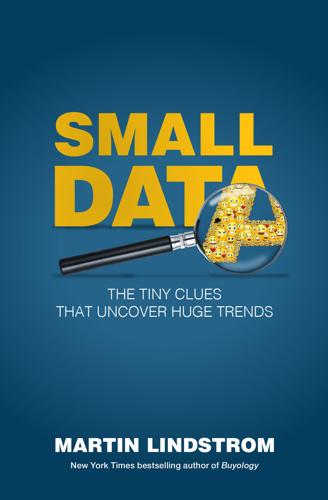
Small Data: The Tiny Clues That Uncover Huge Trends
by
Martin Lindstrom
Published 23 Feb 2016
In most parts of the world, at least in the West, men and women exchange business cards reflexively and thoughtlessly. The gesture is automatic, and even indifferent. Businesspeople will tell you that almost all of the business cards they receive end up in a stack of other look-alike cards, or placed inside a Rolodex, never to be looked at again. But in Japan, the exchange of business cards is formal and ceremonial. A Japanese businessman hands you his business card using two hands, and at chest level, as if communicating he is giving you his card from his heart. In stores throughout China and Japan, employees also take enormous pains wrapping and boxing objects.
…
Lastly, I study the parallels between a girl’s “home”—her bedroom—and her Facebook “home” page. I like to say that social media is the new bedroom wall. Just as they do inside their own sleeping areas, Facebook users upload artwork and photographs onto their “walls,” “like” certain books, magazines and films, and create photo collages and albums. An open Rolodex of their friends is always available for perusal and, of course, users are regularly urged to update their “statuses,” a word Facebook means literally. Social media home pages and offline homes have another critical thing in common: only a small fraction of what we post on social media bears much resemblance to what’s really going on in our lives—and our real homes are often edited constructs of who we believe ourselves to be.
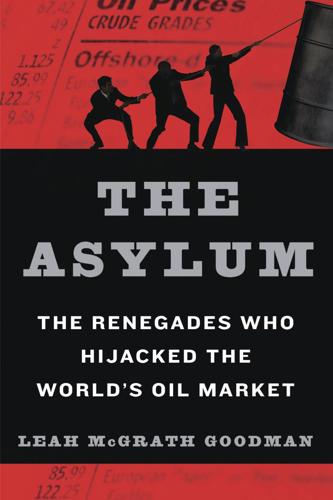
The Asylum: The Renegades Who Hijacked the World's Oil Market
by
Leah McGrath Goodman
Published 15 Feb 2011
Its purveyors worked anywhere from the gleaming office towers of Houston to the dingy backrooms of the nation’s Chinatowns, conducting their trades face-to-face, by telephone, or over the Internet, but always in private. “That’s not even the worst of it,” says a high-level energy exchange executive. “Most people don’t realize there’s a guy out there with an Internet connection and a Rolodex putting together deals in his underwear. He’s got six guys on the line and another thirty on hold.” The over-the-counter traders brokering trades in their boxer briefs weren’t doing small-size deals either. They were joining the ranks of the mastodons, assembling multibillion-dollar transactions for some of the largest energy-trading banks in the world, including Morgan Stanley and Goldman Sachs.
…
He immediately dispatched one of the partners to his home state of Texas to begin building up business relationships there. The partner was told it was important for energy hedge funds to become friendly with the Texans in general and the over-the-counter market’s brokers in particular (these were the ones with the Rolodexes, who worked from home in their underwear). A hedge fund was nothing without the goodwill of its brokers, who knew how to navigate the narrows of the off-exchange netherworld. As the arbiters of multimillion- and billion-dollar deals between the banks, hedge funds, and energy companies, these brokers wielded absolute power.
…
For their services, they were paid millions of dollars a year, sometimes by a single client. Best of all, they were completely unlicensed and uncertified, as their market was unregulated. In truth, they weren’t even getting paid for their brokering skills. They were getting paid for access to their golden Rolodexes, which linked them to nearly every major energy powerhouse in the world, including banks like Morgan Stanley and Goldman Sachs. The more people on your broker’s top-secret client list, the more opportunities you had as a trader to do big deals. And big deals meant big money. The brokers were the trusted gatekeepers of the underground, and in a cutthroat market where the traders trusted no one—least of all one another—they were the sentinels who would watch your back, provided you paid them well.
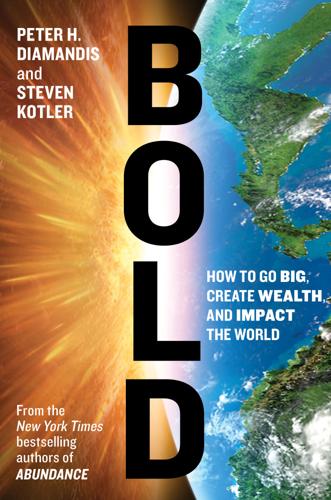
Bold: How to Go Big, Create Wealth and Impact the World
by
Peter H. Diamandis
and
Steven Kotler
Published 3 Feb 2015
Which is exactly why the news in 2012, as Jon Stewart pointed out, sounded exactly like you thought the news would sound in 2012. The International Space University Of course, right now, you’re probably thinking this super-credibility advice isn’t much good for entrepreneurs without billionaires in their Rolodex. Certainly, when Eric and I started on our investor recruitment mission, we already had a network in place that gave us access to investors like Branson and Page. This is not going to be the case for everyone. But that doesn’t mean all is lost. In fact, my entire thinking about the line of super-credibility dates back to a time in my life when I had little credibility, when I was a college student—in the pre-Internet, pre-Google, pre-Facebook days—with access to few beyond friends and family.
…
It took me over ten years to raise the money for the Ansari XPRIZE, but Wendy Schmidt stepped forward to fund the Oil Cleanup Challenge in less than forty-eight hours. Certainly one reason I raised money for the Oil Cleanup Challenge so quickly was the fact that by then I had a track record of success and a considerably thicker Rolodex, but a more important factor was the 800,000 gallons of crude gushing into the Gulf Coast each day. Disaster is a motivator because empathy is a motivator, and empathy is never higher than when the same disaster movie has been playing on TV for over a month. But my point here isn’t about capitalizing on misfortune, it’s about capturing momentum.

Hate Inc.: Why Today’s Media Makes Us Despise One Another
by
Matt Taibbi
Published 7 Oct 2019
More seriously, Channel 5 and journalism became as intimately a part of my identity growing up as, say, baseball must have been for Barry Bonds. I was fascinated by my father’s work. He had a ritual he called the “phone attack.” When he came home at night, he would pour himself a drink, light up a Camel unfiltered, and start going through a giant Rolodex, pulling names out at random. Then he would dial his clunky rotary phone and call people to chat. As a boy watching, I learned this lesson: sources are relationships that must be managed both when you’re doing a story, and also when you’re not. People need to feel like you’re interested in their lives for their own sake, not just when you need something from them.
…
He claimed to have his finger on the pulse of what he called the “Gang of 500,” a group of “campaign consultants, strategists, pollsters, pundits, and journalists who make up the modern-day political establishment” and have the “inside dope” on where the country is headed. Another journalist might have just said “the people in my Rolodex,” but whatever. This “Gang of 500” was constantly telling Halperin the “inside dope,” which often felt like pulled-from-his-ass storylines about candidates’ strengths and weaknesses. Nobody could get politicians to do the Takeshi’s Castle obstacle course better than Halperin. He and Heilemann are collectively the Skip Bayless of political journalism, reducing politics to T-shirt-sized platitudes.
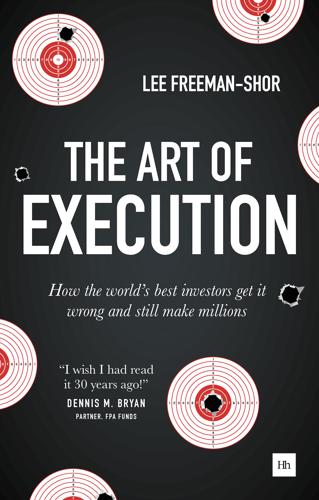
The Art of Execution: How the World's Best Investors Get It Wrong and Still Make Millions
by
Lee Freeman-Shor
Published 8 Sep 2015
When you consider all the variables and assumptions that analysts have to deal with before they reach a conclusion, it is mind blowing that they could have any degree of confidence at all. Because many of the Rabbits had been professionally investing for a couple of decades, controlling a significant amount of assets, they had Rolodexes to die for. When they found the ‘story’ behind an investment being challenged, they liked nothing better than picking up the phone and dialling the CEO on his or her personal number to get to the bottom of things. Despite being reassured by the CEO that the setback was merely a bump in the road and the media was making a mountain out of a mole hill, the Rabbits would do nothing.

Florence Like a Local
by
Dk Eyewitness
For one thing, the understated, elegant mammas who shop here wouldn’t dare be seen ferociously upturning piles of clothing. For another, Ninni – named after the proprietor who runs the show, with help from her daughter – is more curated than most Florentine art exhibitions. No item here is an accident: dresses, suits, jackets, shoes and accessories are sourced from Ninni’s lengthy Rolodex of contacts across Europe. Expect YSL, Chanel, Fendi and Prada as well as smaller contemporary brands. Try it! FIND YOUR FIT Take a fashion walking tour with Alice Cozzi (www.florencefashiontour.com), who will guide you around some lesser-known thrift stores before a trip to her personal tailor to fit your new clothes perfectly.
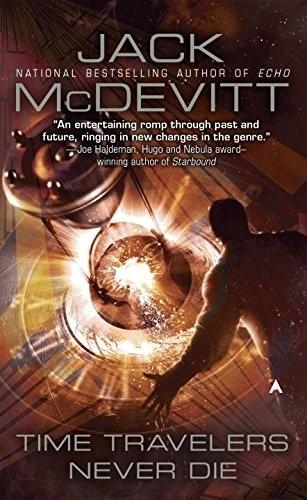
Time Travelers Never Die
by
Jack McDevitt
Published 10 Sep 2009
Could Shel provide a list of friends and associates? Did his father have any enemies that he knew of? Had anyone ever threatened him? Because the investigators could construct no easy explanation for the robes—there were six—they removed them. They also boxed everything that had been on top of the desk, including his index cards and the Rolodex. Even the pens went away. A day later, Thursday, the Inquirer got the story. EMINENT PHYSICIST MISSING, read the headline. There was no mention of the locked doors and windows. The FBI arrived Friday with a search warrant. “Strictly routine,” they told him. “But your father did some consultation work for the government, so naturally we’re interested.”
…
We’ll need to keep them a bit longer, I’m afraid.” “Would it be possible for me to look at them?” “It’s not part of the routine, Doctor.” “I’d be grateful.” He made up a story about looking for a lost phone number. “Put a guard on me, if you want. I’ll wear gloves. I’d just like to look at his Rolodex and note cards for a minute.” Another pause. Then: “Okay. Come on down. We’ll see what we can do.” THEY led him into a side room and, while one of the officers watched, he flipped through the cards until he found the one with Clemmie’s name. It was one of nine character groups on the card. But only two others consisted of seven characters.
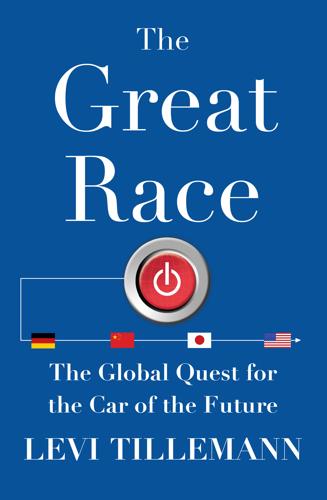
The Great Race: The Global Quest for the Car of the Future
by
Levi Tillemann
Published 20 Jan 2015
The vehicle technologies developed and deployed over the coming two decades will fundamentally transform our lives. Not long ago, people kept large rolodexes of index cards alphabetically organized with the names and addresses of friends, family, and colleagues. People memorized phone numbers and communicated via pay phone. Today our smartphones can tap into troves of information that are, for practical purposes, limitless. This information is what lubricates the gears of the twenty-first-century economy. Just like rolodexes, driver’s licenses may soon be seen as an antiquated relic of the twentieth century. Electric and autonomous vehicles are bound to enable an entirely new culture and energy system.
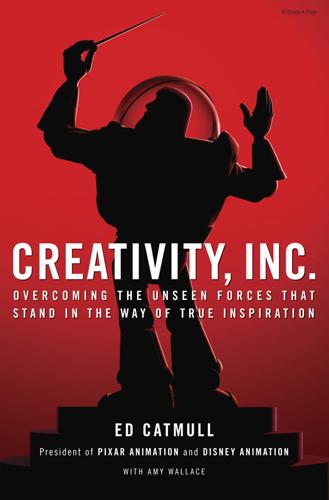
Creativity, Inc.: Overcoming the Unseen Forces That Stand in the Way of True Inspiration
by
Ed Catmull
and
Amy Wallace
Published 23 Jul 2009
I knew I had to put some sort of hierarchy in place, but I also worried that hierarchy would lead to problems. So I edged in slowly, feeling suspicious of it at first, yet knowing that some part of it was necessary. The Bay Area in 1979 could not have provided a more fertile environment for our work. In Silicon Valley, the number of computer companies was growing so fast that no one’s Rolodex (yes, we had Rolodexes back then) was ever up to date. Also growing exponentially were the number of tasks that computers were being assigned to tackle. Not long after I got to California, Microsoft’s Bill Gates agreed to create an operating system for the new IBM personal computer—which would, of course, go on to transform the way Americans worked.

Priceless: The Myth of Fair Value (And How to Take Advantage of It)
by
William Poundstone
Published 1 Jan 2010
“The foisting of Psychology on Economics seems to me inappropriate and vicious,” he wrote. For several decades in the twentieth century, Fisher was probably America’s most famous economist. The public first knew him as the author of a bestselling self-help book with the earnest title How to Live. A successful inventor, Fisher devised an index card system, a precursor of the Rolodex, and came into a fortune when his index card company merged into Remington Rand (a typewriter company that eventually became the early computer company Sperry Rand). From his perch at Yale, Fisher pontificated on the issues of the day. He was for vegetarianism, prohibition, eugenics, and just about every nutty health regimen under the sun.
…
G., 53 Psychological Bulletin, 54, 55, 86 psychophysics, 8–9, 26–27, 29–36, 39– 40, 53, 146; definition of, 31; experiments in, 26–27, 35, 40; of jury awards, 276–79; luxury trade and, 155; magnitude scales of, 194; of money, 42–45 origins of, 29–32; of pain, 136; perceptual illusion demonstrations of, 36–37, 84–85; power curve rule in, 32–33; prospect theory and, 98; of rebates, 178 Psychophysics (Stevens), 34 Puffs tissues, 5 Puto, Christopher, 151–53, 156 Quarterly Journal of Economics, The, 138 Quattrone, George, 12–13 Quilted Northern toilet paper, 5 racial discrimination, 245, 283; in car sales, 241–44 Rand, Ayn, 108 RAND Corporation, 71 Rapp, Gregg, 162–64 rationality: bounded, 52; cult of, 77–78 Ravikovich, Dahlia, 82 Reagan, Ronald, 56, 256 real estate market, 196–206, 211; alcohol and deal-making in, 219; anchoring in, 196–201, 203–205; bargaining in, 115; bubbles in, 101, 264; charm prices in, 186; framing of gains and losses in, 107; incentives in, 176; money illusion in, 229 rebates, 176–78 reference points, 98, 101, 132 reference pricing, 204–206 Remington Rand, Inc., 224 Reserve Bank of Zimbabwe, 223 restaurants, 143–45, 159–64; charm pricing by, 186, 190 Revionics, Inc., 6, 148 RFID tags, 150 Richelieu, Duc de, 219 Riding, Alan, 266–67 Ritov, Ilana, 209–10 Ritty, James, 186 Riviera Casino (Las Vegas), 49 Robb Report, 156 Roberts, Gilbert, 283 Robertson, Leslie, 27 Rockefeller, J. Sterling, 49 Rockefeller, Nelson, 116 Rodriguez, Alex, 258–59 Roider, Andreas, 213 Rolex watches, 44 Rolling Stones, 202 Rolodex, 224 Romano, Ray, 255 Romans, ancient, 109–10 Rope, The (Plautus), 109–10 Rosenblum, Paula, 177 Russell Sage Foundation, 104 Ruth, Babe, 258–59 Ryan, Nolan, 259 Saatchi, Charles, 266 Saatchi, Diane, 201 Sage, Russell, 104 salaries, 211–12, 218, 287; beauty premium in, 239–40; cuts in, fairness of, 107; gender and, 237–38, 240; psychophysics and, 42–43; of top earners, 235, 255–59 Salary.com, 211 Sam’s Club, 151 Samuelson, Paul, 51, 77 S&H Green Stamps, 176–77 Sanfey, Alan, 168 Saturn cars, 243 Savage, Leonard “Jimmie,” 56–59, 78, 125, 146 scanners, 147–48 Schiff, Arthur, 169 Schkade, David, 276–77, 279 Schmittberger, Rolf, 113 Schmitz, Patrick, 213 Schutte, Nicola, 17 Schwarze, Bernd, 113 Schweitzer, Maurice, 239–40 Science, 12, 88, 90, 125 Scientific American, 127, 147 Scion cars, 243 Scotland, Church of, 270 Scott, Robert, 4 Seaney, Rick, 183 Securities and Exchange Commission (SEC), 257 Seinfeld, Jerry, 255 Seinfeld (television show), 3, 255 Sensory Logic, Inc., 156 sensory perceptions, study of, see psychophysics September 11 terrorist attacks, 258 Shafir, Eldar, 227, 228, 230–32, 245–47 Shakespeare, William, 127 Shampanier, Kristina, 193 Shiller, Robert, 262–63 Siegelman, Peter, 241–44 Simester, Duncan, 188–91 Simon, Herbert, 51–52 Simon, Hermann, 6, 145–48, 173, 175 Simon Fraser University, 105 Simon-Kucher & Partners (SKP), 4, 6–7, 16, 148, 157–58, 165, 172, 173, 181 Simonson, Itamar, 156–58 Simpsons, The (television show), 143 Sinai war (1956), 81 Sizzler restaurant chain, 160 Skinner, B.
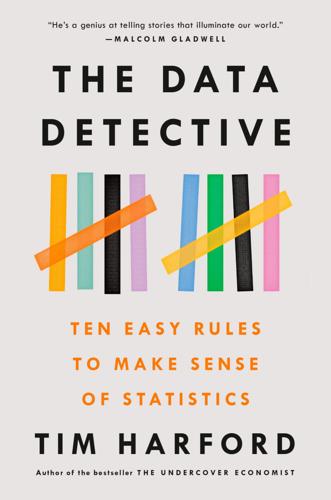
The Data Detective: Ten Easy Rules to Make Sense of Statistics
by
Tim Harford
Published 2 Feb 2021
Irving Fisher was rich, and not just because of his wife’s inheritance. Making money was a matter of pride for Fisher; he didn’t want to be dependent on his wife. There were the book royalties from How to Live. There were his inventions, most notably a way of organizing business cards that was the forerunner of the Rolodex. He sold that invention, Index Visible, to a stationery company for $660,000 in cash—many millions of dollars in today’s terms—a seat on its board, and a bundle of stocks. Fisher turned his academic research into a major business operation called the Index Number Institute. It sold data, forecasts, and analysis as a syndicated package, Irving Fisher’s Business Page, to newspapers across the United States.
…
He publicly declared that recovery was imminent. It was not. Most important, he didn’t just stay invested in the market. His confidence that he was right made him continue to rely on borrowed money in the hope of bigger gains. One of Fisher’s major investments was in Remington Rand, following his sale of his Rolodex system, Index Visible. The share price tells the story: $58 before the crash, $28 within a few months. Fisher might have learned by then that leverage was terribly risky. But no: he borrowed more money to invest—and the share price soon dropped to $1. That is a sure route to ruin. We shouldn’t be too quick to judge Fisher.

All That Glitters: A Story of Friendship, Fraud, and Fine Art
by
Orlando Whitfield
Published 5 Aug 2024
Even then, with the thrill of the few small deals I & O Fine Art had brokered still raising the hairs on my neck, I had no sense of the scale that it was possible to achieve in the art market. I knew names like Larry Gagosian and Sadie Coles, Marian Goodman and Jay Jopling, but had no real idea of the money and power they commanded. (I was yet to learn about people like Ivor Braka or Dominique Lévy, discreet secondary market dealers whose deep pockets were matched only by their Rolodexes and good taste.) Inigo, however, knew all about these people. He knew their galleries and their programmes, he knew who bought from them and sold through them. Inigo was studying them for one reason: he wanted to be one of them. This, he knew, was a world where enormous fortunes could be made and you could have fun doing it.
…
He walked away with my phone, away from the long lines for security and turned a corner into a darker, cooler part of the terminal. Surely I was only minutes away from being put in one of those small, fluorescent-white rooms I’d seen in films. I mentally worded my confession, leafed through an imaginary Rolodex of one-phone-call people. But I needn’t have worried. The man was merely directing me to the fast track line I was unaware I was entitled to use. With a deferential nod he handed me back my phone and moments later I had slithered through security. It was before 9 a.m. on a Monday morning, but what I really wanted next was a drink.
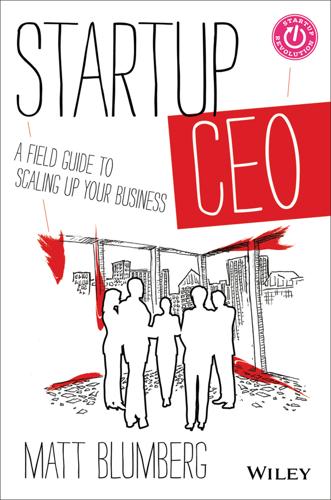
Startup CEO: A Field Guide to Scaling Up Your Business, + Website
by
Matt Blumberg
Published 13 Aug 2013
At one of the places I worked earlier in my career, another technology company, the new head of marketing, with impeccable experience at Fortune 500 companies, showed up for his first day of work and asked everyone where the typing pool was. That was the first sign of trouble. You might be tempted to break this rule for salespeople. Don’t. A Rolodex doesn’t matter if salespeople aren’t willing to sell a vision on whiteboard—rather than relying on PDF marketing documents produced to support a beta-tested release. Check references carefully: Don’t get suckered in by resumes. Plenty of successful big-company people don’t actually know how to build a business—or really do any work.
…
Having worked with Matt and the board as the company grew from 20 people to over 400 people today has been a powerful experience and has informed much of my thinking about how an effective board works. I expect that if you read Startup Boards: Reinventing the Board of Directors to Better Support the Entrepreneur, you will see many of Matt’s thoughts here reflected there. Many CEOs view their board simply as their boss or as a Rolodex or as a necessary evil they have to deal with on a monthly basis. Oftentimes, venture capitalist (VC)-backed company boards consist only of founders and their investors. They end up being reporting boards, where the CEO simply updates the board on a periodic basis about the company’s performance.
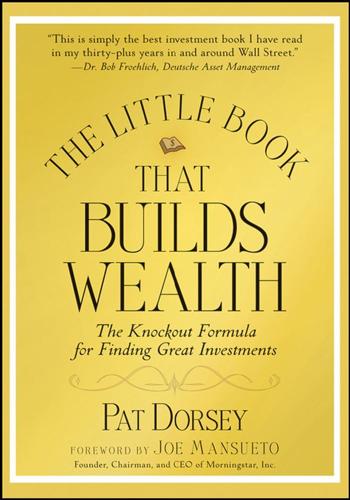
The Little Book That Builds Wealth: The Knockout Formula for Finding Great Investments
by
Pat Dorsey
Published 1 Mar 2008
Chapter Five The Network Effect So Powerful, It Gets a Chapter to Itself. I’VE ALWAYS BEEN amazed by those people who seem to have met everyone in creation. You probably know someone like this yourself—think of that friend who effortlessly schmoozes everyone he or she meets and winds up with a Rolodex the size of a bowling ball. These people create huge networks of contacts that make them desirable acquaintances, because the more people they know, the more people they can connect for mutual benefit. Their social value increases as the number of people in their network grows. Businesses that benefit from the network effect are very similar; that is, the value of their product or service increases with the number of users.

Gusher of Lies: The Dangerous Delusions of Energy Independence
by
Robert Bryce
Published 16 Mar 2011
He facilitated my 2006 visit to Saudi Arabia and the United Arab Emirates— a trip that helped me begin to understand the Arab world and the ongoing trend of globalization within the energy sector. He has also been a wonderful sounding board and friend. Thanks to Abdulwahab al-Faiz, the editor of Al Eqtisadiah, the Saudi business newspaper, for his encouragement and his desire to have my opinions published in Arabic. Mike Ameen offered a wealth of historical insights, encouragement, and a Rolodex that includes contacts around the world. (Better still, he never lets me pick up the restaurant bill.) Thanks also to my pal Robert Elder, Jr., a terrific reporter who offered numerous insights and many helpful suggestions on the various drafts of this manuscript. Spe- Author’s Note xiii cial thanks to my favorite father-in-law and favorite chemist, Paul G.
…
Doing so “will enable us to continue to engage honestly with the most progressive Arabs and Muslims on a reform agenda.”31 Friedman’s wall ignores the reality of the integrated global energy market—a market in which even the Saudis and Iranians are energy importers. Further, Friedman, a jet-setting journalist who prides himself on his worldly travels and Rolodex of famous friends, appears remarkably uninformed about the lousy history of walls. The Berlin Wall stood for almost 30 years as a symbol of the Cold War until it was undermined by the crumbling Soviet economy and a mass movement of freedom-minded Poles and Germans. During the early months of World War II, the Maginot Line was supposed to protect France from Germany.
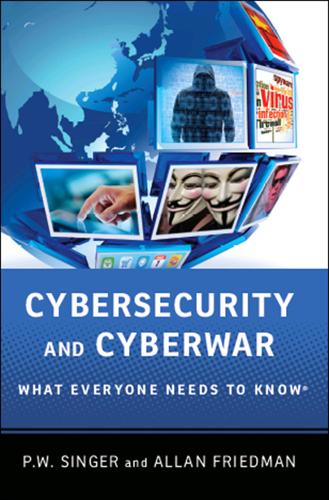
Cybersecurity: What Everyone Needs to Know
by
P. W. Singer
and
Allan Friedman
Published 3 Jan 2014
“You can learn a lot from the enemy by watching them chat online,” said Martin Libicki, a senior policy analyst at the RAND Corporation, a nonprofit research organization. The point is that the advantages of cyberspace for terrorism can be equally useful for counterterrorism. The Web has aided terrorist groups by acting as both a Rolodex and playbook. But those on the other side of the fight have access to the same Rolodex and playbooks. The networking effects of cyberspace, for instance, allow terrorists to link as never before, but they also allow intelligence analysts to map out social networks in unprecedented ways, providing clues about the leadership and structure of terrorist groups that would otherwise be impossible to gain.

The Joy of Clojure
by
Michael Fogus
and
Chris Houser
Published 28 Nov 2010
In this section, we’ll explore how destructuring can be used to pull apart composite structures into bindings through the lens of a simple rolodex example project. Pattern Matching Destructuring is loosely related to pattern matching found in Haskell, KRC, or Scala, but much more limited in scope. For more full-featured pattern matching in Clojure, consider using http://github.com/dcolthorp/matchure, which may in the future be included in contrib as clojure.core.match. 3.3.1. Your assignment, should you choose to accept it You’ve heard that the rolodex project has been overdue, but now every developer assigned to it is out sick. The QA team is ready to go, but one function is still missing and it’s a show-stopper.
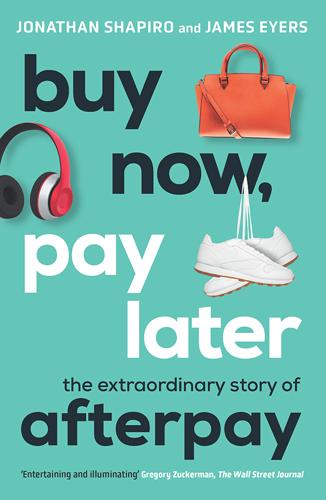
Buy Now, Pay Later: The Extraordinary Story of Afterpay
by
Jonathan Shapiro
and
James Eyers
Published 2 Aug 2021
Traditional lay-by had been aimed at an older, lower-income demographic, people who were terrified of debt and of consuming anything before they’d paid for it. Molnar was targeting younger consumers who needed credit but didn’t want a credit card. Greenberg agreed to join as an adviser. • • • Hugh Robertson had been impressed enough by the Eisen and Molnar combination. He decided he would wheel out his rolodex of private investors and wealthy families to get Afterpay over the line. There was no denying it—the investment was an outright punt, an idea. There were no guarantees it would work. Anyone tipping in funds was backing the man, or repaying a past favour. The fundraising effort, which kicked off in June 2015, needed a pitch deck—a set of well-curated slides that step a potential investor through the investment opportunity.
…
Touchcorp’s effective $10 million stake meant it owned 35 per cent. Eisen and Molnar owned 17.5 per cent each, while the new investors accounted for the remaining 30 per cent. The raising had been a battle. Eisen had drawn on the trust he’d built up over his years at GPG, while Robertson had stretched the limits of his rolodex. Touchcorp issued a statement on 29 June 2015, the last day of the financial year, assuring its investors that Afterpay had raised the minimum amount required to pay the $3 million development fee it owed Touch. It had been a little messy, but Afterpay had been birthed. Once the funding came through in July 2015, Afterpay signed a lease for 30 square metres in a building in Holt Street, Surry Hills, in the same street as Rupert Murdoch’s infamous News Corp headquarters, and just three floors above the Cue fashion group’s stylish new digs.
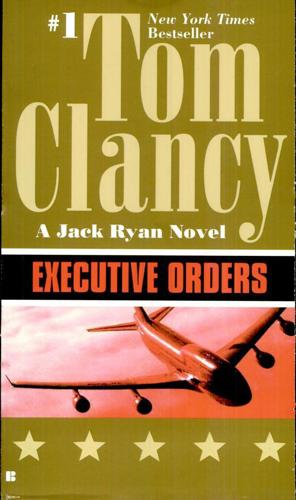
Executive Orders
by
Tom Clancy
Published 2 Jan 1996
Adler was another insider who'd worked his way to the top; as a junior official he'd briefed in too many foreign-affairs correspondents over the years for them to turn on him-and he never lost a chance to extol Ryan's expertise on foreign policy. George Winston, outsider and plutocrat though he was, had initiated a quiet reexamination of his entire department, and Winston had on his Rolodex the number of every financial editor from Berlin to Tokyo, and was seeking out their views and counsel on his internal study. Most surprising of all was Tony Bretano in the Pentagon. A vociferous outsider for the last ten years, he'd promised the defense-reporting community that he'd clean out the temple or die in the attempt, that the Pentagon was wasteful now as they'd always proclaimed, but that he, with the President's approval, was going to do his damnedest to de-corrupt the acquisition process once and for all.
…
From that he would slide in his own commentary, explaining and clarifying what Ryan had really meant with his seemingly sincere seemingly? The word had leaped into his mind of its own accord, startling the reporter. Donner had been in the business for quite a few years, and before his promotion to network anchor, he'd been in Washington. He'd covered them all and knew them all. On his well-stuffed Rolodex was a card with every important name and number in town. Like any good reporter, he was connected. He could lift a phone and get through to anyone, because in Washington the rules for dealing with the media were elegantly simple: either you were a source or a target. If you didn't play ball with the media, they would quickly find an enemy of yours who did.
…
Donner reported on all manner of news from avalanches to warfare, but it was politicians whom he had studied as a profession and a hobby. They were all the same, really. Right place, right time, and they already had the agenda. If he'd learned anything at all, he'd learned that. Donner looked out his window and lifted his phone with one hand while flipping the Rolodex with the other. Ed, this is Tom. Just how good are those sources, and how quickly can I meet them? He couldn't hear the smile on the other end of the line. SOHAILA WAS SITTING up now. Such situations provided a relief that never failed to awe the young doctor. Medicine was the most demanding of the professions, MacGregor believed.

Love All the People: Letters, Lyrics, Routines
by
Bill Hicks
Published 2 Jan 2005
The two predominantly white nations going blowing the shit out of this little brown nation. What a hard sell that must have been for John Major, huh? ‘John, George Bush. How are ya? Good. We have disgruntled masses getting really bored here. How about a little fireworks? Well, let’s go through the Rolodex. No, Noriega – got him. Oh, here’s one – Saddam Hussein. That’ll look good. Let’s go kill some sand niggers, yeah?’ ‘Brilliant, brilliant. We’ll be there. Right, right. We’ll be there. Brilliant. Yes, we’ve already armed them, too. It’s brilliant. We know exactly what we’re up against. It’s brilliant.’
…
Which, by the way, that action you can see Kennedy’s head doin’ in the Zapruder film was caused by a bullet . . . coming from up there. Yeah, I know it looks to the layman or anyone who might dabble in physics that this action here . . . was caused by a ah . . . well, hell, let’s . . . up here. Did you see that? Up here – the right front, or grassy knoll area, I think I’ve heard it referred to. Look back in the Rolodex. Yeah, grassy knoll area. But no, it was caused by a bullet up here. See, what happened was when Oswald’s gun went off in Dealey Plaza, the gun echoed all over the place. Echoes went everywhere, and the echo went by the limo on the left, it went up into the trees and the grassy knoll, and hit some leaves, causing some dust to fly up, which fifty-six witnesses testified was a gunshot, but it wasn’t, even though Kennedy’s head at that very moment went over.
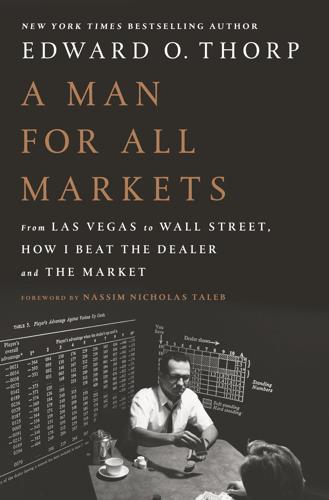
A Man for All Markets
by
Edward O. Thorp
Published 15 Nov 2016
For one deck of fifty-two cards there are about thirty-three million of these partially played decks, leading us to a gigantic library of thirty-three million strategy tables. Facing four hundred million man-years of calculations, with a resulting railroad car full of strategy tables, enough to fill a Rolodex five miles long, I tried to simplify the problem. I predicted that the strategies and player’s edge for partly used decks depended mainly on the fraction—or, equivalently, the percentage—of each type of card remaining rather than on how many there were. This turned out to be true, and it meant, for example, that the effect of 12 Tens when, say, forty cards were left to be played, was about the same as 9 Tens with thirty cards left, and 6 Tens with twenty left, as all three of these decks have the same fraction, 3⁄10, or 30 percent, of Ten-value cards.
…
Chapter 16 * * * …AND FALL In the middle of the day on Thursday, December 17, 1987, about fifty armed men and women burst out of the third-floor elevators to raid our office in Princeton, New Jersey. They were from the IRS, the FBI, and the postal authorities. Our employees were searched before they were free to leave the building. They were not allowed to return. The invaders impounded several hundred boxes of books and records, including Rolodexes. They dug through contents of wastebaskets and crawled through the ceiling spaces. It went on into the early-morning hours of the next day. This was part of a campaign by Rudolph Giuliani, US Attorney for the Southern District of New York, to prosecute real and alleged Wall Street criminals. As a prosecutor later told a defense attorney, Giuliani’s real objective in attacking individuals in our Princeton office was to get information to further his case against Michael Milken at Drexel Burnham and Robert Freeman at Goldman Sachs.
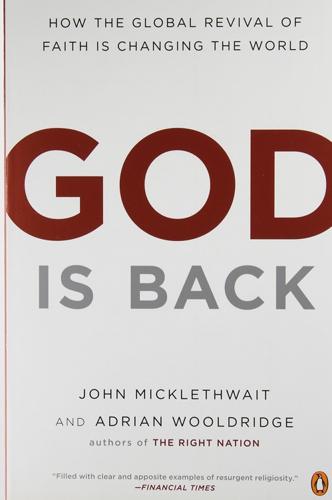
God Is Back: How the Global Revival of Faith Is Changing the World
by
John Micklethwait
and
Adrian Wooldridge
Published 31 Mar 2009
Missionaries also spread American ideas abroad, planting American-style Christianity in such far-flung places as China, Korea and Guatemala, and American-style universities, such as the American University of Beirut, around the world. Many of China’s most prominent universities were founded by missionaries. Missionaries often functioned as encyclopedias of local knowledge and Rolodexes of local contacts, turning them into indispensable guides to both American diplomats, when they moved to a new posting, and American businessmen, when they entered a new market.17 Horace Allen, a Presbyterian medical missionary, became the most influential foreigner in Korea. Samuel Zwemer, known as the “Apostle to Islam,” traveled throughout Arabia in 1890-1905 and was the first American to establish close relations with the al-Saud family.
…
Walter Russell Mead was extremely gracious in including one of us in a wide-ranging seminar on religion at the Council for Foreign Relations. Eugene Rivers was a wonderful guide to Pentecostalism (and a standing rebuke to those who think that faith and intellectualism are incompatible). Ram Cnaan, of the University of Pennsylvania, shared his Rolodex of faith leaders in Philadelphia. Like everybody who writes about religion, we are particularly grateful to the Pew Foundation, whose work is the gold standard in this area and whose staff is unfailingly helpful. We have been fortunate to work with one of the most harmonious teams in publishing.
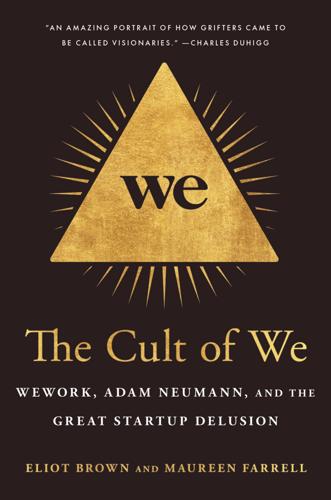
The Cult of We: WeWork, Adam Neumann, and the Great Startup Delusion
by
Eliot Brown
and
Maureen Farrell
Published 19 Jul 2021
He was an idealist: he often talked about how technology would make the world a better place, and saw his own calling as helping entrepreneurs do that more seamlessly. Chase bought Hambrecht & Quist soon after, JPMorgan and Chase merged in 2000, and Wintroub joined the giant bank. He spent the waning years of the dot-com boom and its aftermath offering counsel to CEOs and building out his Rolodex. As Silicon Valley faded from Wall Street’s priority list, he befriended as many tech entrepreneurs as he could, becoming the bank’s contact with founders all over California and around the world. Wintroub’s appeal lay in his blend of techno-optimism and what seemed like a strong moral compass.
…
It also meant that founders could spend more time on pet projects that might seem wasteful to outside investors—Airbnb’s Brian Chesky would later push the company into the film production business; Uber started a flying car division. It was a prolonged adolescence, living under the roofs of abiding VC parents. By mid-2016, however, it seemed that Neumann’s freedom in the private markets was coming to an end. He had largely run through the entire global Rolodex of giant private investors willing to douse startups with cash. And at its current spending and expansion trajectory, WeWork was going to need an enormous amount of money in the future to keep operating. To Neumann and his staff, an IPO seemed the logical next step. The stock markets would be enthusiastic about a fast-growing company like WeWork, they figured.

Unacceptable: Privilege, Deceit & the Making of the College Admissions Scandal
by
Melissa Korn
and
Jennifer Levitz
Published 20 Jul 2020
And his name came up in an NCAA corruption trial accusing assistant basketball coaches of taking bribes and making payments to players and high school prospects in exchange for steering the talented youngsters to particular business managers and financial advisers. He wasn’t charged, but one central witness in the case said Fox wired him $40,000, which then went to an assistant coach, to hand over to a high school prospect. Few seemed to know exactly how Fox earned a living, but no matter his title, Fox’s deep Rolodex came in handy for Singer. Singer met Fox through an old youth camp and junior college coaching friend, Dana Pump, who himself was well-known in basketball circles. Pump and his brother ran tournaments and camps, connecting college coaches and players. Fox hung out at UT Austin a fair bit, knew the basketball coaching staff, and had even coached some tennis players whom Center ended up recruiting.
…
The target letters didn’t mean charges were coming, but they could push parents to plead in hopes of protecting their kids. The U.S. Attorney’s Office in Massachusetts also continued to investigate new leads coming from the defendants who had pleaded guilty and were cooperating, like the Isacksons and Laura Janke. Singer himself had handed over his entire Rolodex, offering names of many more possible violators beyond the thirty-three initially charged. Prosecutors interviewed new witnesses and targets in Los Angeles and elsewhere. Some past Singer clients lawyered up, terrified they would be entangled in the case. Indeed, the government would add three more parents to the pack before the year was out, including San Diego surf company executive Jeffrey Bizzack; Newport Beach, California, mother Karen Littlefair; and Xiaoning Sui, a Chinese mother who was arrested in Spain

Backbone.js Cookbook
by
Vadim Mirgorod
Published 25 Aug 2013
</small> <p><%= body %></p> <a href="#post/delete/<%= id %>" name="delete-post" id="delete-post" data-role="button">Delete Post </a> </script> <script type="text/html" class="template" id="post-list-item"> <div class="ui-btn-inner ui-li"> <div class="ui-btn-text"> <a class="ui-link-inherit" href="#post/details/<%= id %>"> <%= title %> <br><small><%= created %></small> </a> </div> </div> </script> 19. Add views and templates to show other pages. 20. Add styles in index.html to show the Glyphish icons at the bottom of the toolbar. #list-button span.ui-icon-custom { background: url(../lib/glyphish/152-rolodex.png) 0 0 no-repeat; } #add-button span.ui-icon-custom { background: url(../lib/glyphish/187-pencil.png) 0 0 no-repeat; } #settings-button span.ui-icon-custom { background: url(../lib/glyphish/20-gear2.png) 0 0 no-repeat; } 231 Special Techniques 21. Check the order of CSS and JS inclusions in index.html.

The Automatic Customer: Creating a Subscription Business in Any Industry
by
John Warrillow
Published 5 Feb 2015
Polish sells prospective members using reams of what he calls “social proof,” like interviews with happy and successful members describing what they get out of the network and pictures of Polish with entrepreneurs like Richard Branson and Bill Gates. Polish isn’t shy about his value proposition. “This is the group of people you would want access to in your ‘dream rolodex,’” he says. Polish is careful to cultivate an air of exclusivity around his subscription. That exclusivity is what makes this private club model so appealing. As he puts it, “When there is more demand than supply, everyone wants to buy.” Barriers to Entry One of the things that makes the private club model work is the privacy itself.
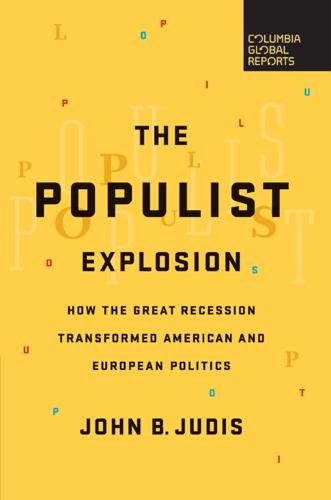
The Populist Explosion: How the Great Recession Transformed American and European Politics
by
John B. Judis
Published 11 Sep 2016
McConnell and Cantor’s sin lay in refusing to go all the way in repudiating even the bare rudiments of the neoliberal consensus between the parties and in failing to block even discussion of immigration reform. Cantor’s sin also lay in being too close to Wall Street and the Business Roundtable. In the primary, Tea Party candidate David Brat said, “All the investment banks in New York and D.C.—those guys should have gone to jail. Instead of going to jail, they went on Eric’s Rolodex, and they are sending him big checks.” This side of the Tea Party, which echoes the original People’s Party, was largely ignored by political scientists and other commentators, even after Trump’s presidential campaign brought it to the surface. The right wing’s success during Obama’s first term was in marked contrast to its relative obscurity during Roosevelt’s first term.
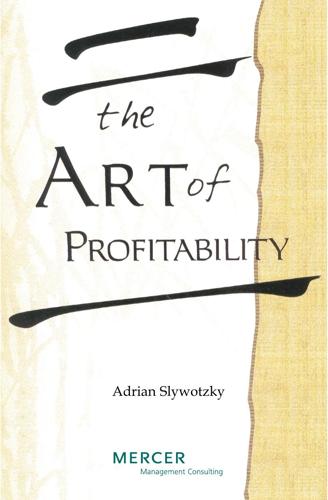
The Art of Profitability
by
Adrian Slywotzky
Published 31 Aug 2002
“What did she do to get the big transactions?” “She paid attention to the potential million-dollar buyers. She asked herself, ‘How do these people want to be treated?’ She didn’t overdo it. She was unobtrusive. But she was always around. She gave them information. She followed their needs. She built her rolodex. She noticed the shoddy treatment plenty of other agents provided, and she offered an alternative. She wasn’t as aggressive as her colleagues, which cost her some sales early on. But it won her many more sales later. Much larger sales.” “How long?” Steve asked. Zhao got the intent of the question.

Elliot Allagash: A Novel
by
Simon Rich
Published 24 May 2010
Some kid named James. “He was relatively easy to abduct, once we knew his identity, and my people managed to extract a full confession without excessive violence. It was an amazing thing to listen to. “The boy’s father sold high-end diamond-and-silver cuff links, and my name and address were listed in his Rolodex. That’s where the boy found all his addresses. You see, I wasn’t the only one receiving postcards! At the start of the football season, the boy had sent out predictions to all twenty thousand of his father’s contacts. He told ten thousand people that their home team would lose and ten thousand people that their home team would win.

Isn't That Rich?: Life Among the 1 Percent
by
Richard Kirshenbaum
and
Michael Gross
Published 9 Jun 2015
Our biggest challenge, time and again, is matching up middle-aged divorcées in the “pre-realist” stage, who have not realized that they have a choice of sex, money, or a warm body—but not all three in the same package. “How did she make out in the divorce?” I asked my friend. “All I know,” she revealed, “is that the husband made her include her Birkins as a part of the settlement.” She added: “At the current retail price.” Bien sûr! “She most likely will want the money, then.” I paused, Rolodexing in my head the range of the newly wed and nearly dead. As I gave the hand signal for the check, I thought of a few years’ divorced friend who could use a chatelaine for his manor, and Leanne was an ideal prospect. “Oh yes, I think I have a good old-fashioned septuagenarian billionaire in Palm Beach for her.
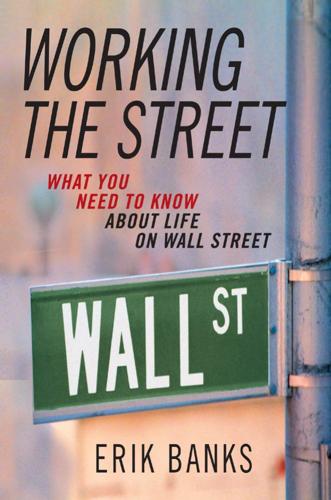
Working the Street: What You Need to Know About Life on Wall Street
by
Erik Banks
Published 7 Feb 2004
They don’t care much for each other, but, like their trading brethren, they need each other, so they try and tolerate each other’s differences. Bankers come in a few different flavors: relationship managers, corporate finance generalists, and industry/deal specialists. The relationship bankers are the big-big-big-picture folks who have very contact-rich Rolodexes/Palm Pilots and know how to charm and impress their clients. They can wax eloquent for hours about a lot of general business and The Right Match: Finding Your Ideal Job | 51 banking topics, but can’t talk for more than a minute about the nuts and bolts of a complicated banking product or deal.
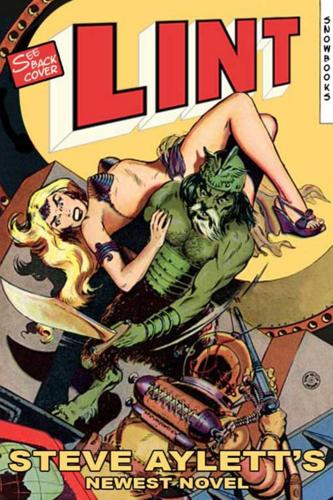
Lint
by
Steve Aylett
Published 2 May 2005
Warped by several New Mexico snows, some now resembled effigies of Jeb Bush. Lint had dug in the garden to a depth of seven yards. Turning to the front window, I was startled to see the world outside inverted, sky below and earth above—the glass pane was a slightly concave lens. Then Lint filled the room like a buffalo, with a haircut like a Rolodex and a graying beard like a surf explosion. Skin gray as a mushroom. Old people can be scary because you can never tell how much they know. Even a moron who’s never garnered a single notion from a lifetime’s observations can look at you in a sagging, sad way and appear the wisest or most condemnatory sage on the planet.

Sleepwalk With Me: And Other Painfully True Stories
by
Mike Birbiglia
Published 11 Oct 2010
We saw everything in Washington DC on that trip: Washington Monument, Jefferson Memorial, Vietnam Memorial, several Roy Rogers. The trip gave me a taste of a world outside of Shrewsbury. • • • When I finished college, I asked my mom for her car. I had met with a comedy booker named Carl Hasselback. Carl’s office smelled like pot and he had a Rolodex of the worst gigs in America. If you’ve ever driven by a motor lodge that inexplicably has the words “Comedy Night” illuminated on a sign out front, Carl probably booked it. I could call Carl more often than other bookers because he was usually so high that he wouldn’t remember that I had called him five minutes before.
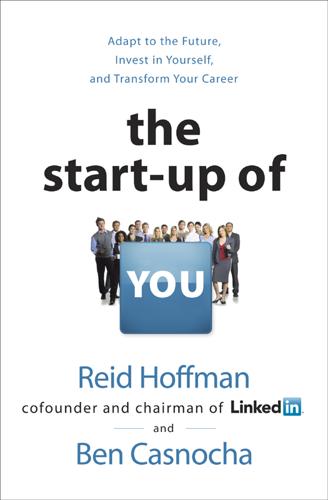
The Start-Up of You: Adapt to the Future, Invest in Yourself, and Transform Your Career
by
Reid Hoffman
and
Ben Casnocha
Published 14 Feb 2012
A search engine can’t introduce you to the networks that dish breakout opportunities. But, your network can. You have had a network full of intelligence for as long as you’ve had friends. But until very recently, tapping this intelligence required time-intensive tasks like maintaining an up-to-date Rolodex, sending written letters, and arranging in-person meetings. Networks and networking were always associated with job hunting because it was so costly in time and effort to deploy your network that you’d only do it for really important things—like finding a job. But now it’s easy and inexpensive to access the information bouncing around the brains of our connections.

An Abbreviated Life: A Memoir
by
Ariel Leve
Published 17 Nov 2015
The groceries would be delivered, she would be at ease, her spirits would lift, and her guests at the dinner party would have lamb chops. I could relax and go to school. ONE DAY I return home from school to a catastrophe. “Josie,” my mother is crying, “has ruined my life.” She is standing in the kitchen, rotating the spindle on her Rolodex, desperately searching for a card. Josie couldn’t stand that my mother wrote phone numbers down on the wall. So she took it upon herself to use bleach to make her point. She scrubbed away all of the numbers written in ink and erased the ones written in pencil. My mother’s contacts were gone. Forever.
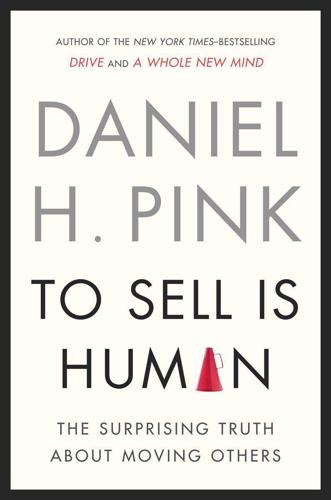
To Sell Is Human: The Surprising Truth About Moving Others
by
Daniel H. Pink
Published 1 Dec 2012
But the effectiveness of this advice is waning because the conditions on which it depends are fading. When only some of us are in sales—and when buyers face minimal choices and information asymmetry—“Always be closing” is sensible counsel. But when all of us are in sales, and none of us has much of an information edge, Blake’s prescription seems as dated as the electric typewriters and Rolodex cards that dot Mitch and Murray’s office. Remapped conditions require revamped navigation. So here in Part Two, I introduce the new ABCs of moving others: A—Attunement B—Buoyancy C—Clarity Attunement, buoyancy, and clarity: These three qualities, which emerge from a rich trove of social science research, are the new requirements for effectively moving people on the remade landscape of the twenty-first century.
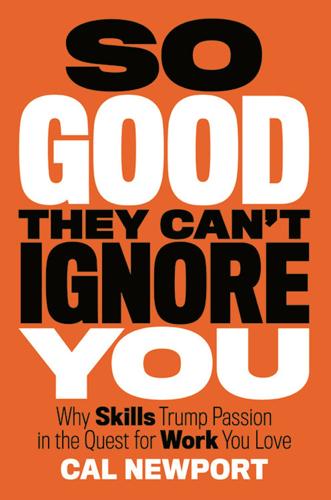
So Good They Can't Ignore You: Why Skills Trump Passion in the Quest for Work You Love
by
Cal Newport
Published 17 Sep 2012
And these are just a few examples among many. The more time you spend reading the research literature, the more it becomes clear: Giving people more control over what they do and how they do it increases their happiness, engagement, and sense of fulfillment. It’s no wonder, then, that when you flip through your mental Rolodex of dream jobs, control is often at the core of their appeal. Throughout Rule #3, for example, you’ll meet people in a variety of different fields who wielded control to create a working life they love. Among them is a freelance computer programmer who skips work to enjoy sunny days, a medical resident who took a two-year leave from his elite residency program to start a company, and a famous entrepreneur who gave away his millions and sold his possessions to embrace an unencumbered, globe-trotting existence.

Long Game: How Long-Term Thinker Shorthb
by
Dorie Clark
Published 14 Oct 2021
Because getting started is often the hard part, once you’re flossing that one tooth, it becomes far easier to keep going and floss them all. Similarly, he suggests getting in the habit of paying one bill or tidying one item on your desk. For any activity where you feel nervous or averse, find one small way to begin. You don’t have to reconnect with your entire Rolodex; just email one long-lost friend. You don’t have to sit down and write an entire novel; just hammer out one paragraph. The key is getting started. Over the course of this book, we’ve talked about the foundational skills necessary to become a long-term thinker: a willingness to say no, because you’ll never achieve your own agenda if you don’t have room to set one in the first place; a willingness to “fail,” understanding that what most people call failure is simply useful data you’re gathering; and a willingness to trust in the process long enough to see results.
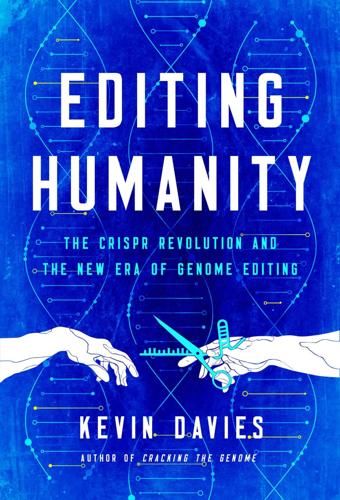
Editing Humanity: The CRISPR Revolution and the New Era of Genome Editing
by
Kevin Davies
Published 5 Oct 2020
No one could have predicted that, one year later, Kahn’s hypothetical warnings would come kicking and screaming to life. * * * Six months later, in April 2018, the CRISPR road show landed in a most unlikely location—the Vatican. The “Unite to Cure” conference is the brainchild of Robin Smith, president of the Cura Foundation, in conjunction with the Pontifical Council for Culture. Smith’s rolodex is ridiculous: among the guests were TV personalities Dr. Mehmet Oz and CNN’s Sanjay Gupta, with cameo appearances from A-list celebrities including Katy Perry (the power of meditation) and Jack Nicklaus (stem cells). At times, the meeting felt uncomfortably like a late-night infomercial. Billionaire Ed Bosarge bought a clinic in the Bahamas and was receiving experimental injections that would cross the blood-brain barrier to combat memory loss and aging.
…
Others were skeptical: “The company is just dodging GenoCare’s faults as a sequencer by picking clinical targets where its flaws are irrelevant,” Bio-IT World concluded.22 Later that year Quake called Lombardi, who had moved to Connecticut and launched a consulting business after Helicos folded, to see if the former CEO would like to serve as JK’s business mentor. For the next two years, Lombardi helped JK manage the financial and strategic aspects of growing his company. He introduced him to some leading Wall Street analysts covering genomics. “He bought my rolodex,” Lombardi told me.23 In July 2017, JK proudly posed for photographers next to the prototype GenoCare at the instrument’s official debut in Shenzhen. The launch of the world’s first “third-generation sequencer” featured congratulatory speeches by various government dignitaries and senior Chinese scientists.

The Gods of New York: Egotists, Idealists, Opportunists, and the Birth of the Modern City: 1986-1990
by
Jonathan Mahler
Published 11 Aug 2025
The only child of a Bronx cabdriver, Friedman was a camera-ready emblem of big-city corruption, right down to his Mephisto goatee, tailored suits, and chauffeur-driven Cadillac—paid for by the Bronx Democratic Party, of which he was chairman. A one-time deputy mayor under Koch’s predecessor, Abraham Beame, Friedman now spent his days leveraging his thick Rolodex for personal financial gain. He was the man to see when you wanted something from the city, be it a zoning exemption, a tax break, a municipal contract, or a coveted slip for your yacht at one of the city’s piers. The sign hanging in his office left little to the imagination: Crime Doesn’t Pay—As Well as Politics.
…
Giuliani was characteristically aggressive in his approach to the case. Against the advice of some of his own prosecutors, he’d persuaded Sukhreet to flip against her mother. Sukhreet—SUKHY, to the tabs—enthusiastically embraced her role as secret government informant. She stole financial papers and a Rolodex from her mother’s apartment, and even wore a wire in an attempt to incriminate her. Giuliani ultimately charged all three—Myerson, Capasso, and Judge Gabel—with bribery and mail fraud. He did not skimp on the details, filling the indictment with stories of Capasso showering Myerson with fur coats and jewelry, and of the two of them frolicking at Capasso’s estate in the Hamptons.
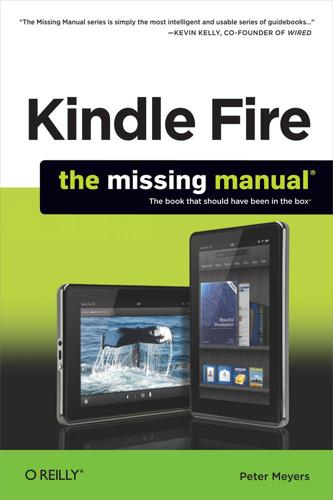
Kindle Fire: The Missing Manual
by
Peter Meyers
Published 9 Feb 2012
Pick from a list of about 20 options (Caffeinated Rattlesnake, Moonbeam) to let you know when new mail arrives. If none of this sounds appealing, go for Silent. Filling Up the Contacts App Earlier in this chapter you learned how to quickly download an online contacts collection (Manually Adding Account Information). But what if you don’t store your Rolodex on the Web? Maybe you keep it in one of those old-fashioned computer-based programs like Outlook or the Mac’s Address Book. Getting that info onto your Fire is crucial. Tapping out addresses, character by character, each time you send an email can get old, quickly. The Fire offers two options, both of which start by launching the Contacts app (find it in the Device section of the Apps Library).
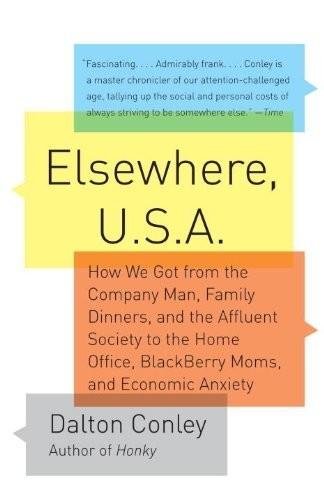
Elsewhere, U.S.A: How We Got From the Company Man, Family Dinners, and the Affluent Society to the Home Office, BlackBerry Moms,and Economic Anxiety
by
Dalton Conley
Published 27 Dec 2008
Behavioral messages that work the best are those that come from folks we know deeply and whose relationship to us is reinforced through many indirect ties.5 Hence the concept of the intervention, where all that strong social capital is brought to bear on a deviant individual (alcoholic, drug addict, compulsive shoplifter) in one hard blow. But an economy that favors movement and motion, one that needs weak ties to reach faraway markets in distant lands, a service economy where our customers, clients, and colleagues (not to mention investors) are drawn from the electronic Rolodex— this is an economy that favors the weak tie over the strong one. So we go from tribes, where we have little control over whom we interact with and where our identity stems from ascriptive affiliations that are matters of luck, to modern mobile families, where individuals are born through the unique intersections of their chosen (achieved) group affiliations, to globalized, amorphous clouds of network nodes (ungroups) on Facebook, where how we know someone is trivial compared to the fact that we do know them.
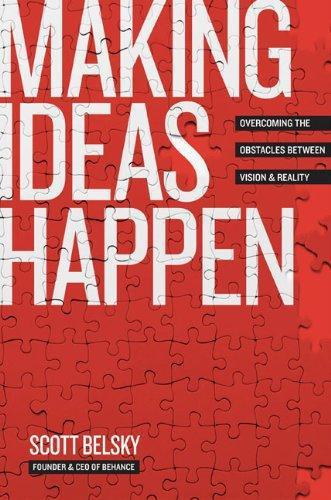
Making Ideas Happen: Overcoming the Obstacles Between Vision and Reality
by
Scott Belsky
Published 31 Mar 2010
By embracing competition, you stay at the top of your game. Commit Yourself in Order to Commit Others When you launch a new project, you want everyone you know to help get the word out. You will want introductions to potential clients and customers. Ultimately, you will want your community to mine their Rolodexes and resources to help your idea gain traction. But a problem emerges if you have not yet demonstrated your full commitment to the idea you are broadcasting. An example that comes to mind is Rebecca (not her real name), an aspiring jewelry designer in New York City who came to me for advice on launching her new venture.
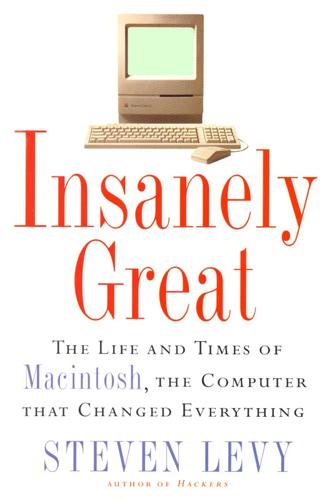
Insanely Great: The Life and Times of Macintosh, the Computer That Changed Everything
by
Steven Levy
Published 2 Feb 1994
Ten years later, I am boarding a Metroliner at New York City for quick overnight to Washington, D.C. In my left hand is a seven-pound gray box several times more powerful, but a thousand dollars less expensive, than the object I viewed in wonder that day in November. It is a PowerBook, the latest of my four Macintosh computers. It is my typewriter, my communications center, my Rolodex, my Filofax, my alarm clock, my fax machine, my notebook, my database, my calculator, my file cabinet, and my opponent in chess and the slaughter of space aliens. It runs on a battery as big as a pack of baseball cards, though I'm just as happy plugging it into a wall socket. As the train pulls out of the station, I slip the Power Book out of its case and press the space bar on its keyboard.

Bird by Bird: Some Instructions on Writing and Life
by
Anne Lamott
Published 1 Jan 1994
Many, if not most, of these people have ended up with functioning groups that bring them a great deal of pleasure and support. My New Age friends claim that they’ve started groups by just "putting it out to the universe." Now, I love this sort of talk; I always picture the universe hearing the call, and flipping breathlessly through its little Rolodex, because these friends have all ended up in flourishing writing groups. So who’s to say? There are four people, three women and one man, who met in one of my classes and who have now been meeting as a group for four years. I see them together in bookstores or cafés, where they sit at tables with wine or coffee and go over each other’s work, offer criticism and encouragement, ask questions, and figure out where to go next.

The Professor and the Madman: A Tale of Murder, Insanity and the Making of the Oxford English Dictionary
by
Simon Winchester
Published 27 Sep 1998
With his rapidly growing collection of word lists and his indexes, he stood ready now to help the dictionary project as it needed to be helped, by sending over quotations at the precise time the editors needed them. He could keep up; he could be abreast of the progress of the dictionary all the while, because he had ready access to the words that were needed, when they were wanted. He had made a key, a Victorian word-Rolodex, a dictionary within a dictionary, and it was instantly available. The quires of lists on his plain wooden table represented an accumulated creation of which he was quite rightly and jealously proud. His practice was first to write to the dictionary and ask what letter or what word was being worked on.
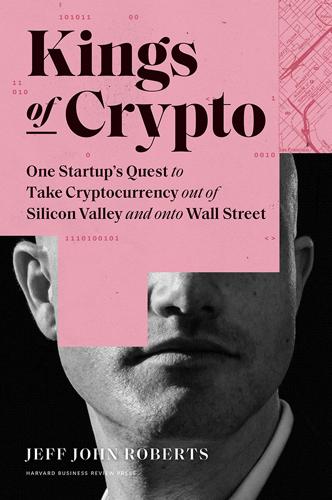
Kings of Crypto: One Startup's Quest to Take Cryptocurrency Out of Silicon Valley and Onto Wall Street
by
Jeff John Roberts
Published 15 Dec 2020
The divorce with Ben came at the prodding of a senior executive at Y Combinator, and Brian believes it was necessary. But at the time, it was also a major problem. As a result of his last-minute breakup with Ben, Brian became the rare entrepreneur to go through Y Combinator as a single founder. In doing so, he had reaped the accelerator’s coaching experience and could tap into its fantastic Rolodex of mentors and investors. But he had no one to cheer him up or encourage him when things got hard. And they were about to get very hard. While Y Combinator offered prestige and publicity because of the small number of companies it accepted into its fold, acceptance was not the same as success. The reality was, after the program’s much-hyped Demo Day, over 80 percent of the startups quietly ran out of money and turned to dust.
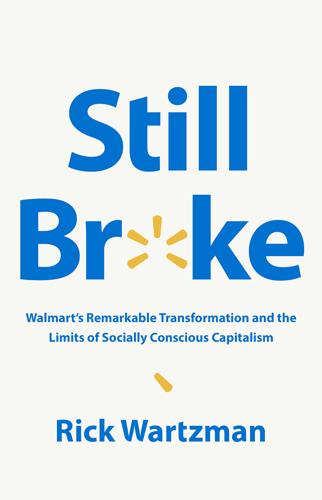
Still Broke: Walmart's Remarkable Transformation and the Limits of Socially Conscious Capitalism
by
Rick Wartzman
Published 15 Nov 2022
“In orientation, we learned that the store’s success depends entirely on us, the associates; in fact, our bright blue vests bear the statement ‘At Walmart our people make the difference,’” Barbara Ehrenreich wrote in Nickel and Dimed, her renowned 2001 account of working a string of low-paying jobs, including in the apparel department of a Minneapolis Walmart for $7 an hour—a wage so measly she couldn’t afford housing. “Underneath those vests, though, there are real-life charity cases, maybe even shelter dwellers,” Ehrenreich added. Jon Lehman, who managed several Walmarts in Kentucky, used to keep a Rolodex on his desk with the phone numbers of nearby social service agencies at the ready. “I would call in the event that an associate came into my office and said, ‘I can’t afford to take my child to the doctor,’ ‘I can’t afford groceries,’ or ‘I’m getting kicked out of my house,’” he said. “Many times, I would take the worker down to the United Way in my truck.

Valley of Genius: The Uncensored History of Silicon Valley (As Told by the Hackers, Founders, and Freaks Who Made It Boom)
by
Adam Fisher
Published 9 Jul 2018
Stewart Brand: And I also knew Larry Brilliant by reputation: what he had done suppressing smallpox in India, and eliminating it, eventually. Ram Dass: It was very exciting stuff: You’ve got maps with pins of each case and you go with vaccination needles in jeeps and boats and you raid villages. It’s like a war! Larry Brilliant: By then my Rolodex was pretty weird—Ram Dass and Wavy Gravy and the head of the smallpox program, UN diplomats, a bunch of rabbis and Catholic priests with eclectic backgrounds… And Steve Jobs. Ram Dass: When it was over they all got depressed. They didn’t know what to do next. Larry Brilliant: So Steve comes back from India, he starts Apple with Woz.
…
He’s still at it: leading crusades to use the tools of synthetic biology to resurrect extinct species, and the tools of engineering to erect a massive, subterranean monument to time that will ticktock for ten thousand years. Larry Brilliant is best known for his role in hunting the smallpox virus to extinction, but his true genius may be his gift for human connection. He amassed a pretty weird Rolodex in the course of saving the world: Ram Dass, Steve Jobs, Stewart Brand, Wavy Gravy, not to mention various high government officials. And they stuck with him through all his later incarnations: hippie professor, high-tech entrepreneur, and finally advisor and confidant to Silicon Valley’s most powerful.

Rainbow Six
by
Tom Clancy
Published 2 Jan 1998
How long will I be on this time?" "Probably four minutes or so." "Okay, I'll be down there in about an hour." "Thank you, sir. The guard will be told to expect you." "Okay, see you in an hour." The kid must be new, Henriksen thought, not to know that he was a regular commentator - why else would his name have been in the Fox rolodex? - and that the security guards all knew him by sight. A quick cup of coffee and a bagel got him out the door, into his Porsche 911, and across the George Washington Bridge to Manhattan. Dr. Carol Brightling awoke, patted Jiggs on the top of his head, and stepped into the shower. Ten minutes later, a towel wrapped around her head, she opened the door and got the morning papers.
…
"Today if possible, Ed. We really need this. I was remiss in not considering the need earlier. Seriously remiss." Clark added humbly. "It happens," DCI Foley observed. "Okay, let me make some calls and get back to you." He broke the connection and thought for a few seconds, then flipped through his rolodex, and found the number of CINC-SNAKE, as the post was laughingly called. Commander in Chief, Special Operations Command at MacDill Air Force Base outside Tampa, Florida, was the boss of all the "snake eaters," the special-operations people from whom Rainbow had drawn its American personnel. General Sam Wilson was the man behind the desk, not a place he was especially comfortable.
…
Okay, he'd confirm it from written records on the Bern and Vienna incidents. His staff covered all counterterror operations as a normal part of doing business and he could call contacts in Switzerland and Austria to find out a few things. That ought not to be hard. He checked his watch. Better to call right away, since they were six hours ahead. He flipped through his rolodex and placed a call on his private line. Black project, eh? he asked himself. He'd see about that. The cabinet meeting ended early. The President's congressional agenda was moving along nicely, which made things easy for everyone. They'd taken just two votes-actually, mere polls of the cabinet members, since the President had the only real vote, as he'd made clear a few times, Carol reminded herself.
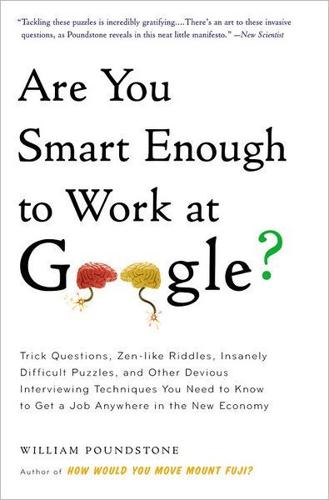
Are You Smart Enough to Work at Google?: Trick Questions, Zen-Like Riddles, Insanely Difficult Puzzles, and Other Devious Interviewing Techniques You ... Know to Get a Job Anywhere in the New Economy
by
William Poundstone
Published 4 Jan 2012
Explain what a database is to your eight-year-old nephew, using three sentences. (Test of divergent thinking.) A database makes it convenient to find information (not just store it, which is easy in comparison). The trick is to think of creative analogies relevant to an eight-year-old. You probably start by brainstorming: “A database is like… a Rolodex (does anyone under fifty have one?)… a magic wizard of information (too patronizing?)… an iPod… a TiVo….” Pick the best analogy and work it into a three-sentence answer: A database is an iPod for information. With an iPod, you can store thousands of songs and still find any track you want quickly.
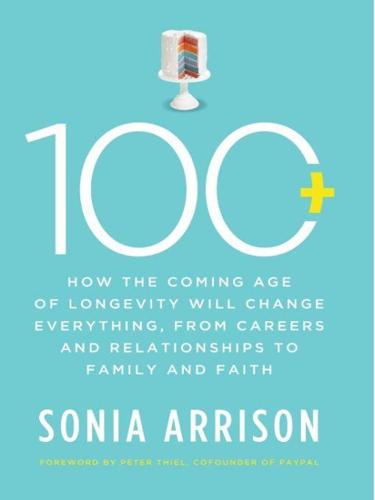
100 Plus: How the Coming Age of Longevity Will Change Everything, From Careers and Relationships to Family And
by
Sonia Arrison
Published 22 Aug 2011
Life expectancy has grown linearly at an average rate of 3 months per year (2.5 years per decade) for women and 2.5 months per year (2 years per decade) for men and, as argued in Chapter 2, is about to grow much more.26 When that happens, and health span is extended, it will be possible to have 130-year-olds and over at the helm of companies. What advantages will come with greater numbers of healthy, older workers? Aside from historical knowledge and large rolodexes, older workers tend to be more patient. In 2006 researchers from Harvard showed that patience increases across the life span.27 They showed that with age people tend to stop discounting the future and learn to become more future oriented (until, of course, they reach the point where they think they have no future left).

Animals
by
Emma Jane Unsworth
Published 2 May 2014
Mrs Coan didn’t smile as she acknowledged my raised hand. A slightly exasperated tone in her voice. ‘Yes, Laura.’ ‘Did he die?’ ‘No, but I can see where you’re coming from.’ I got the next one in fast. ‘Did he get famous?’ Mrs Coan ignored me and looked expectantly at the rest of the class. I kept my hand up, Rolodexing options and collating them into a list of descending likelihood. Meanwhile Rachel Atherton lifted a slender, tanned arm. She was the girl I always vied with for top of English. We wound up sharing the sixth-form English prize – the first time in the school’s history there had been joint winners.

The Snowden Files: The Inside Story of the World's Most Wanted Man
by
Luke Harding
Published 7 Feb 2014
Merkel, it transpired, wasn’t the only foreign luminary whose phone the NSA had hacked. An NSA memo from 2006, published by the Guardian, showed it was bugging at least 35 world leaders. The agency had appealed to other ‘customer’ departments such as the White House, State and the Pentagon to share their ‘Rolodexes’ so it could add the phone numbers of leading foreign politicians to the NSA’s surveillance system. One eager official came up with 200 numbers, including the 35 world leaders. The NSA immediately ‘tasked’ them for monitoring. The NSA subsequently targeted other leaders as well, including the president of Brazil, Dilma Rousseff, and her Mexican counterpart Enrique Peña Nieto.

Big Three in Economics: Adam Smith, Karl Marx, and John Maynard Keynes
by
Mark Skousen
Published 22 Dec 2006
Fisher's entire career, both professional and personal, was devoted to the issue of money and credit. He invented the famed Quantity Theory of Money, and created the first price indexes. He became a crusader for many causes, from healthy living to price stability. He wrote over thirty books. He was a wealthy inventor (of today's Rolodex, or card catalog system) who became the Oracle on Wall Street, but was destroyed financially by the 1929-33 stock market crash. Fisher's failure as a monetarist to anticipate the greatest economic collapse in the twentieth century must lie squarely with his incomplete monetary model of the economy, and it was this defective model that led directly to the development of Keynesian economics, the subject of our next chapter.

The 80/20 Principle: The Secret of Achieving More With Less
by
Richard Koch
Published 15 Dec 1999
Above all, the allies must trust you and you must be able to trust them. Make a list of your Top 20 business relationships, of people that you consider to be important allies, and compare it with an estimation of the total number of contacts with whom you would be on first-name terms—if you have a Rolodex, a Filofax, or a telephone list, this is the total number of active contacts on that list. Eighty percent of the value to you of alliances is likely to be comprised in 20 percent of the relationships. If this is not the case, the alliances (or some of them) are likely to be of poor quality. ACHIEVEMENT ALLIANCES If you are well into your career, make a list of the people who have helped you the most to date.

With Liberty and Justice for Some: How the Law Is Used to Destroy Equality and Protect the Powerful
by
Glenn Greenwald
Published 11 Nov 2011
(Goldman’s choice to replace Patterson as its chief lobbyist was Michael Paese, the top staffer to Democratic representative Barney Frank. Paese had spent years helping Frank carry out his duties as chairman of the House Financial Services Committee, the committee responsible for oversight of Wall Street. Now, he would put his Washington Rolodex and his substantial influence in the halls of Congress at the service of Goldman’s legislative agenda.) At roughly the same time, Reuters announced: President Barack Obama’s nominee to oversee U.S. futures markets, who has confessed he should have done more [when serving as a financial official under Clinton] to rein in exotic financial instruments that have battered global markets, was approved by the Senate Agriculture Committee on Monday.
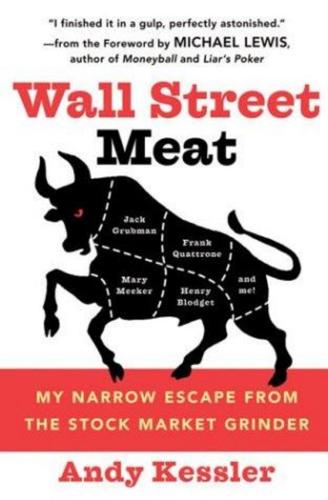
Wall Street Meat
by
Andy Kessler
Published 17 Mar 2003
They came to New York for a big presentation, and I joined management at a dinner at Ben Benson’s (charge it to the deal). It was strange to start and end my traditional Wall Street career at the same restaurant. The CEO of Avid asked me why I was carrying two big bags with me. “I often take my work home,” I answered. In reality, I had all of my computer files and Rolodexes jammed into the bags. I was resigning the next day. What a day it was. No sooner had I submitted my onesentence resignation, than Frank Quattrone called to tell me Morgan Stanley had just received the mandate to lead a huge warrants deal for Intel. “Congratulations,” Frank said, “your research is really paying off.”

We Are Bellingcat: Global Crime, Online Sleuths, and the Bold Future of News
by
Eliot Higgins
Published 2 Mar 2021
Ultimately, his piece was an embarrassing muddle. Today, when journalists cover hard-to-access conflict zones, they are negligent if they overlook the mountains of online evidence. Traditional reporting is still irreplaceable, but it is incomplete. No longer can journalists simply rummage through the Rolodex and phone for the opinions of a retired CIA analyst. Nor do they need to transform into OSINT specialists. Hersh needed only to read my blog. HOW FAR CAN WE TAKE THIS? My work on the Ghouta attacks attracted more attention than anything I had published at the time. The New Yorker profiled me under the headline ‘Rocket Man’.115 The Google Ideas summit in New York invited me to lecture, seated onstage in the prop of a brown-leather club chair, making the point that I was ‘the armchair detective’.116 Christiane Amanpour of CNN interviewed me.

Asymmetry
by
Lisa Halliday
Published 6 Feb 2018
The teakettle was a sleek, all-metal, Scandinavian design. The toilet seat she screwed on with tremendous satisfaction while listening to Jonathan Schwartz. Her work seemed to her more boring and inconsequential than ever. Fax this, file this, copy this. One evening, when everyone else had left and she was staring at the writer’s number in her boss’s Rolodex, one of her colleagues poked his head into the room and said, “Hey, Alice, à demain.” “Sorry?” “À demain.” Alice shook her head. “See you tomorrow?” “Oh. Right.” It got hotter before it got cooler. Three weekends in a row she spent lying on her bed, bedroom door closed, the Frigidaire whirring and rattling away at its highest setting.
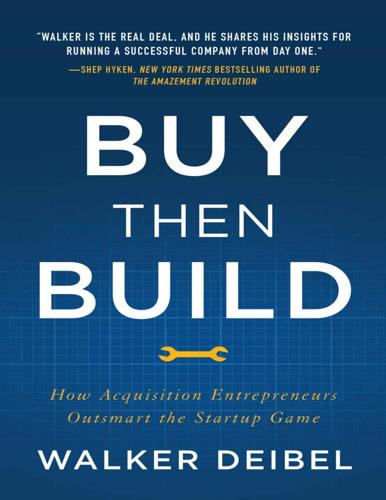
Buy Then Build: How Acquisition Entrepreneurs Outsmart the Startup Game
by
Walker Deibel
Published 19 Oct 2018
That’s not nothing, but not closing a deal is nothing—they get nothing. So, they’d rather transact a deal at the wrong price than not at all. If you are a new broker, the first thing you set out to do is to go out and get 47 listings. If you have listings, then some percentage of them will transact, even if you don’t have a rolodex of buyers yourself yet. The broker simply needs to circulate their listings to other brokers and potential buyers. The listing will get circulated to the other intermediaries at the firm and other firms to see if they can generate immediate interest. Typically, this takes the form of an email blast to their private, vetted email signups.
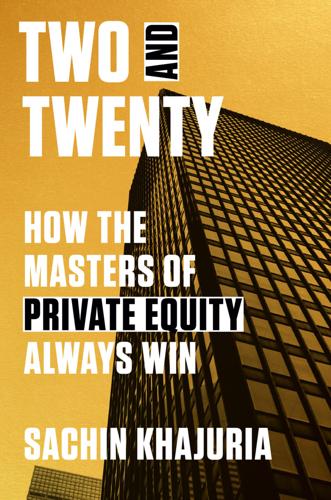
Two and Twenty: How the Masters of Private Equity Always Win
by
Sachin Khajuria
Published 13 Jun 2022
They focus on what could go wrong, what is likely to boost profit margins, how best to profit from digital transition, and what has worked best during the pandemic. They help set up the work plan to steer the next stage of their input as well as frame the work for granular due diligence reports to be commissioned from accountants, tax advisors, and consultants. The executives are part of a Rolodex you can’t buy or hire. By serving as an extension of the deal team, the senior executives act as a human extension of the Firm’s library, one that other bidders will not be able to replicate, certainly at this early stage of the project. They are able to use their contacts, scour the available data from past and live deals, and help the Firm come up with a realistic band of outcomes for what the financials of the target could be, including projections for profits and cash flow a few years out.
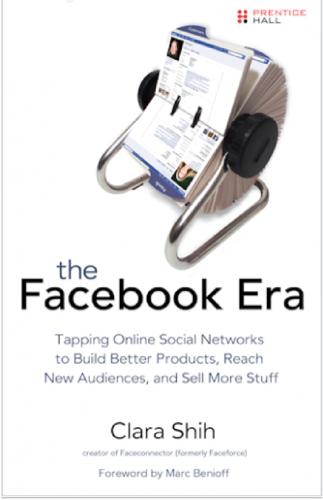
The Facebook era: tapping online social networks to build better products, reach new audiences, and sell more stuff
by
Clara Shih
Published 30 Apr 2009
By strengthening the bond and improving information flow among your internal deal team as well as with key customer stakeholders, social networking sites can help your company create a more productive selling machine. Establishing Credibility First, sales reps need to establish credibility that they are competent and committed to delivering customer success. Traditionally, reps had to rely on the brand reputation of their company and products, and their Rolodex of customer relationships slowly built up over many years. From the Library of Kerri Ross C h a p te r 4 Social Sales 65 Today, sales reps and others can accelerate the process of building trust by using social networking sites to convey qualifications. A typical LinkedIn profile, for example, contains four types of information that would have been awkward or more difficult to provide in the past: public testimonials, list of connections, professional experience, and education pedigree.
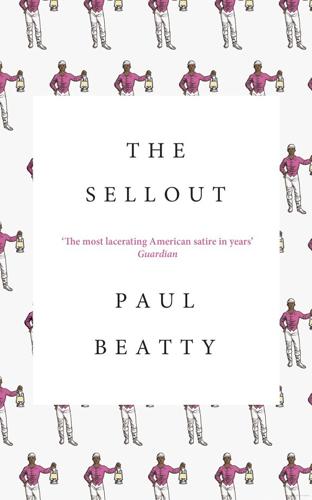
The Sellout: A Novel
by
Paul Beatty
Published 2 Mar 2016
Foy had been in the news lately. His out-of-wedlock children so numerous, they’d filed a class-action suit against him for the emotional distress he’d caused by sticking his face in front of a camera or microphone at every opportunity. At this point it was only the smooth Euclidean planar perfection of his box cut and his Rolodex that was holding both him and the Dum Dum Donut Intellectuals together. Hard to lose faith in a man who even at the worst of times can keep his hair on point and call upon friends like Jon McJones, a black conservative who’d recently added the “Mc” to his slave name. McJones read from his latest book, Mick, Please: The Black Irish Journey from Ghetto to Gaelic.
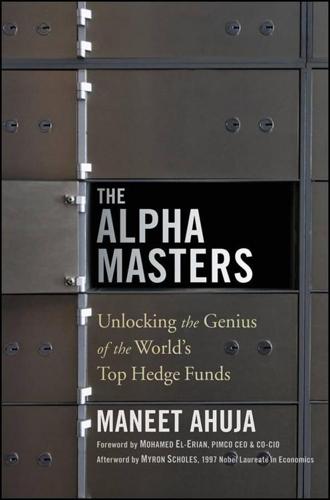
The Alpha Masters: Unlocking the Genius of the World's Top Hedge Funds
by
Maneet Ahuja
,
Myron Scholes
and
Mohamed El-Erian
Published 29 May 2012
And after four years of learning the ropes at Bear, Paulson felt prepared to play in the big leagues. “Once I got to the point where I had gained the experience advising in mergers, negotiating merger agreements, underwriting common stock, preferred stock, subordinated debt, and senior debt offerings, and having a Rolodex full of capital providers, I felt then I was ready to move back to the principal side. My experience at Bear gave me the building blocks that I needed to act as principal.” In the late 1980s, Gruss Partners and Bear Stearns together made a large gain on the sale of Anderson Clayton Company and Paulson became close with Marty Gruss, son of Joseph Gruss, the founder of Gruss Partners and the current senior partner.
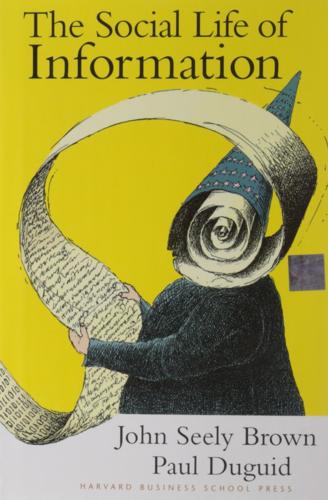
Social Life of Information
by
John Seely Brown
and
Paul Duguid
Published 2 Feb 2000
More generally, the robust and efficient ways documents handle information still have, we believe, a lot to teach about how to socialize a technology. (Books have been so well socialized that people barely even think of them as a technology.)3 Going, Going . . . There is no doubt that many paper-based artifacts are disappearing. The black-edged letter, the social security check, the Rolodex, Page 176 the pink slip, the airline timetable, and the library catalogue are all fading into oblivion (not always without a fight). 4 And many other catalogues and manuals that were always ill suited for paper-based documents have gone the way of Aetna's 100 million pages. As examples of paper holding its ground, however, consider the three futuristic categories we mentioned above, the paperless office, electronic newspaper, and digital library.

Twilight of the Elites: America After Meritocracy
by
Chris Hayes
Published 11 Jun 2012
Once a member of the elite has sufficiently monetized his or her power, that money can be traded for other kinds of power, which in turn can be invested and reap its own kinds of rewards. Harold Ford Jr.’s political and media networks made him an attractive hire for Citigroup, where he was, in turn, able to expand both his Rolodex and his earning potential. As this positive feedback loop plays out, the elite increasingly becomes an entirely distinct group, moving effortlessly between public and private life, alternating between access to state power and market power. As a snapshot of what this looks like in practice, consider the routine staffing changes in the Obama administration as it reached the midway point of its first term.

Au Contraire: Figuring Out the French
by
Gilles Asselin
and
Ruth Mastron
Published 1 Dec 2000
An American who had just been hired to work for a French corporate attorney met with his new French boss to go over his job responsibilities: “He handed me a letter from Company X announcing their change of address and said, ‘We’ve had litigation pending with this company for years, you can take care of this.’ I noted the address change on my Rolodex and brought the letter back. It turned out that he meant I should take care of the whole case. I felt like a complete jerk. Why didn’t he tell me what he wanted me to do?” The French response, of course, would be, “He did,” but he did so in a high-context way that was not at all clear to the American.
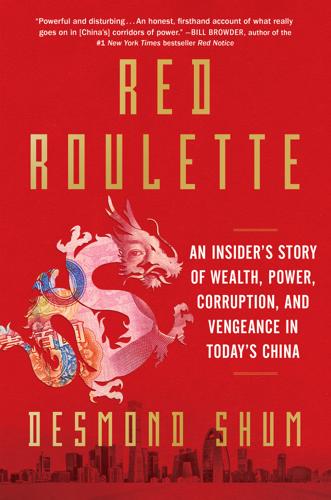
Red Roulette: An Insider's Story of Wealth, Power, Corruption, and Vengeance in Today's China
by
Desmond Shum
Published 6 Sep 2021
If our firm succeeded on a level playing field against other businesses, what would that mean for her? She saw her role as always giving Great Ocean the inside track. But what if Great Ocean didn’t need the inside track and could win the race without her? With Wang Qishan, Sun Zhengcai, and other ministers, vice-ministers, and assistants in her Rolodex, Whitney had faith that we’d be able to find a new guardian inside the Party whom we could serve. And she was always looking for someone new. In 2008, Auntie Zhang arranged a meal with an up-and-coming Chinese official named Xi Jinping. He’d just been appointed China’s vice-president. Auntie Zhang brought Whitney along as a second pair of eyes and ears to take the measure of this rising star.

Everything I Know About Love
by
Dolly Alderton
Published 1 Feb 2018
Finally, and most exotically, a boy who someone had met when they were on a family holiday. This was the Holy Grail, really, as he could be from absolutely anywhere, as far-flung as Bromley or Maidenhead, and yet there you’d be, talking to him on MSN Messenger as if he were in the same room. What madness; what adventure. I quickly collated a Rolodex of these waifs and strays, giving them their own separate label in my contacts list, marked ‘BOYS’. Weeks would pass talking to them – about GCSE choices, about our favourite bands, about how much we smoked and drank and ‘how far’ we’d ‘been’ with the opposite sex (always a momentously laboured work of fiction).

We Are Never Meeting in Real Life
by
Samantha Irby
Published 14 Apr 2017
Before I gave up on life and meeting people in public, I used to let my friends set me up on blind dates, mostly because I hate myself. I don’t really feel alive unless I’m actively wishing I was dead. This is how your friend, who loves you, sets you up on a blind date: first, she browbeats her boyfriend into exhaustively scrolling through the mental Rolodex of every man he’s ever worked for, talked to, or shared an elevator with until he can come up with one who has a job, isn’t married, and might be convinced to eat dinner across from a woman she’s only willing to describe as “very smart” and “super funny” with “an amazing personality.” Then, she forces you to cannonball into the middle of the dating ocean holding an inner tube with no flippers or oxygen tank.
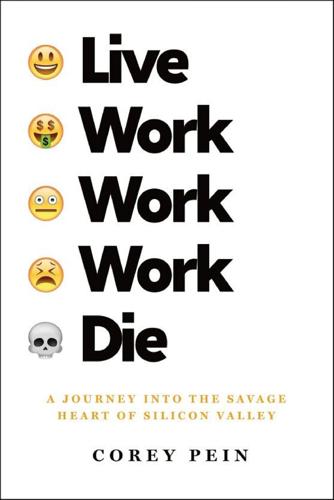
Live Work Work Work Die: A Journey Into the Savage Heart of Silicon Valley
by
Corey Pein
Published 23 Apr 2018
By the time I returned to my seat, the guy who had been in line behind me was already pitching. “Has anyone here not purchased something online because they wanted to try it first?” he said. The words barely registered. I had gotten a “woo-hoo.” I had gotten “unique.” And I had gotten their attention. But these investors wouldn’t be opening their Rolodexes up to me, much less their checkbooks. Had I humiliated anyone, save myself? Not really. But I had generated a certain amount of discomfort, and perhaps that was good enough for now. The remaining presentations passed in a melancholic blur. I didn’t even catch who wound up winning the grand prize: “a free demo table ($130 value) at a future Lifograph event.”

Crushing It!: How Great Entrepreneurs Build Their Business and Influence—and How You Can, Too
by
Gary Vaynerchuk
Published 30 Jan 2018
“I was like, ‘You don’t understand. I’m so bad that if I did do what everybody else is doing, nobody’s going to listen. It’s just not going to be good. So I have to do something different. I have to be unique. I have to do something that’s going to raise people’s eyebrows.’” Those two mentors, with their large virtual Rolodexes, were invaluable to helping Dumas land his first interviews. They weren’t going to introduce him to A players, but they were willing to introduce him to the B, C, and D players who were still building an audience, publishing books, and eager to share their stories with a neophyte in exchange for additional exposure.
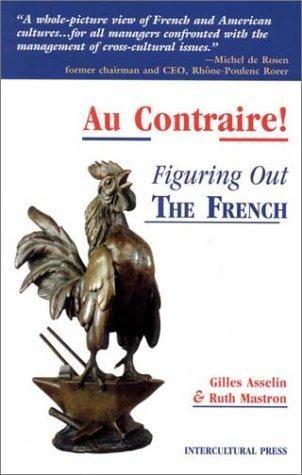
Au Contraire!: Figuring Out the French
by
Gilles Asselin
and
Ruth Mastron
Published 14 Apr 2001
An American who had just been hired to work for a French corporate attorney met with his new French boss to go over his job responsibilities: “He handed me a letter from Company X announcing their change of address and said, ‘We’ve had litigation pending with this company for years, you can take care of this.’ I noted the address change on my Rolodex and brought the letter back. It turned out that he meant I should take care of the whole case. I felt like a complete jerk. Why didn’t he tell me what he wanted me to do?” The French response, of course, would be, “He did,” but he did so in a high-context way that was not at all clear to the American.
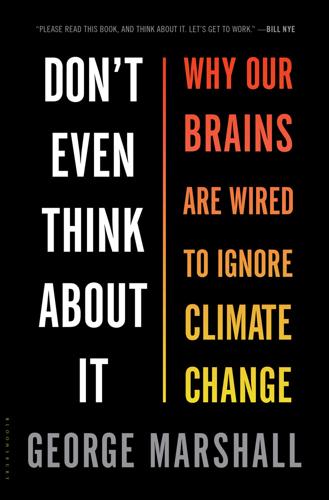
Don't Even Think About It: Why Our Brains Are Wired to Ignore Climate Change
by
George Marshall
Published 18 Aug 2014
In the United States, more than a third of people believe that “most scientists are unsure whether global warming is occurring or not.” In part this distorted perception is due to the way that the media presents the issue as contested and adheres to a debate format that pits a climate scientist against a contrarian drawn from a spinning Rolodex of professional deniers. But this uncertainty also originates in the professional caution with which climate scientists present their findings. There is even widespread uncertainty over the very meaning of the word uncertainty. The precise language of science uses the word to mean the extent to which the weight of available evidence supports a conclusion.
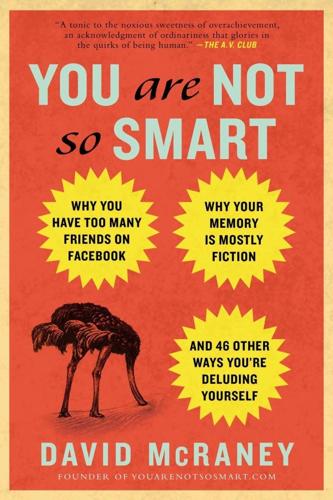
You Are Not So Smart
by
David McRaney
Published 20 Sep 2011
You are always looking for risks and rewards, but when you want to believe something is good you will unconsciously turn down the volume on the bad qualities, and vice versa. Any familiar danger will overshadow new threats, and first impressions are difficult to change. 26 Dunbar’s Number THE MISCONCEPTION: There is a Rolodex in your mind with the names and faces of everyone you’ve ever known. THE TRUTH: You can maintain relationships and keep up with only around 150 people at once. Think of a cup completely filled with water. You try to add one drop to this cup, and one drop spills out. You try to pour a cup of water into it, and a cup of water spills out.
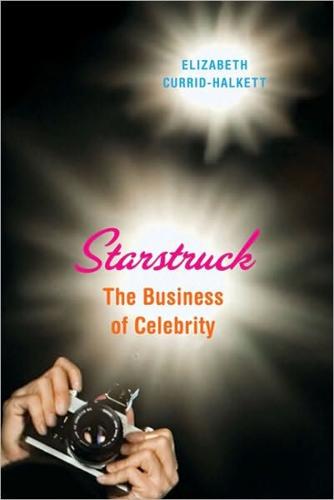
Starstruck: The Business of Celebrity
by
Currid
Published 9 Nov 2010
The benefits of these connections are not simply access to more people; there are real advantages to one’s career and social status, what sociologists and economists call “positive network externalities”: Being a part of a network of celebrities increases the chances of meeting a high-profile partner, landing a major movie role, and getting photographed and featured in popular media outlets, all of which enable one to become a bigger star.14 The importance of celebrities’ interconnectivity is that it enables them to interact if they want to. Each star one becomes “friends” with has a whole Rolodex of contacts that may be useful in attaining these goals. Celebrities need to be able to interact with the most influential people in the film, music, or fashion industries; it’s important for their careers and for their ability to nurture and maintain their own celebrity status. Talent vs. Residual: Getting into the Celebrity Network For the outsider, the differences among celebrities seem rather academic.
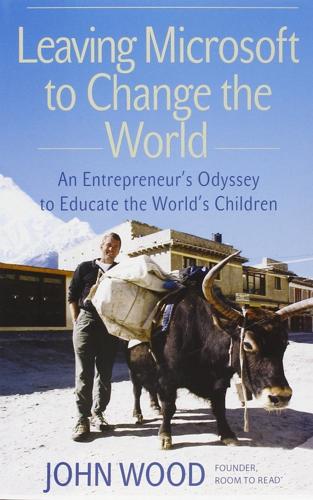
Leaving Microsoft to Change the World: An Entrepreneur's Odyssey to Educate the World's Children
by
John Wood
Published 28 Aug 2006
With only half the normal school hours, they were fighting this battle with one arm tied behind their back. It was not their fault, and I knew that we had it in our power to do something about it. Immediately, my Monday had clarity—my only goal was to find a donor to support the school project in Can Gio. I combed my Rolodex and began making a prospect list. Someone was going to adopt this project—I knew that in my heart. It’s not often that we are given an opportunity to forever change the lives of 500 children. How could anyone say no to this? If I couldn’t close this deal, I didn’t deserve to be in the business. So I brewed myself a cup of coffee, put on my headphones, cranked Talking Heads to loud volume, and began firing off an edited version of Erin’s e-mail to prospective donors.
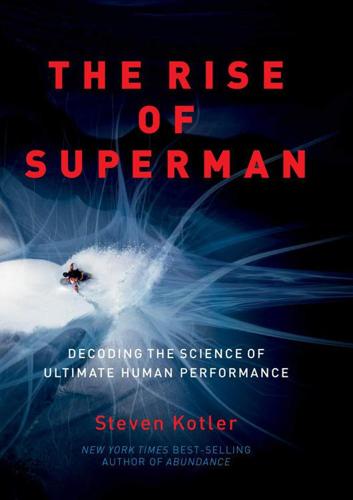
The Rise of Superman: Decoding the Science of Ultimate Human Performance
by
Steven Kotler
Published 4 Mar 2014
But Foo carried his small-wave slasher’s style into the larger surf. He took bigger risks and–the other portion of his strategy–he bragged about them too. “If you want to ride the ultimate wave,” said Foo–as often as possible, always when there were journalists around– “you have to be willing to pay the ultimate price.” Foo cultivated fame. His Rolodex contained the names and numbers of the world’s best surf photographers. Rarely did he venture into the waves without making a few phone calls first. On December 23, 1994, he didn’t have to bother. Throughout the 1990s, Maverick’s fearsome reputation had been growing, but the winter of ’94 brought some of the biggest waves in history to California’s coast.
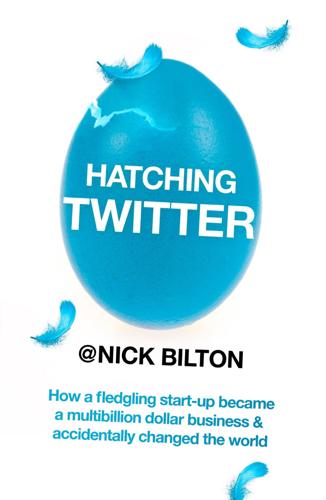
Hatching Twitter
by
Nick Bilton
Published 5 Nov 2013
“Our app is still live on Facebook, but they’ve disabled the friends-dot-get call and it keeps returning a zero,” he said in programmer speak. In other words, Facebook had changed the locks on its door, at least for Twitter, blocking access to the site’s friends lists, even though thousands of other sites were allowed to access the same Rolodex. The tech press had already started picking up the new feature and was quickly adding that it was broken, pointing fingers directly at Twitter. So to defend itself, the company spent the next few hours engaged in a very public spat with Facebook. “We believe this is an issue on Facebook’s end,” Twitter declared on its company Web site, publicly slapping Facebook in the face.
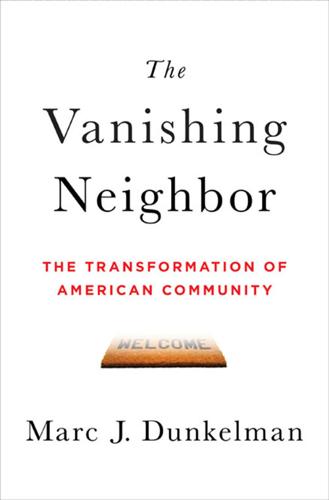
The Vanishing Neighbor: The Transformation of American Community
by
Marc J. Dunkelman
Published 3 Aug 2014
In an effort to answer that question, Mark Granovetter, who is now a professor at Stanford, published a paper in 1973 that contained one of the most enduring phrases of twentieth-century sociology: “the strength of weak ties.”23 When it comes both to career advancement and, more importantly, to the spread of innovative concepts, Granovetter argued that the connections we maintain with our close contacts are not nearly as important as the breadth of our extended networks. Economic dynamism, in essence, emerges less in the cliques that watch Monday Night Football together than in the longer list of contacts we each maintain in our virtual rolodexes. You don’t hear about a job opening from your best friend, but from the guy you played racquetball with a few months back. You don’t hear about a big new idea from the woman who works in your pod, but from a college friend who dropped in for lunch while driving through town. Over the past forty years, Granovetter’s thesis has been widely embraced.

Animal: The Autobiography of a Female Body
by
Sara Pascoe
Published 18 Apr 2016
What I think about during sex, and I presume this is true for every woman in a long-term relationship, is wide-ranging, disgusting and almost the literal opposite of what attracts me in real life. I imagine gross fat old men. People with bad hygiene and clumsy hands. And what they’re doing feels so good that I can’t stop them even though I hate them. I have a Rolodex in my head of every person I have ever met‡ and I scroll through while my boyfriend is going down on me. Hundreds of men and women that I can use to get me off, but who I would never allow to lay a finger on me in actuality. These fantastical imaginings are not an exaggerated version of the truth; they’re a separate dimension with no gateway to this one.
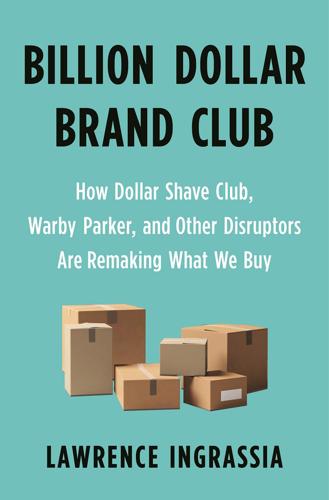
Billion Dollar Brand Club: How Dollar Shave Club, Warby Parker, and Other Disruptors Are Remaking What We Buy
by
Lawrence Ingrassia
Published 28 Jan 2020
Jones had been a successful entrepreneur himself, most recently as chief executive of Myspace, before deciding to use his knowledge to help early-stage start-ups. If Jones liked an idea, Science would provide seed money in return for a small stake, as well as advice and shared office space (really just a desk and internet connections). Jones also used his Rolodex to recruit managers, whom entrepreneurs like Dubin often needed to help with different aspects of running a business. Jones wasn’t especially enthusiastic when he got Dubin’s call in the fall of 2011. Razor blades? “I was skeptical,” he recalls. “My partners were, too. Razors are a hard market to crack.

Spectrum Women: Walking to the Beat of Autism
by
Barb Cook
and
Samantha Craft
Published 20 Aug 2018
Some interests have waned with time, perhaps when I exhausted my curiosity. Sadly, this boredom occurs in relationships too—novelty is the spice of life, and crushes can be addictive (Davide-Rivera, 2013). When I am tempted to take up with a person, or explore a topic, I flip back through the “life inventory” in my Rolodex brain, and decide how it worked out before. If I remember losing my boundaries or neglecting my self-care (the so-called tortured artist effect), I will pause and reflect on the cost. Changing interests With intense pursuits, some are needed to blend in or survive; others are a source of endless delight.

Please Don't Sit on My Bed in Your Outside Clothes: Essays
by
Phoebe Robinson
Published 14 Oct 2021
And no, I don’t mean during transactional exchanges in which they are in subordinate positions to you—waitstaff, receptionists, makeup artists—although engaging in respectful small talk with the people providing you a service is always appreciated. But what I’m suggesting is sparking up conversation with folks you meet in line, at happy hours, networking events, while at the gym, etc. I mean, it’s really not that complicated. Don’t be weird about it and it will happen. But honestly, trying to add Black people to your friend Rolodex is soooooo beside the point. You don’t need to be Black people’s friend in order to fight for their humanity. And if you think you do, I guarantee all that will end up happening is that the handful of Black people you know will, in your eyes, become the exception (#BlackExcellence) to the rule (Black people are a problem that needs fixing).

Zeitgeist
by
Bruce Sterling
Published 1 Nov 2000
“Yes. You mean Mrs. Tansu Çiller.” “Mrs. Tansu Çiller is not Turkey’s prime minister by accident, you know.” “Yes, I know. I know very well about all of that.” Enlightenment was visibly breaking over Ozbey. He was definitely with the program; he was moving it to the top of the wheel in his mental Rolodex. “I know Mrs. Çiller,” he confided. “My Uncle the Minister and I, we had dinner with her, in Ankara, last month. And also her husband, Mr. Ozer Çiller: the prominent businessman, and party financier. Mr. Ozer Çiller is a very clever fellow.” “You’re kidding. You know the prime minister?” “We’re all very good friends!

Broad Band: The Untold Story of the Women Who Made the Internet
by
Claire L. Evans
Published 6 Mar 2018
They found the perfect application for Resource One’s computer through an organizer who hung around the building, Charlie Bolton. Bolton told them how social services agencies in the Bay Area didn’t share a citywide database for referral information; he’d personally observed how social workers at different agencies relied on their own Rolodexes. The quality of referrals they gave varied throughout the city, and people weren’t always connected to the services they needed, even if the services did exist. Chris Macie, who founded Resource One with Pam and stayed on after she left, programmed a new information retrieval system for the project, and the women started calling social workers all over San Francisco.

Liftoff: Elon Musk and the Desperate Early Days That Launched SpaceX
by
Eric Berger
Published 2 Mar 2021
From there, another boat would deliver the rocket to Omelek. But SpaceX did not have a month to wait for a circuitous barge trip. It would have to send the rocket using an oversized aircraft. Brian Bjelde, who had developed good contacts within the U.S. military during his work on the Falcon 1’s flight termination system, dove into his Rolodex to try and arrange such transport. After reaching out to contacts at the Air Force, D.A.R.P.A., and other military offices, Bjelde received a callback. The Air Force had a C-17 aircraft available. “Somebody smiled on us,” he said. The Air Force alerted SpaceX that it would fly the C-17 aircraft into Los Angeles International Airport on September 3.
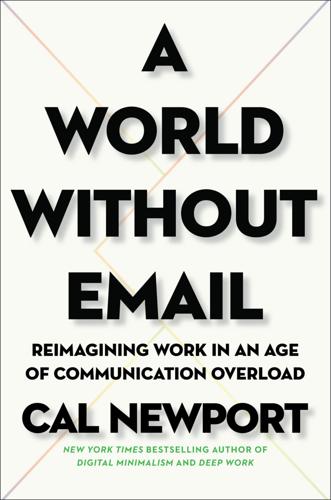
A World Without Email: Reimagining Work in an Age of Communication Overload
by
Cal Newport
Published 2 Mar 2021
As we were talking about workplace inefficiency, he told me the story of the woes the agency was facing trying to get a customer relationship management system called Salesforce working properly for their particular needs. After endless hours of tinkering, they ended up having to hire an additional expert to do nothing but work with the system. My agent wasn’t so sure they were really gaining a productivity bump compared with the old days of Rolodexes and business cards. More insidious, however, are the indirect labor increases personal computing instigated. A major problem with personal computers, Tenner notes, is not that they make individual tasks harder, but that they make them just easy enough. To explain, he points to a remarkable 1992 paper, published in the journal National Productivity Review by a Georgia Tech economist named Peter G.

Underwater: How Our American Dream of Homeownership Became a Nightmare
by
Ryan Dezember
Published 13 Jul 2020
That would show clients and the competition alike that they were not messing around. You wouldn’t find Shallow in city hall giving presentations to the planning commission, pleading with the city council to rezone property, or sucking up to the mayor. He left that to the developers and stayed in the background, working his golden Rolodex to find takers for all the condos that were being proposed. Yet he was often seen in public. Some days all you had to do was look up. For years he and his wife, Susan, who handles the books at his office, had a side gig in hot-air balloons. They had taken up the hobby after an enthralling family ride over Asheville, North Carolina, and spent many weekends traveling around the country to compete in balloon races.
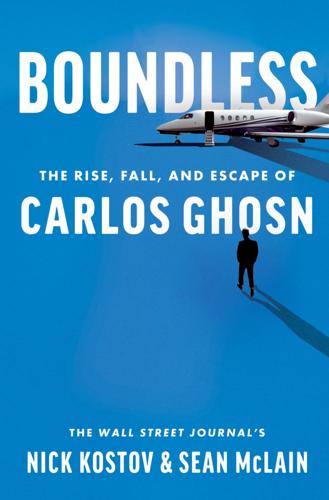
Boundless: The Rise, Fall, and Escape of Carlos Ghosn
by
Nick Kostov
Published 8 Aug 2022
Dassas and Kelly were joined by another Nissan lawyer for a call on January 24, and they decided to scrap the loan for Juffali. Instead, the three men discussed paying the Saudi businessman to locate wealthy individuals or companies that would be willing to invest in Nissan. The automaker needed to raise money, and Juffali arguably boasted one of the region’s best Rolodexes. Still, that arrangement made Dassas nervous, and he shared his concerns with Kelly. Nissan usually hired large investment banks to find investments, and Juffali’s company was tiny. The next day, a Sunday, Kelly wrote to Ghosn, “Alain [Dassas] informed me that he was uncomfortable legally and for business reasons about providing money to one of Mr.

The Warhol Economy
by
Elizabeth Currid-Halkett
Published 15 Jan 2020
Which is a bummer because when I first got here I was like ‘this sucks’ because I couldn’t get into the network.” Gillian’s comments point out both the need to have instantaneous access to a labor pool and its diverse skill sets, as well as the importance of having a social network to attain contact with other creative producers. In that sense, New York creative producers are walking Rolodexes. They possess many weak ties, which allows them to elevate their own careers but also to place fellow artists with clients and firms who need them. As one artist noted, “There is this larger world of creative producers [who have access to you] . . . [someone might say to me] ‘Saw that artist in this show/magazine . . .

The End of Secrecy: The Rise and Fall of WikiLeaks
by
The "Guardian"
,
David Leigh
and
Luke Harding
Published 1 Feb 2011
Following several years in “relative obscurity” it had now become the “media’s darling”. He envisaged that WikiLeaks could “morph into a gigantic media intermediary”, as a journalistic clearing-house: “Under this model, WikiLeaks staffers would act as idea salesmen relying on one very impressive digital Rolodex.” Ian Katz, the Guardian’s deputy editor, put the position trenchantly at a debate organised by the Frontline Club in mid-January. “I think Julian has used his profile very cleverly and what he is doing is trying to make himself the brand, if you like, that is synonymous with whistleblowing … He wants you to think if you are a pissed off analyst in [the military] or wherever and you have got something you want to share with the world, ‘I will send it to that Assange fellow, not to the Guardian.’
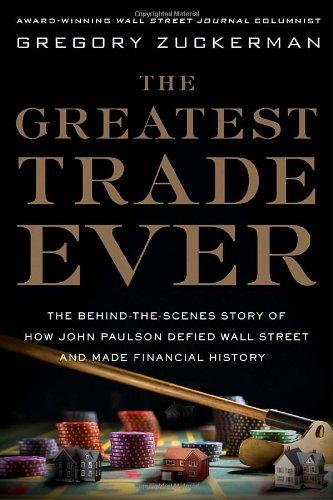
The greatest trade ever: the behind-the-scenes story of how John Paulson defied Wall Street and made financial history
by
Gregory Zuckerman
Published 3 Nov 2009
After a couple of years, Levy and Paulson realized that Paulson didn’'t have the experience to excel at his job. Nash agreed a change needed to be made. Paulson was smart and presented his ideas well, but he hadn’'t learned the financial skills necessary to lead buyout transactions, nor did he have a thick Rolodex of contacts in the corporate world to pull them off on his own. “"As much as Leon and I liked each other, they needed someone more senior,”" Paulson says. Looking for a new job, once again, Paulson now was more than four years behind his classmates from business school. Several investment banks offered him entry-level positions, where he would join the most recent business school graduates, but it was something he resisted.

The End of Ownership: Personal Property in the Digital Economy
by
Aaron Perzanowski
and
Jason Schultz
Published 4 Nov 2016
In essence, they are computers. As Chief Justice John Roberts recently wrote about mobile phones: “The term ‘cell phone’ is itself misleading shorthand; many of these devices are in fact minicomputers that also happen to have the capacity to be used as a telephone. They could just as easily be called cameras, video players, rolodexes, calendars, tape recorders, libraries, diaries, albums, televisions, maps, or newspapers. ... It is no exaggeration to say that many of the more than 90 percent of American adults who own a cell phone keep on their person a digital record of nearly every aspect of their lives—from the mundane to the intimate.”1 That’s certainly true of our phones, but it’s equally true of so many of the objects of modern life.

Economists and the Powerful
by
Norbert Haring
,
Norbert H. Ring
and
Niall Douglas
Published 30 Sep 2012
The Emergence of a National Economy 1715–1815. Armonk: M. E. Sharpe. Neumark, David and William Waescher. 2000. “Minimum Wages and Employment: A Case Study of the Fast-Food Industry in New Jersey and Pennsylvania: Comment.” American Economic Review 90: 1362–96. Nguyen-Dang, Bang. 2008. “Does the Rolodex Matter? Corporate Elite’s Small World and the Effectiveness of Boards of Directors.” Working paper. 236 ECONOMISTS AND THE POWERFUL Nguyen-Dang, Bang and Kasper Meisner Nielsen. 2010. “What Death Can Tell: Are Executives Paid for Their Contributions to Firm Value?” Working paper. OECD. 1994/2004/2007/2008.
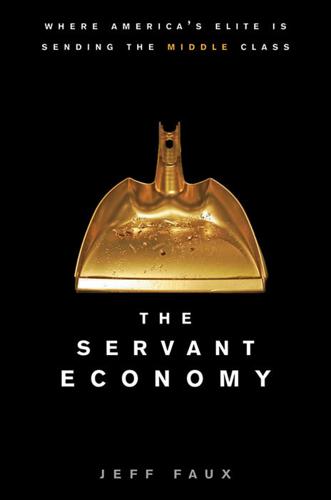
Servant Economy: Where America's Elite Is Sending the Middle Class
by
Jeff Faux
Published 16 May 2012
It legitimized the manipulation of human relationships in the service of career and provided the psychological techniques for doing it. Selling themselves with these techniques, clever ambitious outsiders might bypass the “old boys’” network in their ascent up their career ladders. The Internet has revolutionized networking—Rolodexes replaced by e-mail lists replaced by Facebook and Twitter—and according to Slaughter, therein lies America’s great advantage. Slaughter notes, “Every CEO advice manual published in the past decade has focused on the shift from the vertical world of hierarchy to the horizontal world of networks. Media are networked: online blogs and other forms of participatory media depend on contributions from readers to create a vast, networked conversation.
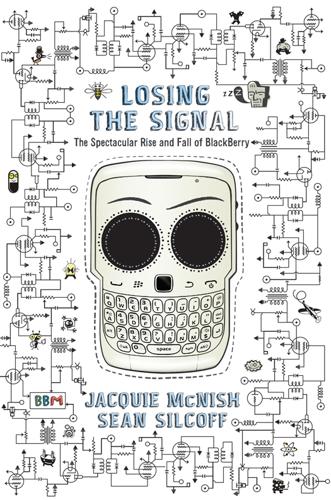
Losing the Signal: The Spectacular Rise and Fall of BlackBerry
by
Jacquie McNish
and
Sean Silcoff
Published 6 Apr 2015
RIM’s recovery protocol was going according to plan within seconds of the Slough crash. The disabled server was shut off and its stalled messages began switching over to the backup. Unfortunately one component failed to do its job. A single router refused to route. The size of a suitcase, routers are computerized Rolodexes that store a database of Internet Protocol addresses to identify where incoming e-mails should be sent. When a new server takes over, routers are supposed to send waiting e-mails. Instead of sending addresses to the new server, the router, infected by an undetected software bug, instructed the disabled computer to restart—again and again and again.

Forward: Notes on the Future of Our Democracy
by
Andrew Yang
Published 15 Nov 2021
Other friends of mine would tell me later, “I have to be honest, I thought you were crazy.” And those were the good ones. Occasionally I would call a friend I knew would be supportive just to balance it out. One of my particularly kind friends actually cried tears of joy, out of respect (I think) for my level of commitment. Most politicians spend years fine-tuning a Rolodex of potential donors. My initial “email list” was simply my Gmail address book. Here is the email I sent to my friends and contacts telling them I was running for president: —————Forwarded message————— From: Andrew Yang <andrew@ubi2020.org> Date: Sun, Nov 26, 2017 at 1:48 PM Subject: The starting gun Cc: hq@ubi2020.org Hello all, You are the best people I know—and some of the best people anywhere.

Vanishing Frontiers: The Forces Driving Mexico and the United States Together
by
Andrew Selee
Published 4 Jun 2018
In 2007, long before others were paying attention to the city next door, Burnham helped spearhead a new group, the Smart Border Coalition, which brought together business leaders from both cities to press for border procedures that would allow goods and people to move across quickly and efficiently. A prominent Republican whose Rolodex includes billionaires, movie stars, and political leaders, Burnham believes that the real danger at the border stems not from immigrants coming across but from inefficient security measures that damage the economic vitality and natural linkages between the two economies. Every time a truck idles for three or four hours to cross the border, the cost of whatever it is transporting goes up, he notes.

Winners Take All: The Elite Charade of Changing the World
by
Anand Giridharadas
Published 27 Aug 2018
In Hinton’s view, it was not a matter of malice. “It’s the banality of inattentiveness,” he said. “It’s not wickedness. It’s not conscious self-censorship. It’s just habit.” He brought up that meeting of nonexpert experts he had hosted in that conference room above West 57th Street. “I’m guilty of that,” he said. “I’ve got a pretty broad Rolodex. But when you reach out, you reach out to smart, articulate people like yourself. I mean, we all do that. So it self-replicates.” He wondered aloud whether the larger project and the foundations behind it could be run differently. If he believed the protocols’ spread to be a colonization, what would decolonization look like?
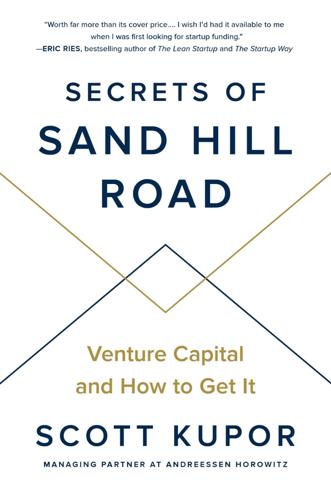
Secrets of Sand Hill Road: Venture Capital and How to Get It
by
Scott Kupor
Published 3 Jun 2019
Many CEOs like to do regular one-on-one meetings with board members to ensure that they have time outside of the board meeting to share information and receive feedback. In addition, do you expect them to help you identify future members of the executive team, interview candidates for executive roles, open their Rolodexes to identify sales prospects, etc.? This goes without saying, but you should also set expectations about how you intend to run the board meetings—e.g., do you expect people to have read the deck beforehand and plan to use the meeting largely as a discussion of open questions? Second, get agreement among your board members as to how they will provide you feedback.
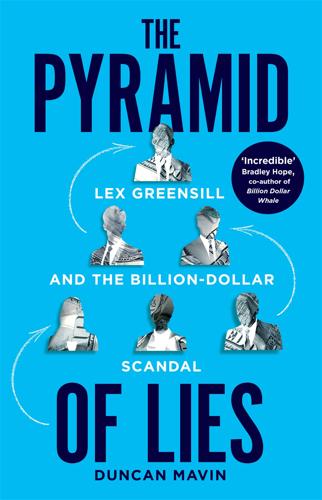
The Pyramid of Lies: Lex Greensill and the Billion-Dollar Scandal
by
Duncan Mavin
Published 20 Jul 2022
At this time, he often wore his Downing Street lanyard and almost always carried his two business cards: one with the UK government coat of arms on it, Lex’s name and the words ‘Senior Adviser Prime Minister’s Office’, and the other for Greensill Capital, which was about 50 per cent bigger than a normal business card. To those who asked why it was so big, Lex replied that the card had been made deliberately too large to slide down in a Rolodex, so it would stand out. Sometimes, when Lex was trying to hire someone, he’d even present them with a Greensill card made out in their name, as if to say: Look at what you could become. Lex also became a trustee of the board of the Monteverdi Choir, a London-based choir and orchestra group. The Monteverdi promotes young musicians and classical music.
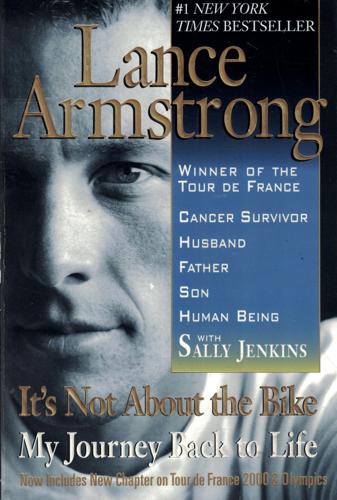
It's Not About the Bike: My Journey Back to Life
by
Lance Armstrong
Published 1 Sep 2001
There were three or four men around there who were Cat 1 riders, local heroes, and they all rode for the Richardson Bike Mart, so I began training with them, a 16-year-old riding with guys in their late 20s. By now I was the national rookie of the year in sprint triathlons, and my mother and I realized that I had a future as an athlete. I was making about $20,000 a year, and I began keeping a Rolodex full of business contacts. I needed sponsors and supporters who were willing to front my airfare and my expenses to various races. My mother told me, “Look, Lance, if you’re going to get anywhere, you’re going to have to do it yourself, because no one is going to do it for you.” My mother had become my best friend and most loyal ally.

Doing Time Like a Spy
by
John Kiriakou
Published 11 May 2017
When the transcript of Panetta’s speech and his inadvertent leak came to light in January, a CIA spokesman told the Associated Press that the agency had subsequently “overhauled its procedures for interaction with the entertainment industry.” Such internal reviews are fine and good, but equality before the law is the rule in America. Your job title, your Rolodex, and your political friendships are not supposed to trump accountability. Except when they do. General James “Hoss” Cartwright, once known as the president’s “favorite general,” was reportedly targeted as the source of information about the Stuxnet virus leaked to a New York Times writer. That investigation has dropped from sight, and Cartwright has so far faced no charges.
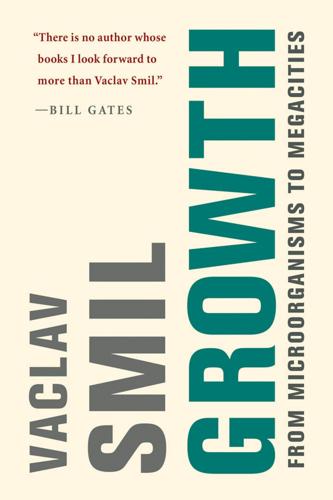
Growth: From Microorganisms to Megacities
by
Vaclav Smil
Published 23 Sep 2019
Tupy (2012) claimed that 16 devices or functions were replaced by applications available on smartphones: camera, personal computer that was used largely for e-mail, radio, fixed phone, alarm clock, newspaper, photo album, video recorder, stereo, map, white-noise generator, DVD player for movies, rolodex, TV, voice recorder, and compass. And we could also add dictionaries, calendars, notebooks, appointment books, and convenient banking. Some of these claims are quite true. Today’s mobile phones produce photos with resolution much higher than good electronic cameras commonly used a decade ago, and the devices make excellent alarm clocks, rolodexes, compasses and, of course, phones. But others are easily disputable: a tiny screen is hardly an equivalent of watching large-size high-definition TV, and scanning truncated news items is not an equivalent of reading a newspaper.

The new village green: living light, living local, living large
by
Stephen Morris
Published 1 Sep 2007
A new sphere of associates are the folks from New Society — Chris and Judith Plant, Ingrid Witvoet, Sara Reeves, and others — who have made the distance between Gabriola Island and Vermont seem very small. I thank those who have been willing to play along with this venture by sharing their ideas, words, opinions, Rolodexes, and address books. Insofar as this book is successful it is due to your willingness to play along. Rochelle Elkan deserves thanks for her stalwart role in seeking permissions and preparing the manuscript. Special thanks to Michael Potts, co-founder of The Public Press and co-conspirator in so many ventures.
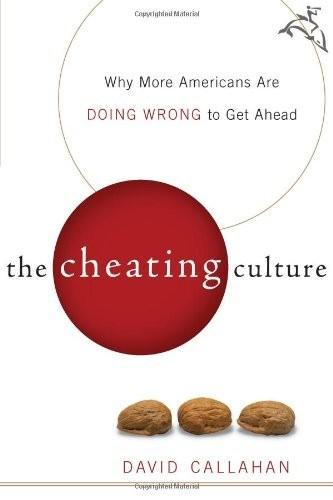
The Cheating Culture: Why More Americans Are Doing Wrong to Get Ahead
by
David Callahan
Published 1 Jan 2004
Like other industries, accountants had grown increasingly hip to the ways of Washington and put their money where their interests were. Between 1989 and 2000, accounting firms gave nearly $40 million in political contributions. As this money flowed into campaign coffers on both sides of the political aisle, accountants suddenly found themselves with a lot more friends on Capitol Hill. They hired D.C. lobbyists with fat Rolodexes to deepen these relationships, spending upwards of $7 to 8 million a year on lobbying by the late 1990s.20 They also found natural allies in the phalanx of well-funded conservative think tanks like the CATO Institute and the Heritage Foundation that opposed new regulations on principle. Leavitt was initially open to the idea that the accounting industry could police itself and create new rules to insure auditor independence.
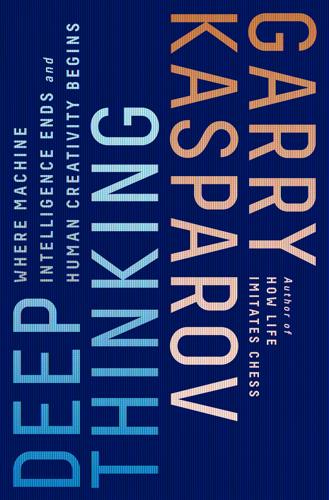
Deep Thinking: Where Machine Intelligence Ends and Human Creativity Begins
by
Garry Kasparov
Published 1 May 2017
This isn’t so much revolutionary as it is another demonstration of the democratizing power of technology. Executives and other elites have been outsourcing many of their mundane cognitive functions to their secretaries and personal assistants forever. They used, and many still use, daily calendars and Rolodexes to organize and store the contact and schedule information that we now all carry on tiny computers in our pockets. Smartphones have made this process more powerful and efficient. We can look up anything now, not just phone numbers. We don’t only look for a restaurant the way we would in an old phone book; we get restaurant recommendations from an algorithm and our phone can make a reservation or order delivery for us with just a few commands.
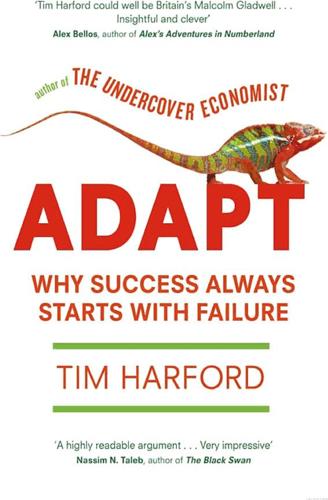
Adapt: Why Success Always Starts With Failure
by
Tim Harford
Published 1 Jun 2011
As one senior officer said, ‘I’ll be damned if I permit the United States army, its institutions, its doctrine, and its traditions to be destroyed just to win this lousy war.’ That is exactly how senior executives must feel when their cutting-edge, market-leading business finds itself being disrupted by a foolish-looking new technology. A sufficiently disruptive innovation bypasses almost everybody who matters at a company: the Rolodex full of key customers becomes useless; the old skills are no longer called for; decades of industry experience count for nothing. In short, everyone who counts in a company will lose status if the disruptive innovation catches on inside that company – and whether consciously or unconsciously, they will often make sure that it doesn’t.
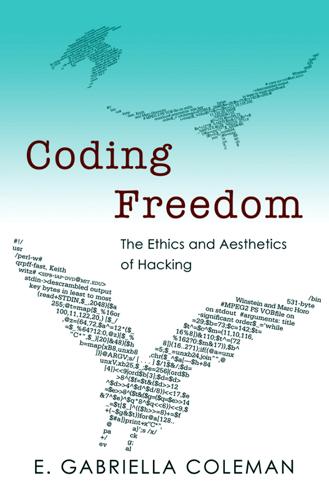
Coding Freedom: The Ethics and Aesthetics of Hacking
by
E. Gabriella Coleman
Published 25 Nov 2012
For instance, most software applications also come with some sort of description of their purpose and functionality. Jaime Zawinski, the author of a software application called BBDB, portrays his creation via a smattering of jokes (most software applications include a description of their functionality): BBDB is a rolodex-like database program for GNU Emacs. BBDB stands for Insidious Big Brother Database, and is not, repeat, not an obscure reference to the Buck Rogers TV series. It provides the following features: Integration with mail and news readers, with little or no interaction by the user: easy (or automatic) display of the record corresponding to the sender of the current message; automatic creation of records based on the contents of the current message; [ … ] While the “Insidious Big Brother Database” is an obvious and playful recognition of the common hacker mistrust of governmental authority, the Roger’s reference is more esoteric and thus only a small fraction of hackers will be able to decipher it: those hackers who have watched the television series.
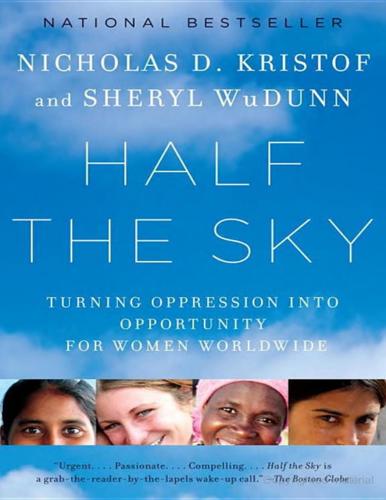
Half the Sky: Turning Oppression Into Opportunity for Women Worldwide
by
Nicholas D. Kristof
and
Sheryl Wudunn
Published 7 Sep 2008
Naka Nathaniel, a former Times videographer, regularly accompanied Nick on trips for five years, beginning during the Iraq war, and was the perfect companion when they were arrested together in one country after another. David Sanger, the chief Washington correspondent of The Times, has been a pal since we were in college together and a terrific sounding board ever since. And a special thanks to the many foreign correspondents of The Times from Kabul to Johannesburg who opened their homes, offices, and Rolodexes to us when we dropped into town. Many years ago Bill Safire introduced us to the best of literary agents: Anne Sibbald and Mort Janklow. They have been enormously helpful ever since and have played midwife to each of our books. Jonathan Segal, our editor at Knopf, is an editorial alchemist who was an early believer in this project and greatly shaped it at every stage.

Eternal Empire
by
Alec Nevala-Lee
Published 15 Mar 2013
“I’m afraid that what you see is what we have. It generally takes more than a year to fully conserve and catalog any collection. What are you looking for?” “We aren’t sure.” Wolfe regarded the rows of boxes, sensing with a sinking heart that it would take weeks to go through it all. “What about nonliterary materials? Rolodexes, pictures—” “You’re in luck. One of the first things we do is cull anything unusual. We’ve found some odd things over the years.” Kneeling, the librarian withdrew a pair of cumbersome cartons from the bottom shelf. He handed them the boxes, which were quite heavy. “Follow me, please.” He led them from the archives to an unoccupied office at the end of the floor, where he smiled politely and left, closing the door behind him.

The Ungrateful Refugee: What Immigrants Never Tell You
by
Dina Nayeri
Published 14 Sep 2020
Ros Ereira of Solidarity with Refugees (c/o Amnesty International), who spends her days thinking of ways to mend the hidden wounds of the displaced – going so far as to petition television shows like Coronation Street to introduce refugee storylines, in an effort to normalise their struggles for the British – you jumpstarted my research with your generosity, opening your rolodex and introducing me to what seemed like every refugee helper in London. You are a star! Thank you to Ariane Simard who introduced me to her incredible refugee writing workshop for Bard College Berlin. And to my friend, journalist Jen Percy who, before I left for Greece, reminded me that sometimes the search is the story.

The Raging 2020s: Companies, Countries, People - and the Fight for Our Future
by
Alec Ross
Published 13 Sep 2021
Once in the private sector, former congressional staffers can help their new employers build relationships with policy makers and navigate the machinations of Washington. The same goes for former White House staffers, agency officials, and foreign policy hands. In a city that runs on interpersonal relationships, your Rolodex can be just as important as your résumé. This phenomenon is not unique to the United States. When I spoke with Tom Fletcher, he alluded to a similar revolving door between the British government and the financial services industry. “HSBC has this guy Sherard Cowper-Coles who’s a fairly notorious ex–UK ambassador,” Tom remarked.
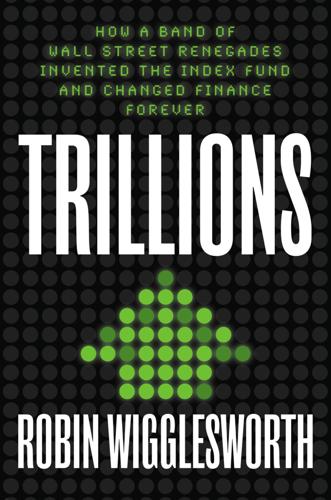
Trillions: How a Band of Wall Street Renegades Invented the Index Fund and Changed Finance Forever
by
Robin Wigglesworth
Published 11 Oct 2021
But they quickly relented, and never regretted it. “They were absolutely right, it was one of the best things we did,” Schlosstein says. “For the first three years, all they did was focus on the size of the pie, rather than the size of their slice.” They still needed money to launch, so Fink got out his Rolodex. He got in touch with Steve Schwarzman and Pete Peterson, two former Lehman bankers whose firm, Blackstone, was on its way to becoming a rising star of the private equity industry. Fink had even helped it raise its first $560 million buyout fund in 1987. Schwarzman in turn reached out to Bruce Wasserstein—First Boston’s flamboyant mergers and acquisitions head and a Wall Street legend—who told him that Fink was “by far the most gifted person at First Boston.”6 Reassured, Blackstone agreed to house the new venture in its offices and bankroll it with a $5 million loan, in return for a 50 percent stake.* Fink himself received a 2.5 percent slice of Blackstone.7 Given Blackstone’s emerging brand, Fink and Schlosstein decided to hitch their ride to it, naming their new company Blackstone Financial Management.
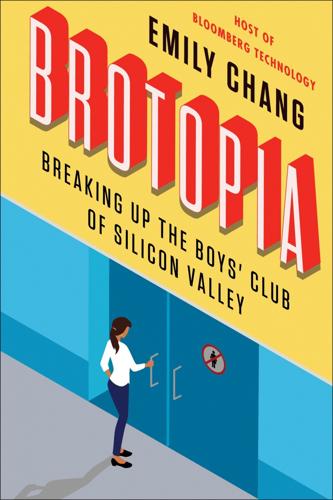
Brotopia: Breaking Up the Boys' Club of Silicon Valley
by
Emily Chang
Published 6 Feb 2018
He recalls his old group of buddies from Yahoo who went on to become great successes in tech, including Jeff Weiner, CEO of LinkedIn, and Andrew Braccia, a venture capitalist at Accel who invested in Slack. “All of them are men,” Butterfield says. “It’s not a conspiracy, but it’s also not a coincidence.” Butterfield admits that his Rolodex gives him a huge, and somewhat unfair, advantage. “It would have been the same experience if you worked at eBay in early days, Google, Facebook, or in this generation Airbnb, Pinterest, Snapchat, Slack,” he says. “I have all these amazing contacts that I can call on if I want my company acquired, or I want an investor, or if I want to do a partnership, or I want to hire someone, or whatever.
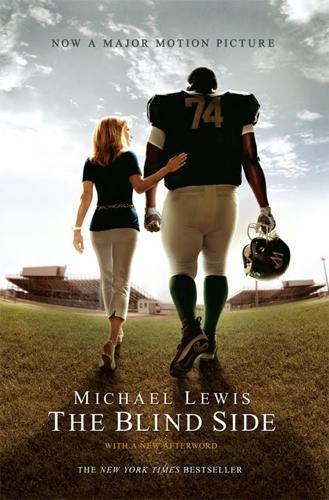
The Blind Side
by
Michael Lewis
Published 1 Jan 2006
He was just this big ol’ kid who could have been mean and scary and thuggy, but everything about him was soft and gentle and sweet-natured. With him she felt completely safe; even if he wasn’t saying anything, she sensed he was watching out for her. She went home and thought about the problem still at hand: how to clothe the biggest sixteen-year-old boy she had ever laid eyes on. She flipped through her Rolodex. Several of her interior decorating clients were professional athletes. All but one were basketball players, and all of them were tall and thin. The other was Patrick Ramsey, the Washington Redskins’ new starting quarterback. “I know how these athletes are about their clothes,” she said. “They’re very particular and they’re tossing them out and getting new ones all the time.”
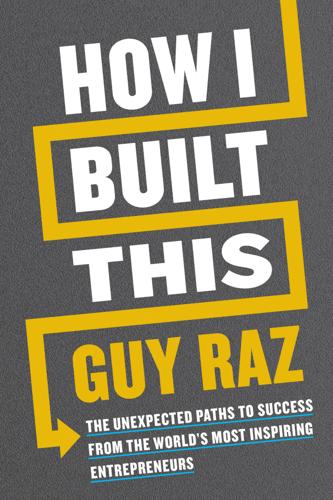
How I Built This: The Unexpected Paths to Success From the World's Most Inspiring Entrepreneurs
by
Guy Raz
Published 14 Sep 2020
They leaned so heavily on personal credit, in fact, that when they finally landed their first professional money ($1 million from a single investor), they couldn’t afford to pay the restaurant bill at the traditional closing dinner because they’d already maxed out all of their cards. If you’ve never started a business, this sounds like the height of irresponsible money management. But there is a name for what Adam and Eric did. It’s called bootstrapping. Bootstrapping is what you do if you don’t have a Rolodex of billionaires to flip through and ask for money; if it’s your first company and you’re going it alone, just you and your partner(s). More specifically, bootstrapping is using what you have at your disposal to get yourself where you want to be. Typically, when we talk about bootstrapping, it’s a financial conversation, and to an extent that will always be true.
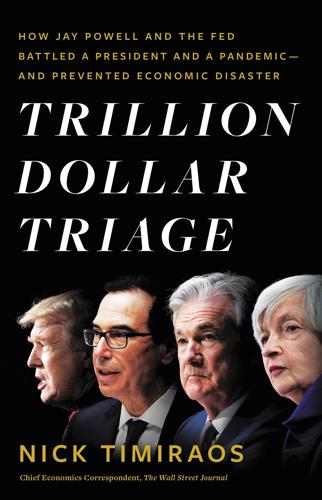
Trillion Dollar Triage: How Jay Powell and the Fed Battled a President and a Pandemic---And Prevented Economic Disaster
by
Nick Timiraos
Published 1 Mar 2022
In June 2007, as the seeds of the mortgage bust were sprouting, Warsh gave a speech hailing the Wall Street trading desks that had churned out increasingly esoteric derivatives and securities. Warsh liked giving speeches with affected, smart-sounding turns of phrase, and this one touted how “financial innovation” had “made markets substantially more ‘complete.’”6 As the crisis accelerated, though, Warsh found his groove. He used his extensive Rolodex to serve as Fed chair Ben Bernanke’s bridge to Wall Street executives. And he proved a loyal guardian of Bernanke in GOP circles. In November 2010, however, Warsh publicly broke with Bernanke’s policy, echoing critiques made in GOP policy circles; for example, that the bond purchases were enabling the White House to hide the cost of a bulge in federal borrowing.
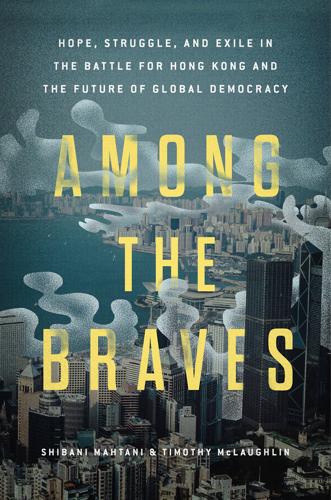
Among the Braves: Hope, Struggle, and Exile in the Battle for Hong Kong and the Future of Global Democracy
by
Shibani Mahtani
and
Timothy McLaughlin
Published 7 Nov 2023
Joshua had entrusted Jeffrey Ngo, the history PhD candidate at Georgetown University, to help him execute his asylum bid.7 Joshua and Jeffrey had operated since 2016 as a team, relentlessly knocking on doors and making inroads with American lawmakers, winning over those who were ignorant about the goings-on in Hong Kong. Their Rolodex boasted an impressive list of staffers and officials in the administration. What was all that for, if not this precise situation? The first part of Joshua’s asylum bid quickly failed. He had arranged a meeting with officers at the US consulate in Hong Kong, hoping they would let him into the consulate premises.
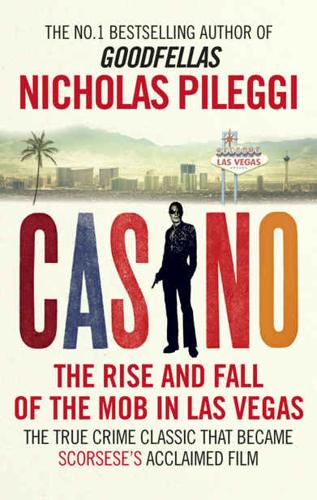
Casino
by
Nicholas Pileggi
Published 13 Aug 2015
I expected her to bring me back some change, but she never did. She never brought me back a penny. “I mentioned it to her once and she said she lost it playing blackjack on the way back to the table. I knew she was lying. I didn’t care about the money. I just didn’t want her playing me for another one of her suckers. She had a Rolodex filled with their names. She knew guys all over the country. Clients. They’d call her up when they were coming to town. They were like friends. Some she drank with. Some she gambled with. Some she took on dates, and there were some where she went all the way. It all depended on what was there for her.
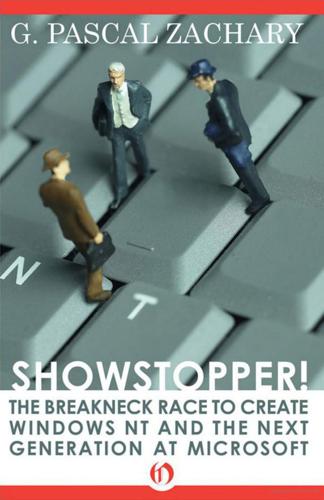
Showstopper!: The Breakneck Race to Create Windows NT and the Next Generation at Microsoft
by
G. Pascal Zachary
Published 1 Apr 2014
While applications were powerful, they made people chop information into separate boxes. For example, a letter to client Bob Jones could be found by opening the word-processing file that held letters. A record of money owed by Jones was in a spreadsheet. Jones’s phone number and address might be in a third application, an electronic Rolodex. Wouldn’t it be easier, Gates wondered, for a person to find all this disparate information with a single request rather than by opening three separate applications? No one really knew the answer. As a rallying cry, “Information at Your Fingertips!” smacked more of salesmanship than engineering, coming at a time when Microsoft’s programs were about as easy to use as an unassembled children’s toy.
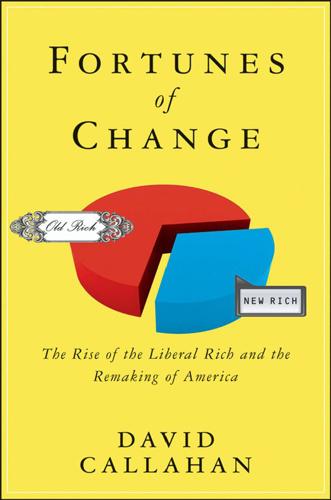
Fortunes of Change: The Rise of the Liberal Rich and the Remaking of America
by
David Callahan
Published 9 Aug 2010
Just as self-financed politicians can block the upward movement of lifelong public servants, so, too, can trustfund activists use their superior resources and connections to snag plum positions within nonprofits. We are used to this phenomenon in other sectors—the way that rich kids can afford to take prestigious unpaid internships in publishing or Hollywood or finance that burnish their résumés or can use Daddy’s Rolodex to get their foot in the door of elite institutions. But it is different when these same advantages come into play in a sector that is explicitly aimed at democratizing U.S. society and reducing inequalities. The leaders of Resource Generation, like the founders of Haymarket and Vanguard decades earlier, suggest that social change c12.indd 266 5/11/10 6:28:19 AM the heirs 267 philanthropy is all about putting grassroots activists and low-income communities in the driver’s seat.

With a Little Help
by
Cory Efram Doctorow
,
Jonathan Coulton
and
Russell Galen
Published 7 Dec 2010
Oh, they were all monsters, narcissistic, tantrum-prone geniuses, but once you got past that, you found yourself talking to people who were, at bottom, damned smart, with a whole lot going on. He met the woman who designed the moss in the Living Room. She was younger than him, and had been catapulted from a mediocre academic adventure at the Cooper Union into more wealth and freedom than she knew what to do with. She had a whole rolodex of people who wanted to sublicense the stuff, and she spent her days toying with them, seeing if they had any cool ideas she could incorporate into her next pitch to one of the lucky few who had the ear of a monster. 2239 Like Leon. That's why they all met with him. He'd unwittingly stepped into one of the agency's top spots, thanks to Ria, one of the power-broker seats that everyone else yearned to fill.

Digging Up Mother: A Love Story
by
Doug Stanhope
Published 9 May 2016
So when pay-day came, it was a gumball rally to be first to the nearest bank to cash it. If you were too late and there were insufficient funds, then you had to endure the process of finding a check-cashing place that didn’t have this company on file as deadbeats. Those pre-Internet days where everything was done on index cards in a Rolodex were golden when it came to scamming the system. I was there for less than a month before they shut down and fled but there were plenty more in town, and if one shut down, you’d have a job at another by the end of the day. Some were really shaky, some almost felt corporate. One had it down to such a science that you could only call people with certain first names—names that were generally of young people.

A Demon of Our Own Design: Markets, Hedge Funds, and the Perils of Financial Innovation
by
Richard Bookstaber
Published 5 Apr 2007
Firms used various strategies, ranging from simple cajoling to offering to do large-scale analysis of the clients’ portfolios, to find out who owned what. Then, the next time a client called asking to trade a bond, the corporate bond salesperson knew where to look for a taker. In two or three years every firm had the name of every investor on one of its salespeople’s Rolodexes. Corporate bond salesmen became the trading floor’s version of used car salesmen. The M&A rush lifted their status. Once pulled in from the dregs of the business night school classes and the back-office ranks, they were now the 34 ccc_demon_033-050_ch03.qxd 7/13/07 2:42 PM Page 35 A NEW SHERIFF IN TOWN prime movers of finance.
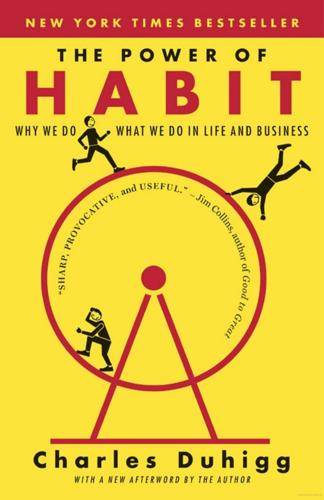
The Power of Habit: Why We Do What We Do in Life and Business
by
Charles Duhigg
Published 1 Jan 2011
She was friends with field hands and college professors.” And the power of those friendships became apparent as soon as Parks landed in jail. Rosa Parks called her parents’ home from the police station. She was panicked, and her mother—who had no idea what to do—started going through a mental Rolodex of Parks’s friends, trying to think of someone who might be able to help. She called the wife of E. D. Nixon, the former head of the Montgomery NAACP, who in turn called her husband and told him that Parks needed to be bailed out of jail. He immediately agreed to help, and called a prominent white lawyer named Clifford Durr who knew Parks because she had hemmed dresses for his three daughters.
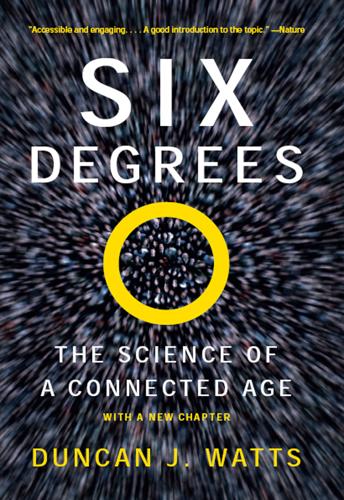
Six Degrees: The Science of a Connected Age
by
Duncan J. Watts
Published 1 Feb 2003
Although Gladwell develops his ideas about the diffusion of ideas from the premise that social contagion operates no differently from disease contagion, his observations are in general agreement with those of the threshold model, provided that the network of decision makers is poorly connected. Gladwell’s connectors come from that rare breed of socially prodigious individuals who not only maintain superhuman Rolodexes but also span many different social groups. And in a world where most people have only a few friends, or solicit very few opinions when making decisions, it does indeed seem that the occasional connector would occupy a position of great influence. But influences can also be stymied if a network is too well connected.
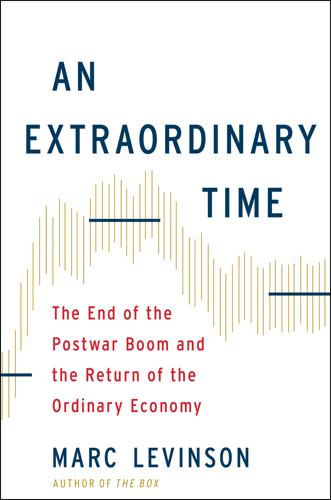
An Extraordinary Time: The End of the Postwar Boom and the Return of the Ordinary Economy
by
Marc Levinson
Published 31 Jul 2016
He was no stranger to the politics of monetary policy, foreign or domestic: in between stints at a commercial bank, he had worked in the Treasury during the Kennedy and Johnson administrations and then, although he was a Democrat, was recruited to take a high-ranking Treasury post in the Nixon administration. As the chief US negotiator during the collapse of Bretton Woods, he owned a Rolodex with the private phone numbers of central bankers and finance ministers from around the world.4 In early 1974, William Simon, deputy secretary of the Treasury and also Nixon’s energy czar, ranked just above Volcker in the Treasury hierarchy. That April, shortly before the embattled president nominated Simon to become secretary of the Treasury, Volcker abruptly resigned.

The Hacker and the State: Cyber Attacks and the New Normal of Geopolitics
by
Ben Buchanan
Published 25 Feb 2020
But while other hackers, such as the North Koreans who targeted Sony, had focused on using socially engineered emails to deliver malicious code to their targets, the Russians used the emails to get key Democratic officials to surrender their passwords. The GRU hooked their biggest fish early: Clinton campaign chairman John Podesta. Podesta had long been a leader in Democratic politics, serving as chief of staff to President Bill Clinton, founding a major DC think tank, and acting as senior counselor to President Obama. His legendary Rolodex, passion for policy, and senior status in the party made him invaluable to the Clinton campaign. Few names were bigger—and few people had more interesting email accounts. It was those emails that the GRU was after. The spear-phishing email to Podesta seemed innocent enough. “Hi John,” it said, “Someone just used your password to try to sign into your Google account.… Google stopped this sign-in attempt.
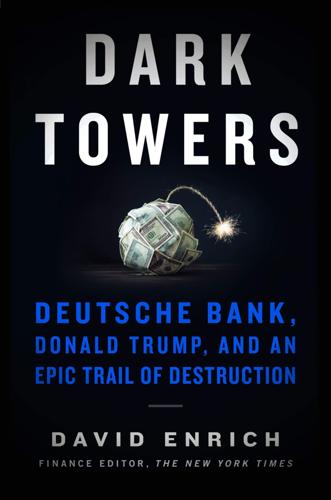
Dark Towers: Deutsche Bank, Donald Trump, and an Epic Trail of Destruction
by
David Enrich
Published 18 Feb 2020
Simpson had asked Val to meet with a man there named John Moscow, an attorney at the law firm BakerHostetler. Moscow was a minor legend in New York legal circles. He had spent thirty-two years as a prosecutor in the Manhattan district attorney’s office, renowned for his victories on big corporate fraud and money-laundering cases. He decamped to private practice in 2005, his Rolodex brimming with contacts in the government, at central banks, at top-tier law firms—and with plenty of journalists, including Simpson. (Most recently, Moscow had hired Fusion to help a BakerHostetler client—a Russian company called Prevezon—that was accused of participating in the theft of hundreds of millions of dollars from the hedge fund of an American investor, Bill Browder.

Naked City: The Death and Life of Authentic Urban Places
by
Sharon Zukin
Published 1 Dec 2009
Cool cultural production created a new, ethnically white, cosmopolitan image of Brooklyn centered on the north side of the borough, in contrast to both more expensive neighborhoods in Manhattan and more traditional ethnic and working-class neighborhoods in Red Hook, Bensonhurst, and Bedford-Stuyvesant. This new image would not have worked, though, if new creative people had not moved into Brooklyn, reversing decades of flight. I first became aware of the talent train to Brooklyn in the mid 80s, when, writing on architecture and design for the [New York] Times, I noticed my Rolodex fattening with 718 [telephone area code] prefixes. Not long after, the borough started getting seriously cool, with all those Robert Wilson productions at BAM [the Brooklyn Academy of Music], plus the imports from the Royal National Theater at BAM’s self-consciously ‘distressed’ annex, the Majestic….

Transaction Man: The Rise of the Deal and the Decline of the American Dream
by
Nicholas Lemann
Published 9 Sep 2019
Silicon Valley’s updated twenty-first-century version was Metcalfe’s law (named after Bob Metcalfe, the inventor of Ethernet technology, which permits direct, noncentralized communication between computer workstations), which has it that the value of a network varies exponentially with its number of users. (As a young engineer helping to design an early automatic teller machine for Chase Manhattan Bank, Bob Metcalfe was given a brief audience with the bank’s chairman, David Rockefeller, who had on his desk a five-foot-wide custom-built Rolodex containing more than a hundred thousand cards. So that’s how the world works, Metcalfe remembers thinking: networks. They’re just not technologically enabled yet.) Networks were a winner-take-all game; one of Peter Thiel’s bad-boy pronouncements was that in network-era Silicon Valley, the only way to make money was to become a monopoly.
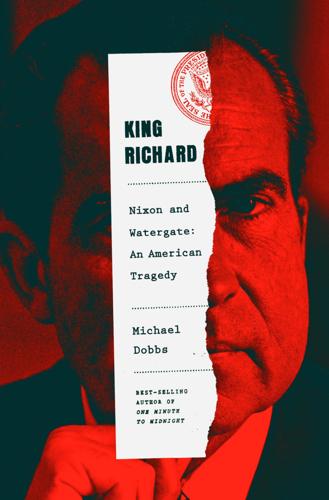
King Richard: Nixon and Watergate--An American Tragedy
by
Michael Dobbs
Published 24 May 2021
Influential commentators had somehow got the idea that Kissinger was the adult in the room restraining a trigger-happy commander in chief. As he shuttled between world capitals, the national security adviser had become a personality in his own right. His jet-setting image was enhanced by paparazzi images of him arm in arm with well-known actresses like Candice Bergen, Raquel Welch, and Jill St. John. But Kissinger’s Rolodex did not only include beautiful women. In the name of promoting a bipartisan foreign policy, he reached out to Democrats, academics, and journalists, many of whom were fixtures on Nixon’s enemies list. It seemed to Nixon that Henry could never resist a request for a meeting or a press contact that would cast him in a positive light.
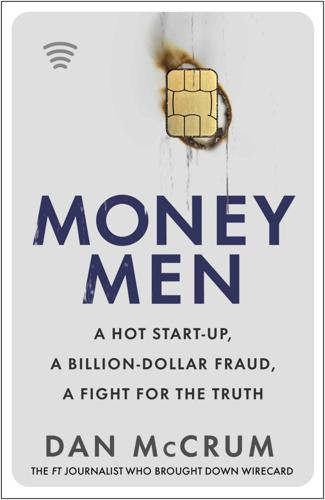
Money Men: A Hot Startup, a Billion Dollar Fraud, a Fight for the Truth
by
Dan McCrum
Published 15 Jun 2022
The CEO was the one person who seemed to hold his attention, and he took care to fill his workmates in on what was ‘important to Markus’. Marsalek was clearly exceptionally intelligent, a product of Vienna’s Lycée Français who spoke multiple languages, but he lacked formal qualifications and had never worked anywhere else. While he was cunning, knew technology and how to deal with people, he simply didn’t have the rolodex or experience of the man whose shoes he had to fill. He also swaggered into the job just as the world changed. Along with the shift in attitudes towards gambling, ubiquitous free porn was upending the economics of skin. Meanwhile, the economic crash meant that in millions of households credit card bills were opened and scrutinized properly for the first time in years.

Tripping on Utopia: Margaret Mead, the Cold War, and the Troubled Birth of Psychedelic Science
by
Benjamin Breen
Published 16 Jan 2024
Both had served in the Army, but whereas Leary’s service in World War II consisted of office jobs, Barron had seen war up close as a field psychologist in Europe. He became the chief ringleader for what Leary thought of as his “bardic” tendencies: drunkenness, mysticism, and machismo. But he was also an important intellectual force in the Bay Area psychological community, helping originate the scientific study of creativity. Barron’s Rolodex was stuffed with interesting names, and he enjoyed nothing more than smashing them together like the high-energy particles that careened into one another in the cyclotron—the particle accelerator used in atomic energy experiments—that lay hidden behind a security fence in the Berkeley Hills. It was Frank Barron who first introduced Tim and Mary.

The Best of 2600: A Hacker Odyssey
by
Emmanuel Goldstein
Published 28 Jul 2008
Some companies will not process your last bonus checks, expense reports, or even paychecks if you do not turn in certain files in a timely manner. This is largely a response to having salespeople take their rolodexes with them as they leave the company. I won’t get into the legal aspects of who owns this information. You’ll probably end up giving them the information. So what? The important thing is that you give your company the wrong information. Keep a “shadow” rolodex complete with incorrect rate quotes, inaccurate notes, and not-so-glaring omissions. You want the Rolodex/address book to be considered the real thing until those last checks come through. You will have no choice but to turn in your computer, of course.

The Gang That Wouldn't Write Straight: Wolfe, Thompson, Didion, Capote, and the New Journalism Revolution
by
Marc Weingarten
Published 12 Dec 2006
In the winter of 1965, Lynn Nesbit, a twenty-five-year-old junior agent, contacted Wolfe about taking him on as a client. “Lynn called me out of the blue,” according to Wolfe, “and said, ‘Don’t you know you have a book here?’” Nesbit, who had started out as a secretary for leading agent Sterling Lord and thus came armed with a solid Rolodex, suggested to Wolfe that a collection of his stories might be something she could sell. “I was this fresh-faced girl from the Midwest, but Tom liked the fact that I was a straight shooter,” said Nesbit. “He was actually thinking about writing a novel at that time, but I loved his work, so he took a chance on me, I’m not sure why.”
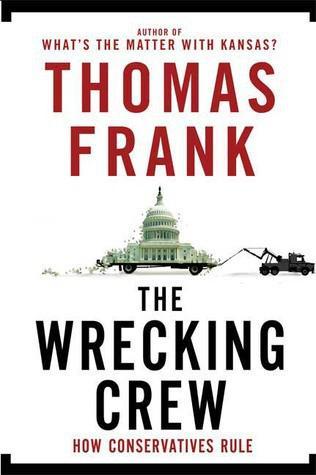
The Wrecking Crew: How Conservatives Rule
by
Thomas Frank
Published 5 Aug 2008
In the past, he related, people “around town” would say, “Shaw Group, we never heard of y’all.” But today Shaw men were walking tall in the corridors of power. “Right now, I’m sure that with the large contracts that we have been receiving,” Badolato boasted, “everybody [every subcontractor, that is] who had my name in a Rolodex . . . has been calling me and everyone else they knew at Shaw to get a piece of that.” He gave a shout-out to “our consultants, people who really delivered the bacon to us . . . when we needed it”; reminded the crowd that Shaw had done “a lot of lobbying and consulting efforts, both in Louisiana and in Washington”; and allowed that this “really pays off when it’s time to get some contracts.”

Radical Technologies: The Design of Everyday Life
by
Adam Greenfield
Published 29 May 2017
Though more formal identity-authentication documents, notably driver’s licenses and passports, are among the few personal effects to have successfully resisted assimilation to the smartphone, it remains to be seen how much longer this is the case. What else disappears from the world? Address books, Rolodexes and “little black books.” The directories, maps and guidebooks of all sorts that we used to navigate the city. Loyalty and other stored-value cards. And finally money, and everything it affords its bearer in freedom of behavior and of movement. All of these have already been transfigured into a dance of ones and zeroes, or are well on their way to such a fate.
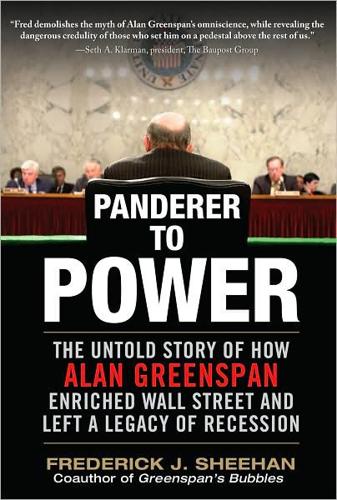
Panderer to Power
by
Frederick Sheehan
Published 21 Oct 2009
The annual inflation rate of goods (the CPI: Consumer Price Index) rose to 18 percent, short-term Treasury bills traded at 17 percent; and the 30-year bond yielded 15.6 percent. 46 Ibid., p. 276. 47 Ibid., p. 277. 48 William Greider, Secrets of the Temple: How the Federal Reserve Runs the Country (New York: Simon and Schuster, 1987), p. 337. Greenspan Expands His Rolodex The American public was at sea. It didn’t know what was coming next, so it turned to economists for answers. One who soon acquired national attention was Alan Greenspan. Time magazine organized an illustrious Board of Economists that met four times a year. Alan Greenspan joined in 1971. He now had the opportunity to develop kinships with other members, including Otto Eckstein [formerly a member of President Johnson’s Council of Economic Advisers (CEA)], Walter Heller (former chairman of the CEA), Arthur Okun (former chairman of the CEA), Beryl Sprinkel (future CEA chairman during the Reagan administration), and Robert Triffin (early forecaster of the Bretton Woods disaster).
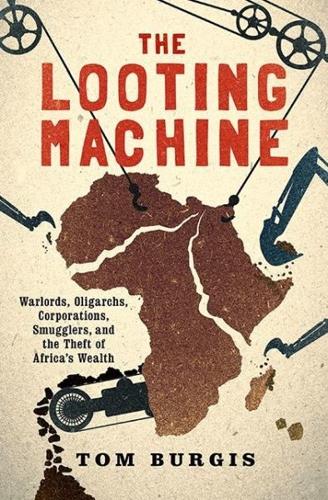
The Looting Machine: Warlords, Oligarchs, Corporations, Smugglers, and the Theft of Africa's Wealth
by
Tom Burgis
Published 24 Mar 2015
Mailey, an American researcher who was part of the congressional research team that first identified the Queensway Group and coined its name, has developed an encyclopedic knowledge of Sam Pa’s corporate empire. I asked him what he thought would become of the Queensway Group. ‘Even if Queensway’s business empire crumbles, everything that allowed Sam Pa to rise in the first place is still there. He still has the Rolodex; he still knows how to get close to elites in fragile states. Most importantly he knows how to operate under the radar and just beyond the reach of law enforcement. If it weren’t him, it would be someone else. The system is still there: these investors can still form a company without saying who they are, they can still anchor their business in a country that is not concerned about investors’ behaviour overseas, and, sadly, there’s no shortage of resource-rich fragile states on which these investors can prey.’53 Sino Zim gave up its concession in Zimbabwe’s diamond fields, saying it was ‘commercially unviable’.
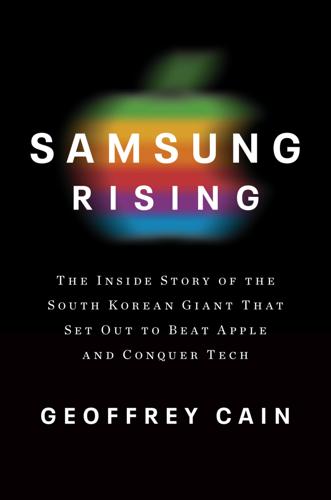
Samsung Rising: The Inside Story of the South Korean Giant That Set Out to Beat Apple and Conquer Tech
by
Geoffrey Cain
Published 15 Mar 2020
Peter was a rambunctious Madison Avenue advertising executive known for his eccentric ideas and aggrandizing demeanor, who’d branded Donna Karan’s wildly successful DKNY, among other companies. Arnell had a booming presence and an unconventional portfolio. He had grown up in relative poverty and had worked at the fringes of boutique advertising before joining the ranks of Madison Avenue. Despite weighing three hundred pounds, he dashed from meeting to meeting with a Rolodex of high-powered contacts, from Martha Stewart to Celine Dion, on speed dial. Sometimes he would show up for meetings at his office, which was filled with model spaceships and Star Wars toys, in a tennis outfit, barely stopping to catch his breath. “I did all the ad work myself,” Arnell said. “I did the concepts and I shot my own photos.”
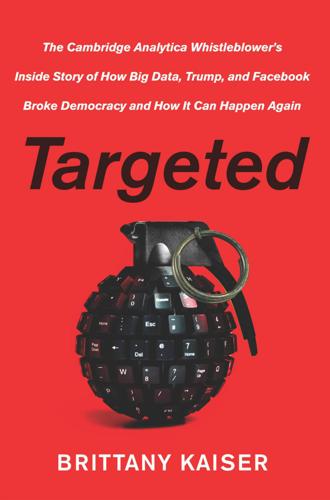
Targeted: The Cambridge Analytica Whistleblower's Inside Story of How Big Data, Trump, and Facebook Broke Democracy and How It Can Happen Again
by
Brittany Kaiser
Published 21 Oct 2019
He made it clear that if I wanted to chase social or humanitarian projects, I had to bring in money to fund them. He gave me his blessing to continue my work on post-Ebola Africa, a project I was interested in doing with the World Health Organization and the governments of Liberia and Sierra Leone. With Chester’s help, and with his unrivaled Rolodex of contacts, I would approach each and see if I could get a literal buy-in. Alexander also suggested that I look into upcoming elections. He asked me to follow up with Chester’s prime minister and with the Central Asian men he had pitched at the sushi restaurant where he and I first met. We looked at other leads as well.
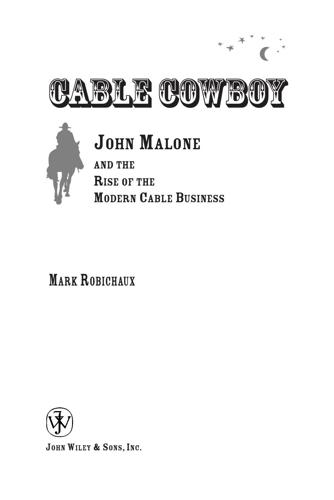
Cable Cowboy
by
Mark Robichaux
Published 19 Oct 2002
Having failed, they f lew back to Denver to try, once more, to dissuade Donne Fisher, a coexecutor of the estate, from selling. The sons claimed Fisher and Ritchie hadn’t genuinely solicited bids for the sale of the stock. The executors, they said, did nothing more than “thumb through their own Rolodexes.” The Magnesses said the deal was a “fire sale” carried out by the executors at “breakneck pace” to discourage other bidders. All this was done, the boys claimed, because the two executors were fearful of “pissing off John Malone.” 5 The Magnesses’ most enthusiastic objection was against Fisher, their father’s longtime close friend.

Build: An Unorthodox Guide to Making Things Worth Making
by
Tony Fadell
Published 2 May 2022
We were trying to build an iPhone years before it was a glimmer in Steve Jobs’s eye. And you know what utterly beat us? Palm. Because Palm PDAs let you put the phone numbers you kept on scraps of paper or on your desktop computer into a device that you could carry with you. That’s it. That simple. You couldn’t jam a Rolodex into your pocket or purse, so Palm was the right solution for the time. It made sense. It had a reason to exist. General Magic did not. We started from the technology—focusing on what we could create, what would impress the geniuses at our company—not the reason why real, nontechnical people would need it.

Your Face Belongs to Us: A Secretive Startup's Quest to End Privacy as We Know It
by
Kashmir Hill
Published 19 Sep 2023
Ton-That, Johnson, and Schwartz wanted to offer him their services. The Smartcheckr team had been busy in the months since Trump took power. Three months after the inauguration, in early April 2017, Hoan Ton-That reached out to a man named Eugene Megyesy, an adviser to Orbán whose contact information Charles Johnson had in his right-wing Rolodex. “Hi Gene,” wrote Ton-That in his email, with Johnson and Schwartz cc’d. “Attached is a summary overview of our background-search system, Smartcheckr, and how, we believe, it can help support Hungary in its border-security and enforcement efforts.” Attached to the email was a PowerPoint presentation entitled “Smartcheckr: The Future of Border Security.”

The Coke Machine: The Dirty Truth Behind the World's Favorite Soft Drink
by
Michael Blanding
Published 14 Jun 2010
By the time he got the call from Collings worth, his strategy of going after interlocking financial interests was well established. From the very beginning, however, he saw a new weakness he could exploit in the fight against Coke: its brand. The Campaign to Stop K iller Coke began in April 2003 with a letter to Rogers’s Rolodex of union contacts. “We need your help to stop a gruesome cycle of murders, kidnappings, and torture,” the letter began, bear ing an image of a Coke can with—in the same expressive Spencerian script 2 18 THE COKE MACHINE Frank Robinson had so indelibly created more than a hundred years before— the words “Killer Coke.”
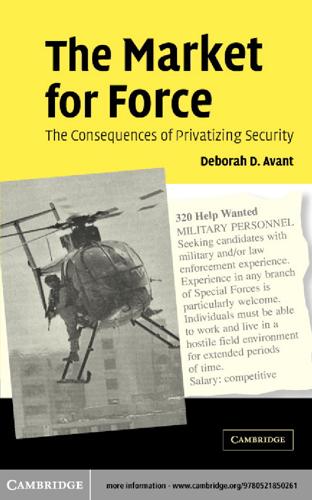
The Market for Force: The Consequences of Privatizing Security
by
Deborah D. Avant
Published 17 Oct 2010
It is transnational with PSCs recruiting from and selling to a variety of state and non-state entities. Also, PSCs incur few costs from moving. Most firms operate with a small full-time contingent and a large database from which to draw teams to carry out contracts. Though many are more than “a retired military guy sitting in a spare bedroom with a fax machine and a Rolodex,”87 firms offering private security services generally have little capital and are not attached to a particular location. Indeed, PSCs have a fluid structure and can rapidly dissolve and recreate themselves as need be.88 This has been most visible in South Africa, but also in the UK. Furthermore, PSCs often set up counterparts in many different regions – British based DSL has some twenty subsidiaries or counterparts.

The One Device: The Secret History of the iPhone
by
Brian Merchant
Published 19 Jun 2017
Instead of feeling dead, like it’s not responding.” These small details, which we now take for granted, were the product of exhaustive tinkering, of proof-of-concept experimenting. Like inertial scrolling, the wonky-sounding but now-universal effect that makes it look like and feel like you’re flipping through a Rolodex when you scroll down your contact list. “I had to try all kinds of things and figure out some math,” Ording says. “Not all of it was complicated, but you have to get to the right combinations, and that’s the tricky thing. ” Eventually, Ording got it to feel natural. “He called me back a few weeks later, and he had inertial scrolling working,” Jobs said.
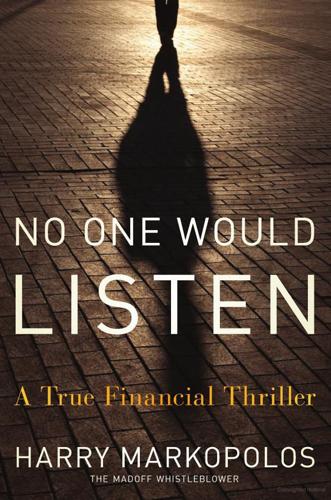
No One Would Listen: A True Financial Thriller
by
Harry Markopolos
Published 1 Mar 2010
I certainly didn’t think of myself as a detective. I didn’t own a trench coat like Lieutenant Columbo, I had no physical handicap to overcome like Ironsides, and instead of a talking car to help me like Michael Knight had in Knight Rider, I had Neil and Frank. The only weapons we had were our knowledge of the numbers and our Rolodexes. What I did have in addition, though, was my experience in the purloined fish case and very good military training. I had served 17 years as a commissioned officer in the army’s reserve components, seven of those years in a special operations unit as a member of a civil affairs team. I had also served for many years under Major General Boyd Cook as he worked his way up the chain of command from the rank of colonel.
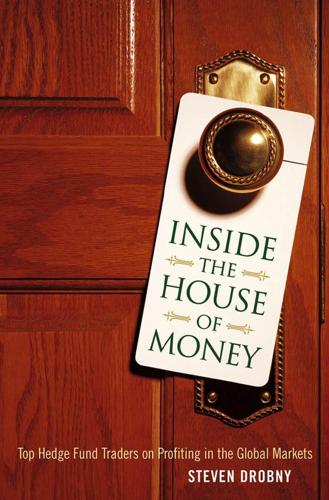
Inside the House of Money: Top Hedge Fund Traders on Profiting in a Global Market
by
Steven Drobny
Published 31 Mar 2006
I thought I got roasted, but by the time I got back to my desk, there was already another message inviting me to another breakfast. Julian had started trading commodities in 1993 with good performance and wanted to expand this area because he was excited by it and it fit the Tiger investing style. What must have happened is that he opened his Rolodex, flipped to commodities, and it was empty except for me. Had you developed your thought processes and trading theories in commodities yet or were you still pretty green? There’s no question I was green, and I had strong opinions but I didn’t know anything—I shouldn’t have had strong opinions.When I look back now at those opinions and how superficial my knowledge and experience were, I’m scared witless by some things I said and did.
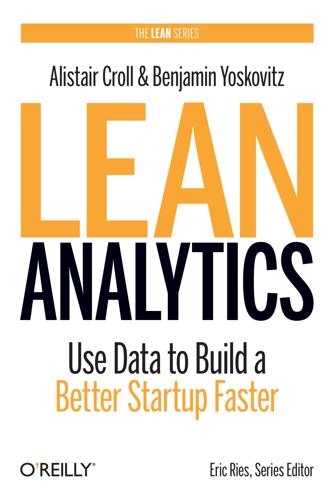
Lean Analytics: Use Data to Build a Better Startup Faster
by
Alistair Croll
and
Benjamin Yoskovitz
Published 1 Mar 2013
It’s hard to inspire an organization if its employees are busy wondering whether the changes you promise will cost them their jobs. This is an unnecessarily bleak view of the world. For all these reasons, most B2B-focused startups consist of two people: a domain expert and a disruption expert. The domain expert knows the industry and the problem domain. He has a Rolodex and can act as a proxy for customers in the early stages of product definition. Often this person is from the line of business, and has a marketing, sales, or business development role. The disruption expert knows the technology that will produce a change on which the startup can capitalize. She can see beyond the current model and understand what an industry will look like after the shift, and brings the novel approach to the existing market.

Red Notice: A True Story of High Finance, Murder, and One Man's Fight for Justice
by
Bill Browder
Published 3 Feb 2015
I had no interest in subscribing. “That’s a little out of my price range.” He laughed. “Tell you what, Bill. Since we were at Stanford together, I’ll send you some back issues for free.” “Great. Thanks.” Next, I turned to the pile of business cards on my desk. If I’d been a London investment banker, my Rolodex would have been bursting with embossed cards on thick stock. In Russia, my collection was humbler. Some were printed on cardboard. Others were orange or green or light blue. Some looked as if they’d been printed on a home computer. Two cards were stuck together because of cheap ink. Still, I went through them.
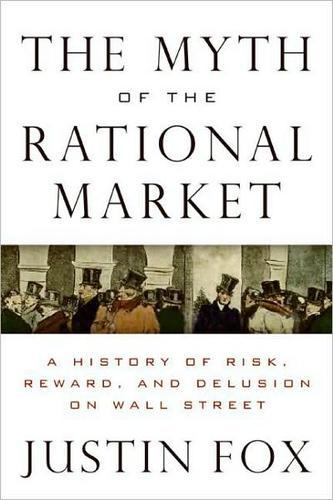
The Myth of the Rational Market: A History of Risk, Reward, and Delusion on Wall Street
by
Justin Fox
Published 29 May 2009
In typically earnest fashion, Fisher responded, “Yes, it would be correct, if the statement was preceded by the question ‘Have you no bananas?’”27 By the second half of the 1920s, Fisher had also become a big financial success. Years before, he had devised a card-filing system to help him keep track of his many endeavors. Fisher’s “Index Visible” filing cards, cut so that the first line of each was visible at a glance (similar to the Rolodex, which came along decades later), were a significant advance in information storage and retrieval. In 1913 he launched a company to manufacture and market his filing system, and in 1925 he sold it to office equipment maker Kardex Rand, which merged with typewriter titan Remington to create one of the hot technology stocks of the 1920s, Remington Rand.
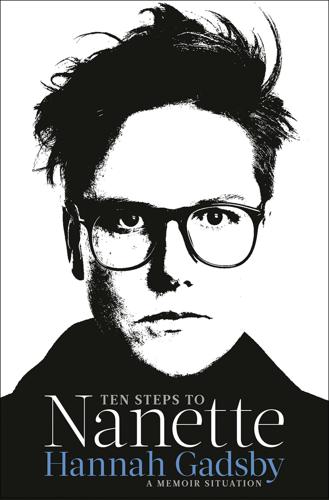
Ten Steps to Nanette: A Memoir Situation
by
Hannah Gadsby
Published 15 Mar 2022
Heading into any kind of new situation, I’d run through all the scenarios I was able to imagine and then prepare my responses ahead of time. The older I got and the more experience I gathered, the more complex the situations I was able to imagine and the better I got at responding. But below the surface, my brain was always doing intense levels of manual labor, the duck legs of my thinking whirring through the Rolodex of possibilities I had prepared earlier. It was as exhausting as it was distressing. No wonder I was burnt out by fifteen. If I was struggling with my grades, then I was failing dismally at all things social. By the end of primary school I had worked out how to be friendly, which was enough for a while, but once I hit the tweens, shit got messy really quick.
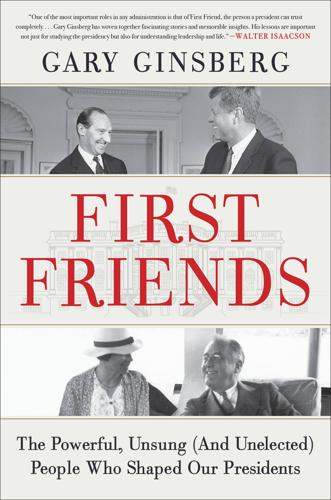
First Friends: The Powerful, Unsung (And Unelected) People Who Shaped Our Presidents
by
Gary Ginsberg
Published 14 Sep 2021
The men would enjoy a productive and healthy partnership until 1999, when they had a bitter falling-out after Clinton’s impeachment for lying about his affair with Monica Lewinsky and Gore’s seething assessment that it had cost him the presidency in 2000. Of all the roles Jordan would play throughout his friend’s presidency, helping navigate the treacherous waters of presidential personnel was among the most important. No one could equal the size or quality of his Rolodex, his judgment of human character, or his ability to persuade. “His genius was his charm,” George Stephanopoulos, one of Clinton’s closest aides during the campaign and through the first term, said. “His smile, his voice, his size, his looks, his capacity to pay attention to you, all of it in combination could just get you to do anything without realizing it was really him that was pushing it.

The Unicorn's Secret
by
Steven Levy
Published 6 Oct 2016
During his tenure at the Kennedy School, he had freely used the stationery and the mailing address to win a new set of contacts, some of whom assumed they were dealing with a Harvard professor. He had met dozens of power brokers, influential academics, and people who pulled political strings behind the scenes. He was entered into any number of important Rolodexes as an unorthodox, entertaining, and possibly helpful contact into future studies, paranormal phenomena, radical management styles, and the counterculture. His stock in the lecture circuit was definitely a buy. All during his stay at Harvard, though, private investigator J. R. Pearce had been investigating Holly Maddux’s disappearance.

Bottle of Lies: The Inside Story of the Generic Drug Boom
by
Katherine Eban
Published 13 May 2019
Her company made millions, she became a major donor to the Democratic Party, and she was on a first-name basis with the Clintons. Varis was immediately taken with Parvinder and his colleagues. “They were brilliant,” she recalled in 2010, the year before her death. “They were gorgeous. They dressed beautifully. Their English was perfect. I felt they were on a very high standard.” With her pharmaceutical know-how and golden Rolodex, she would become their political benefactor in their quest to sell finished doses in the United States. Back in India, as the company drove to expand, Bhai Mohan was looking to ensure family peace. In 1989, at age seventy-one, he split the growing family businesses among his three sons, a settlement intended to ensure an amicable division before he died.

Evil Genes: Why Rome Fell, Hitler Rose, Enron Failed, and My Sister Stole My Mother's Boyfriend
by
Barbara Oakley Phd
Published 20 Oct 2008
In reality his knowledge was often limited to what he'd happened to skim a few pages of—but which he could recite practically verbatim.89 On the Communist side, repressive dictator Fidel Castro early on showed far more interest in sports than in academics, but he caught the attention of his teachers with his remarkable memory, which he used to easily memorize entire books.90 And if communism's grand progenitor, Stalin, was different from many dictatorial wannabes, it was only in his intellect and, perhaps most importantly, his “rolodex of a memory.”91 One railways commissar who had reported to Stalin hundreds of times pointed out, “One felt oppressed by Stalin's power, but also by his phenomenal memory and the fact that he knew so much. He made one feel even less important than one was.”92 Mao and Milosevic were similarly blessed with remarkably good memories.

The Marginal Revolutionaries: How Austrian Economists Fought the War of Ideas
by
Janek Wasserman
Published 23 Sep 2019
It originated in opposition to German economic thought and Habsburg conservatism. It flourished in the interwar years through its connections to US philanthropic organizations. It successfully migrated to the Anglophone world during the war years thanks to these connections. Its members developed transnational networks of intellectuals and free-market activists using their Rolodexes of like-minded scholars and wealthy elites. A better testament to the legacy of the original school came from its members themselves in one of the final familial gatherings. Into the 1990s, Herbert Furth convened a Geist-Kreis-style session at his home in the Washington, DC, suburbs for his Viennese friends.

The Lufthansa Heist: Behind the Six-Million-Dollar Cash Haul That Shook the World
by
Henry Hill
and
Daniel Simone
Published 31 Jul 2015
“An ex-inmate, who did about eight years for sodomy. While in prison, some of these felons study law and learn more than us attorneys. And they’re certainly up on all the latest rules of the inside world. So they can be helpful to someone going in for the first time. He can make your life easier during your confinement.” He riffled through a Rolodex on his desk and found the phone number to his colleague’s office. “Here . . . here it is. Jimmy, Henry, take down this phone number. I’m going to call him and let him know you’ll be in touch with his prize paralegal.” My wife, Karen, a brunette with neck-length hair and a slender but curvy body, couldn’t imagine living alone for ten years.
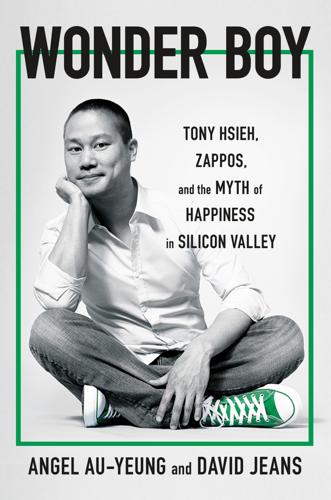
Wonder Boy: Tony Hsieh, Zappos, and the Myth of Happiness in Silicon Valley
by
Angel Au-Yeung
and
David Jeans
Published 25 Apr 2023
“It wasn’t just a partial change but a complete brand identity change,” said Jen Louie, who was eventually hired by Andy and given the title of head of strategic partnerships at Lux Delux. Prior to signing on with Lux Delux, she was an independent business development and marketing consultant who had a deep Rolodex in Vegas. Her brother, David Louie, also worked at Lux Delux in a similar capacity and had a close working relationship with Andy. By Jen’s recollection, Andy put everything he had into his startup and worked as hard as anyone in the company. Despite her hefty-sounding title, Jen kept her other client work.
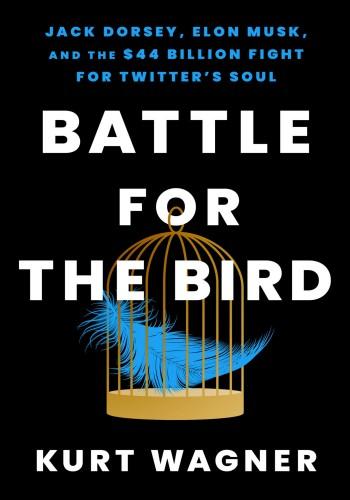
Battle for the Bird: Jack Dorsey, Elon Musk, and the $44 Billion Fight for Twitter's Soul
by
Kurt Wagner
Published 20 Feb 2024
Musk, too, was hustling for the money and joined calls with potential banking partners to share his rough business plan. He promised to make dramatic cost cuts at Twitter, including layoffs, if the deal went through, and discussed the idea of expanding Twitter’s business to focus more on subscriptions. Billionaires typically know a lot of other billionaires, and Musk’s Rolodex also proved handy. In some cases, like with Oracle founder and Tesla board member Larry Ellison, a billion-dollar commitment came together as quickly as if Musk was asking to borrow five dollars for a cup of coffee. Musk texted Ellison on April 20, one week after sending the offer letter to Twitter’s board: MUSK: Any interest in participating in the Twitter deal?

The War Below: Lithium, Copper, and the Global Battle to Power Our Lives
by
Ernest Scheyder
Published 30 Jan 2024
Many so-called junior miners thrive on this kind of exploratory work and then typically hand off their discoveries to i-bankers such as Phillips, who then work to sell the newfound discovery—or the entire company behind it—to the highest bidder, or at least to investors to help develop it. In the nearly three decades of his career, Phillips had helped sell or lend more than $100 billion—a sizable sum, and one that showed the new executive’s skill set. He had also worked with Barrick and Newmont, two of the world’s largest gold companies, an indication that his Rolodex was brimming with top industry connections. Two days after the July Fourth holiday, WCP officially hired Phillips as its CEO with the express purpose of “value creation” for the company’s shareholders, a Wall Street term with a very clear meaning: sell the company or get the stock price soaring.
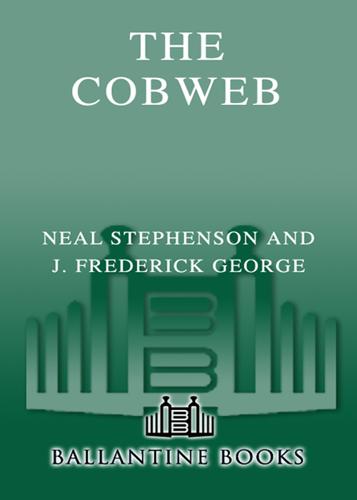
The Cobweb
by
Neal Stephenson
and
J. Frederick George
Published 31 May 2005
Clyde hated working at the jail and knew that Sheriff Mullowney had been giving him lots of jail duty just to harass him, but Ebenezer had taught him not to whine. So he skipped over that part. “I was talking to Mark Becker.” “Who’s Mark Becker?” Terry said, suddenly intrigued at the prospect of adding a new name to his mental Rolodex of behind-the-scenes movers and shakers. “One of the prisoners,” Clyde said. Terry screwed up his face with disgust and looked away. When he turned back, he was wearing an expression of patient, fatherly disappointment. “Now, why are you talking to people like that?” “When I’m on jail duty,” Clyde said defensively, “I can’t help but talk to ’em.
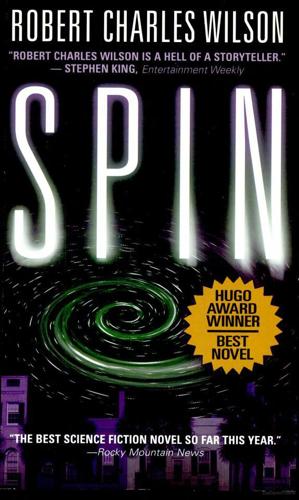
Spin
by
Robert Charles Wilson
Published 2 Jan 2005
But it couldn't be the machine Moll was curious about. It was five years old, nearly an antique. She used more sophisticated gear at work. And I had recognized the program she'd been in such a hurry to close when I came through the door. It was my household tracker, the program I used to pay bills and balance my checkbook and Rolodex my contacts. "Kind of looked like a spreadsheet," I said. "I wandered in there. Your desktop confused me. You know. People organize things different ways. I'm sorry, Tyler. I guess I was being presumptuous." She jerked her hand out from under mine and clicked the shut-down tag. The desktop shrank and I heard the processor's fan noise whine down to silence.

An Empire of Wealth: Rise of American Economy Power 1607-2000
by
John Steele Gordon
Published 12 Oct 2009
By the summer of 1929 Wall Street and its millions of customers were deeply out of touch with the underlying economy, visions of riches dancing in their heads. Broker’s boardrooms were full of people watching prices, and even normally sensible and knowledgeable people were caught up in the frenzy. Irving Fisher, a nationally known professor of economics at Yale, who had made a fortune by inventing the Rolodex, opined that “stock prices have reached what looks like a permanently high plateau.” The Saturday Evening Post printed a poem that summer that caught the mood of the country. Oh, hush thee, my babe, granny’s bought some more shares Daddy’s gone out to play with bulls and the bears, Mother’s buying on tips, and she simply can’t lose, And baby shall have some expensive new shoes!
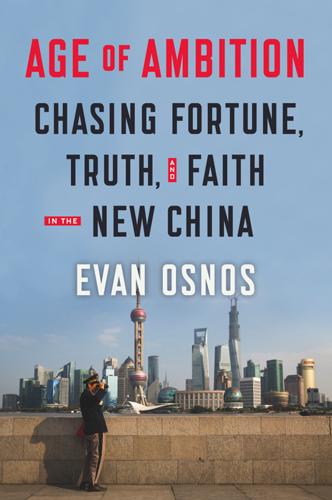
Age of Ambition: Chasing Fortune, Truth, and Faith in the New China
by
Evan Osnos
Published 12 May 2014
At another was Wang Boming, the son of a former ambassador and vice foreign minister; Wang had studied finance at Columbia and worked as an economist in the research department of the New York Stock Exchange. They enlisted the support of rising stars in the Party, such as Wang Qishan, who was the son-in-law of a vice-premier, and Zhou Xiaochuan, a reform-minded political scion. She began hanging around and ended up with a string of scoops and, eventually, an incomparable Rolodex of names destined for China’s highest offices. (Wang Qishan reached the Standing Committee of the Politburo; Gao Xiqing became head of China’s sovereign wealth fund; Zhou Xiaochuan ran China’s central bank.) Later, many people in Beijing whispered that these connections protected Hu, but she insisted that outsiders overestimated her proximity to power.
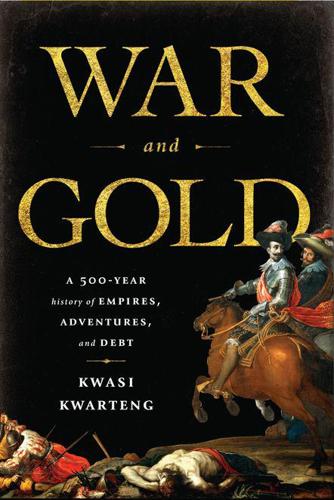
War and Gold: A Five-Hundred-Year History of Empires, Adventures, and Debt
by
Kwasi Kwarteng
Published 12 May 2014
In a flattering profile in Time, he was said to be ‘tall and sharp with the features of a falcon’, dominating meetings ‘with his quick mind’. ‘“His IQ must be 200,” deputy US Treasury Secretary Lawrence Summers once said.’ The favourable magazine article referred, in tones of reverence, to Zhu’s ‘rolodex memory’ and ‘endless energy’. Zhu was also something of an intense, controlled obsessive. He read, Time assured its readers, ‘many of the 16,000 letters’ he received every year from citizens with grievances. To the magazine this seemed a trivial use of his time: ‘he should not be doing that too often’, because a man of his importance ‘should be dealing with the big problems’.16 It would be a mistake, however, to believe as many did that Zhu was a committed capitalist, always ready to defer to the law of the free market.
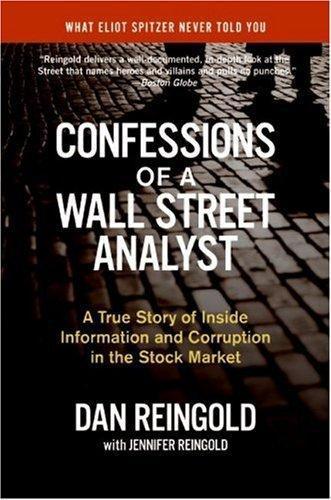
Confessions of a Wall Street Analyst: A True Story of Inside Information and Corruption in the Stock Market
by
Daniel Reingold
and
Jennifer Reingold
Published 1 Jan 2006
I could always make just one more call, and that’s what I tried to do to stay ahead. I was the hard worker after all, not the intuitive genius. Just as for a candidate for county sheriff, face time played a big part in the care and feeding of clients. Every Sunday night, I’d sit down and go through my Rolodex to determine who I should contact that week. I organized my clients by geography. “Boston” meant Fidelity, Putnam, State Street Research, State Street Bank, Wellington, and MFS, among others. It was customary for analysts to go to Boston twice a year, so I ramped it up to three times once I learned from some of that extra survey information that I.I. was happy to provide—for a fee—that I was ranked second to Jack Grubman by Boston voters.
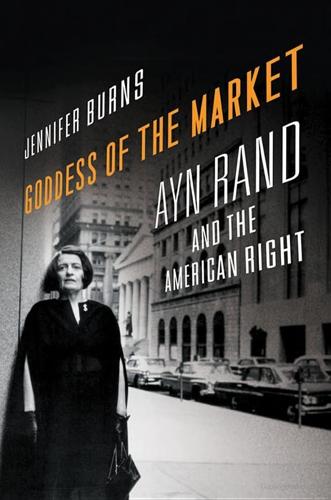
Goddess of the Market: Ayn Rand and the American Right
by
Jennifer Burns
Published 18 Oct 2009
It was well funded, courtesy of corporate supporters including Chrysler, General Motors, Monsanto, Montgomery Ward, and U.S. Steel, and received its single largest donation from the Volker Fund. The Foundation got off to a quick start primarily through the charms of Read. Armed with a formidable Rolodex and an affable personality, Read inspired confidence in business donors and intellectuals alike. Even the dyspeptic Paterson pronounced him “good stuff.”40 He quickly ensconced the new organization in a rambling Westchester County mansion, a short trip from New York. From these headquarters FEE sponsored seminars with libertarian professors and commissioned writing on the free market ideal.

Dark Mirror: Edward Snowden and the Surveillance State
by
Barton Gellman
Published 20 May 2020
There he made himself a plague upon Google and Facebook with forensic work that proved they spied illegally on their users. Since then he had earned most of his living as a consultant to state attorneys general who wanted to sue technology companies in New Jersey, California, Ohio, and New York state courts. Compact and charismatic, Soltani had a Rolodex of admirers across government, industry, and university lines, even, somehow, in the companies he had shamed. His impromptu “tech policy cocktail hours,” set up on the fly as he traveled, filled the back rooms of dive bars in Washington, San Francisco, and New York. In April 2013, six or seven weeks before the Snowden stories went public, I asked Soltani to take a long walk with me in Battery Park at the southern tip of Manhattan, leaving our electronic devices behind.
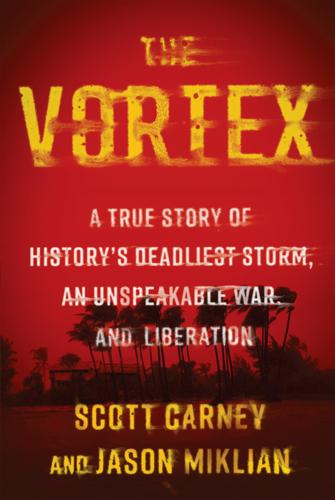
The Vortex: A True Story of History's Deadliest Storm, an Unspeakable War, and Liberation
by
Scott Carney
and
Jason Miklian
Published 28 Mar 2022
She wasn’t just the country’s premier distributor of carnal services; she was an essential data conduit to and for the elite. Yahya and Rani floated in the same social circles, sharing a deep bond. Yahya loved the conversations at elegant dinner parties, the dripping high society of it all, and how even the air in the room could smell sophisticated. He loved seeing and being seen, and Rani helped him fill his Rolodex with the country’s best singers, artists, and actors. Yahya started to import music and soon boasted the country’s best and most up-to-date collection of 1960s swinging London vinyl sounds. Rani played matron, prying the whiskey bottle from Yahya’s hand on the nights when he emptied it too fast. As word spread of her deepening access into the country’s political elite, Rani’s client list grew.

Corporate Warriors: The Rise of the Privatized Military Industry
by
Peter Warren Singer
Published 1 Jan 2003
Similarly, at least several dozen firms based in the United States specialize in providing tactical and consultative military services.10 Another 60 such firms work in the demining sub- sector.17 If one broadens the counting of PMFs to include back-end military support firms, or diversified firms, the number multiplies. Smaller organizations that primarily operate overseas, are thought to be even more numerous, but are harder to track. Many are chartered all over the world in corporate friendly locales and are often little more than a letterhead and a Rolodex file or database of willing employees. In Africa alone, close to 100 of such private firms come and go. Examples include: Omega Support, Southern Cross Security, Panasac, Bridge Resources, Corporate Trading International, Longreach PTVLtd., and Strategic Concepts.18 Due to the industry's youth, there still appears to be significant market space open for new companies.

Track Changes
by
Matthew G. Kirschenbaum
Published 1 May 2016
Authors he advised in this capacity include Gregory Benford, Gordon R. Dickson, Joe Halderman, his onetime mentor Robert Heinlein, Frank Herbert, Robert Silverberg, and others. In a 1982 correspondence with Silverberg, he is able to rattle off the names of other writers and their systems or software as though reciting from a Rolodex: “Norman Spinrad recently bought a Kaypro 10 and he’s very happy with it.”46 “The only major writer I know who uses WordMaster is Gordon Dickson, and he does so because he started with it back when there were very few [text] editors his equipment could run.”47 He knew that Gary Edmundson, Carolyn (C.

Gonzo: The Life of Hunter S. Thompson
by
Corey Seymour
,
Johnny Depp
and
Jann S. Wenner
Published 31 Oct 2007
Hunter canceled everything and we drank, caught up, played loud music, watched TV—just “whooped it up,” as Hunter would say—and then he decided to call up everybody he knew, and in a very weird voice left his “Christmas greeting”: “This is Santa Claus—ho, ho, ho—I shit down your chimney.” He called Jann; he called everybody he could find in his Rolodex at all hours of the morning—waking some people up, of course. “Ho, ho, ho—I shit down your chimney.” We taped them all and would laugh hysterically in between each call. We had such fun—and remember: Hunter was a fun hog. JANE WENNER One Christmas when the kids were small, Jann and I went to Aspen and rented a house on Red Mountain.
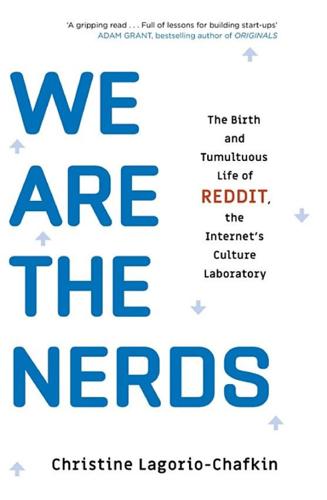
We Are the Nerds: The Birth and Tumultuous Life of Reddit, the Internet's Culture Laboratory
by
Christine Lagorio-Chafkin
Published 1 Oct 2018
Through a gauntlet of interviews with many Reddit staffers, plus journalist George Anders, who was brought in to conduct a mock press interrogation, Taylor proved she was patient, capable, and cared deeply about her subjects. She was passionate about Reddit as a platform for honest discussion and had already demonstrated that she could curate the sort of content the community loved. She had a Rolodex of celebrity contacts and had already displayed that she could deftly walk them through very authentic-feeling AMAs. She could bridge the gap between Reddit and Hollywood. Martin told Taylor the job was hers. Wong sought to professionalize Reddit in other ways. In July 2014, he hired a well-known startup consultant, who’d previously helped other YC alums during their growth toward “deca-corn” status, that is, a valuation of more than $10 billion.

The Rough Guide to Finland
by
Rough Guides
Published 31 May 2010
On the ground in Finland, I’d have been lost, confused and up a creek without the hospitality, knowledge and smiles of my close friends at the Helsinki City Tourist Office, especially the lovely Mari Lihr and Mrs. Hanna Porvari, who never once said Älä! when I rapped on their doors, and their wonderful colleagues Laura Itävaara (who conjured up a rolodex to rival that of Tyler Brûlé), Tiina Piipponen (who knew all the velvet ropes in town) and Jenny Taipale (who diplomatically tolerated my Karaoke voice at least once). Annica Grönlund (Visit Åland) ensured ample access to beach volleyball games, island guesthouses and expert cyclists; Berit Mariani-Cerati (Visit Southpoint Finland) single-handedly organized the most comprehensive three days of the summer; Virpi Hakkarainen (Kuopio) and Tarja Harinen (Joensuu) swiftly ferried me around Karelia and the Lake District from monastery to lumberjack community; and Mirka Syvänen and Janna Mylläri (Lahti Travel) pulled together a research trip to Lahti.

The Illegals: Russia's Most Audacious Spies and Their Century-Long Mission to Infiltrate the West
by
Shaun Walker
Published 15 Apr 2025
After graduating, Andrei made connections at the parent institution of the École des Ponts, the ENPC, which counted French economic attachés in embassies across the world among its graduates. He pitched a scheme to connect French businesses with potential partners in China. Soon, Andrei was arranging trips for leading French CEOs. “The Rolodex he would have picked up on those trips is quite something to think about,” remarked someone who was involved. When, fifteen years later, French intelligence officers came knocking at the École des Ponts, they were horrified to learn about these visits to China. They came back for several follow-up interviews, trying to work out if any of the participants had been compromised on the visits.

The Oil and the Glory: The Pursuit of Empire and Fortune on the Caspian Sea
by
Steve Levine
Published 23 Oct 2007
His strong suit was the grand idea and the salesmanship to pull it off, traits that his boss recognized and appreciated. So when Giffen proposed that they launch an international consulting business, Oztemel was ready to agree. Giffen was put in charge of the new subsidiary, Satra Consulting. His mission: to monetize Oztemel’s matchless Rolodex of important Soviet names. He was awarded shares of stock in the company, not enough to make him rich but a definite incentive to do well. Virginia Proehl detested Jim Giffen, this ambitious young man who had studied law under her husband, Paul, at UCLA. She thought, accurately enough, that Giffen was trying to lure his former professor into joining Satra Consulting, a venture that she regarded as loopy.

Who Stole the American Dream?
by
Hedrick Smith
Published 10 Sep 2012
“Washington derives so much of its power from the tax code—not just congressmen on the Ways and Means Committee, but lobbyists and lawyers.” Dirk Van Dongen cut his political teeth on tax bills—fighting for President Reagan’s tax cuts in 1981 and 1986, trying to torpedo President Clinton’s tax increases in 1993. As a Republican loyalist and a canny operative with a golden Rolodex, Van Dongen has the inside track; he knows whom to call and how to move things. “Dirk is always well positioned …,” said an admiring Chamber of Commerce official. “His political tentacles run deep.” Others talk about his talent for organization and his skill at leveraging business influence with Congress.
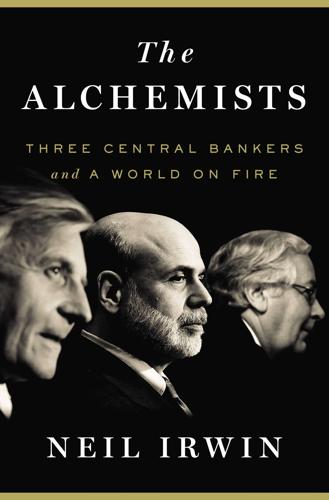
The Alchemists: Three Central Bankers and a World on Fire
by
Neil Irwin
Published 4 Apr 2013
“But once they realized what a loss it would be for the president if the nomination went down, they got engaged.” In the White House, Rahm Emanuel and David Axelrod, the president’s chief political adviser, began a campaign to lean on wavering senators. Emanuel, a man of manic intensity and with a deep Rolodex acquired from his days as a leader in the House of Representatives, worked the phones. So did the president himself, emphasizing the potentially disastrous impact to markets if Bernanke was rejected. Even Hillary Clinton, the popular secretary of state, mentioned the Bernanke confirmation in conversations with senators that were mainly about foreign policy matters.

Riding Rockets: The Outrageous Tales of a Space Shuttle Astronaut
by
Mike Mullane
Published 24 Jan 2006
Aviators live for the day they might be the first to take a new jet into the air, and we were being offered the first flight of a space shuttle. Like the Stockholm Syndrome hostages we were, we all groveled in thanks. George asked us not to publicly mention the assignment until the press release was made in a couple days. Mike Coats whispered to me, “When I get home, I’m calling everybody in my Rolodex.” There was no way I was going to withhold this information from my family, either. On the walk back to Building 4, I considered my incredible fortune. Besides getting the first flight ofDiscovery, I was also part of a great crew. At age forty-nine, snowy-haired Hank Hartsfield was the old man. He had come to NASA in 1969 as an air force test pilot with more than seven thousand hours of fighter jet flying time.
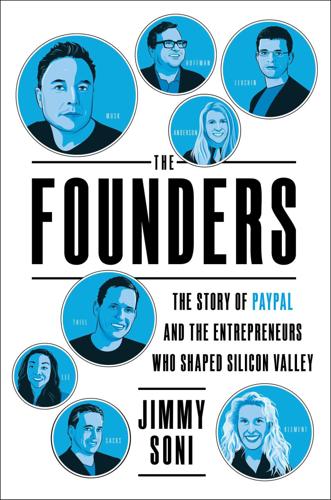
The Founders: The Story of Paypal and the Entrepreneurs Who Shaped Silicon Valley
by
Jimmy Soni
Published 22 Feb 2022
When the second rope burns out, 45 minutes will have passed. 3 THE RIGHT QUESTIONS Elon Musk’s adventures in finance began in college. He and his brother, Kimbal, had emigrated from South Africa in the late 1980s, and together they attended Queen’s University in Kingston, Ontario. To fill their empty Rolodex, they started cold-calling people they read about in the newspaper. At one point, Elon came across an article about Dr. Peter Nicholson, an executive at the Bank of Nova Scotia. Nicholson was educated in physics and operations research and brought his scientific acumen into the world of politics, policy, and finance.
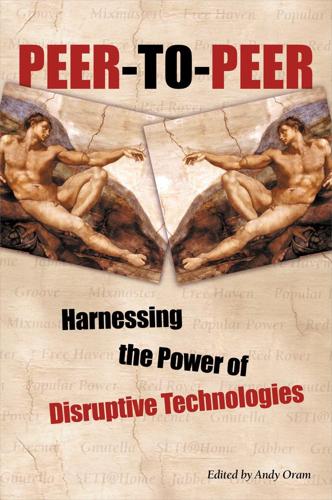
Peer-to-Peer
by
Andy Oram
Published 26 Feb 2001
Whether or not peer-to-peer fares any better than the Web, it certainly presents a new challenge for people concerned with describing and classifying information resources. Peer-to-peer provides a rich environment and a promising early stage for putting in place all we’ve learned about metadata over the past decade. So, before we go much further, what exactly is metadata? Data about data Metadata is the stuff of card catalogues, television guides, Rolodexes, taxonomies, tables of contents—to borrow a Zen concept, the finger pointing at the moon. It is labels like “title,” “author,” “type,” “height,” and “language” used to describe a book, person, television program, species, etc. Metadata is, quite simply, data about data. There are communities of specialists who have spent years working on—and indeed solving some of—the hard problems of categorizing, cataloguing, and making it possible to find things.

Dreams and Shadows: The Future of the Middle East
by
Robin Wright
Published 28 Feb 2008
Stimson Center offered extensive advice. Nicholas Noe, Hezbollah expert and editor in chief of Mideastwire.com in Lebanon, helped track Hezbollah documents. In Syria, sweet Dalia Haidar often had wise thoughts after tough interviews. I admire her determination and courage. Joshua Landis generously opened up his Rolodex so that I had a full range of contacts on all sides of the debate in Damascus. My wonderful friends Shaul Bakhash and Haleh Esfandiari have guided me for almost twenty years on the subject of Iran. The intrepid Lily Sadeghi has been my right hand on many trips there. I learned much from the Hadi Semati, who is the joyful Shirazi spirit personified, and Najmeh Bozorgmehr, a colleague at the Brookings Institution.
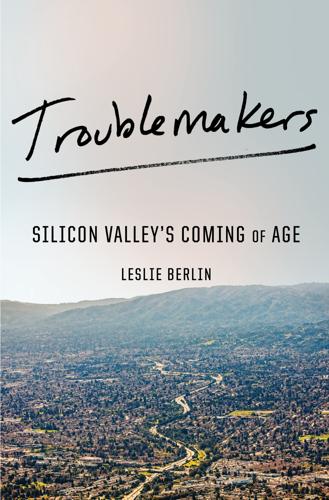
Troublemakers: Silicon Valley's Coming of Age
by
Leslie Berlin
Published 7 Nov 2017
When the L-O-G message was sent from UCLA to Engelbart’s lab at the Stanford Research Institute in October 1969, Taylor was making his way from Washington, DC, to Salt Lake City. He was taking with him across the country his wife and three children, the family station wagon and his prized Corvette, boxes of household goods, and his Rolodex listing the researchers who he felt were doing the best computer science work in the country. He also took with him one of the ID cards identifying him as a general. A military base not too far from the university had one of the few nearby bars, and Taylor wanted to be able to buy drinks at the canteen.

Generations: The Real Differences Between Gen Z, Millennials, Gen X, Boomers, and Silents—and What They Mean for America's Future
by
Jean M. Twenge
Published 25 Apr 2023
As Millennials were school-aged kids, teens, and young adults, the old world was fading, and the new one beginning. Websites and apps slowly replaced the traditional ways of communicating and gathering information: music CDs, Moviefone, DVDs, newspapers, card catalogs, cameras with film, public pay phones, paper maps, phone books, faxes, Rolodexes. Boomers and Gen X’ers used these things, Millennials used them or have heard of them depending on their specific birth year, and Gen Z has never heard of more than half of them unless they watch old TV shows. In the late 1990s, music was going digital in the form of MP3 files, but the music industry hadn’t caught up with how to sell digital music.
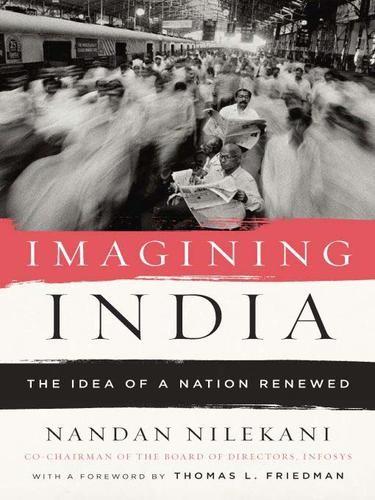
Imagining India
by
Nandan Nilekani
Published 25 Nov 2008
My plan of covering eighteen ideas in the book—from entrepreneurship to energy, from schools to single markets and population to pensions—was daunting indeed. In an era when writers were getting more specialized, I was going the other way. I realize now that it was the happy ignorance of an amateur. I decided that to make up for my inadequacies, I would use my Rolodex to talk to the experts and participants in the great journey of India’s transformation. And they were without fail generous with their time, while discussing their work with me and directing me to the right texts. My engineering education had little time for sociology, and I am especially grateful to the wise André Béteille, who explained the intricacies of India’s castes and the dramatic changes happening there.
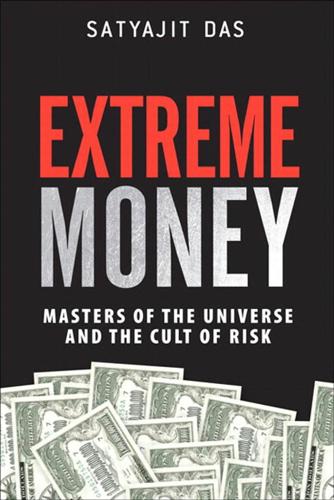
Extreme Money: Masters of the Universe and the Cult of Risk
by
Satyajit Das
Published 14 Oct 2011
Gupta had been McKinsey’s global managing director for almost a decade until 2003 and remained on its partnership board until 2007. Gupta faced civil insider trading charges for allegedly sharing secret information acquired as a board member of Goldman Sachs and Procter & Gamble. Robert Khuzami, director of enforcement at the Securities and Exchange Commission, described Rajaratnam as “a master of the Rolodex” rather than “a master of the universe.” The investigation focused on expert network firms, which provided “independent investment research.” Redefining the concept of expertise, these firms seemed to specialize in matching insiders with traders hungry for privileged information, routinely allowing access to non-public sensitive inside information on sales forecasts and earnings.

The Looming Tower: Al-Qaeda and the Road to 9/11
by
Lawrence Wright
Published 26 Sep 2006
In the new era of a globalized FBI, O’Neill learned, it was one thing to solve the case, another to gain justice. O’NEILL LONGED TO GET OUT OF WASHINGTON and “go operational.” He wanted to supervise cases again. In January 1997 he became special agent in charge of the National Security Division in New York, the bureau’s largest and most prestigious field office. When he arrived, he dumped four boxes of Rolodex cards on the desk of his new secretary, Lorraine di Taranto. Then he handed her a list of everyone he wanted to meet—the mayor, the police commissioner, the deputy police commissioners, the heads of the federal agencies, and religious and ethnic leaders in all five boroughs. Within six months, he had checked off all the people on his list.

The Language Instinct: How the Mind Creates Language
by
Steven Pinker
Published 1 Jan 1994
Contamination, including the emotion of disgust, reactions to certain things that seem inherently disgusting, and intuitions about contagion and disease. Monitoring of current well-being, including the emotions of happiness and sadness, and moods of contentment and restlessness. Intuitive psychology: predicting other people’s behavior from their beliefs and desires. A mental Rolodex: a database of individuals, with blanks for kinship, status or rank, history of exchange of favors, and inherent skills and strengths, plus criteria that valuate each trait. Self-concept: gathering and organizing information about one’s value to other people, and packaging it for others. Justice: sense of rights, obligations, and deserts, including the emotions of anger and revenge.
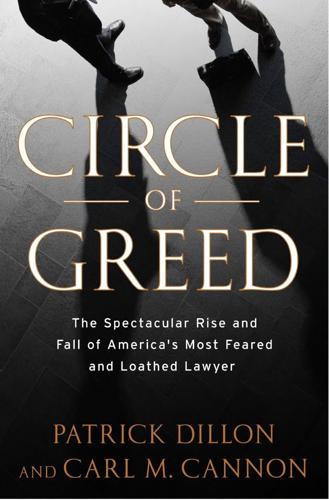
Circle of Greed: The Spectacular Rise and Fall of the Lawyer Who Brought Corporate America to Its Knees
by
Patrick Dillon
and
Carl M. Cannon
Published 2 Mar 2010
It didn’t take long for Weiss, Bershad, and their partners Steven Schulman and Robert Sugarman (also a Long Island neighbor) to conceive of a plan whereby Tullman would become more valuable as a broker and plaintiff referrer than as an attorney. Because he was still a member of the New York State Bar, he would receive attorney’s “referral fees,” even though his work had nothing to do with the law. Tullman had a big Rolodex filled with clients, friends, and clients of other brokers who would soon become named plaintiffs for the firm. For this new partnership with the firm, he would earn nearly $9 million. In landing these three accomplices, Milberg Weiss scored the kind of trifecta that thrilled Mel Weiss when he hit them at the racetrack: Lazar, an eager plaintiff willing to sit for hours in depositions delivering coached answers; Torkelsen, whose stage presence as an expert witness was worthy of an Oscar; and Tullman, who was in a perfect position to spot cases and the plaintiffs who would bring them in.
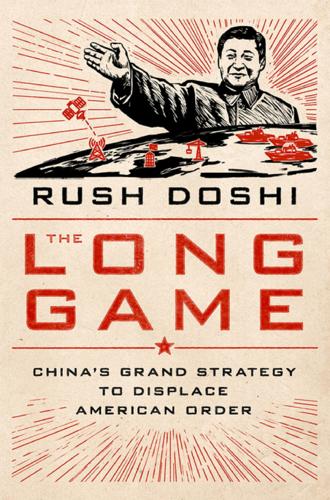
The Long Game: China's Grand Strategy to Displace American Order
by
Rush Doshi
Published 24 Jun 2021
That same year, China joined the World Bank, and English-speakers were needed to staff its new office in Washington. His advisrs encouraged him to go, and Jin switched careers from English to banking. He spent a dozen years at the World Bank and then the Asian Development Bank, rising to become its first Chinese vice president, and developed a résumé and Rolodex in multilateral finance no other Chinese official could match. When China decided to build its own development bank, Jin was the logical choice. Jin is not so dissimilar from the bank he helped found. Both are outwardly cosmopolitan. Jin’s bookshelves are filled with Shakespeare and Faulkner, and his bank’s membership is filled with American allies and partners.

This Is How They Tell Me the World Ends: The Cyberweapons Arms Race
by
Nicole Perlroth
Published 9 Feb 2021
He had found it as a private citizen. Any number of other high-level hackers could have found it. It took another nine months, but the agency ultimately ruled in his favor. He was free to do whatever he wanted with his zero-day. His first stop was a buddy at a now-extinct company called Transversal Technologies, who maintained a Rolodex of government contacts at relevant intelligence agencies. For a 10 percent cut, his friend agreed to shop Charlie’s zero-day around to various U.S. agencies. One government agency—Charlie never did disclose which—came back quickly with an offer of $10,000. It was a nice premium over what iDefense and others were offering, but a lowball compared to what some agencies were rumored to have paid.

Slouching Towards Utopia: An Economic History of the Twentieth Century
by
J. Bradford Delong
Published 6 Apr 2020
I have a hard time believing that I can even approach the historian’s ideal of telling the narratives wie es eigentlich gewesen, as they essentially came to pass, or viewing things sine ira et studio, without anger or bias, seeing and understanding rather than advocating and judging.40 The way to bet, however, is that I personally cannot but overestimate the degree to which bad luck and bad choices by powerful and crucial individuals produced the rather sorry state of the global north as of 2010. I do now think that bad luck and bad choices—hanging chads in ballots in Florida voting machines in 2000, George H.W. Bush giving the astonishingly unqualified-for-the-job George W. Bush his Rolodex and his full support, and what followed that—plus the weaknesses and errors of neoliberalism are what cracked the system from 2000 to 2007. I do now think that things were so badly cracked as of 2007 that the shattering of the system by 2010 was likely, if not inevitable. With skill and luck, could things have been glued back together?
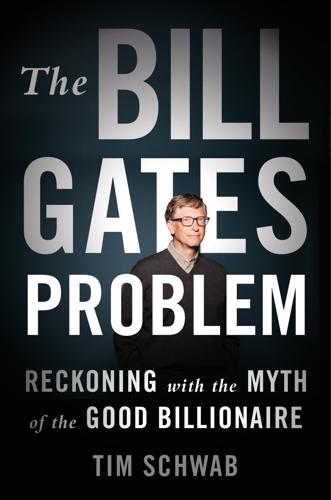
The Bill Gates Problem: Reckoning With the Myth of the Good Billionaire
by
Tim Schwab
Published 13 Nov 2023
When he died, the financier’s estate was valued at $577 million. He also left a legacy of philanthropic giving, directing money to scientific research and universities and participating with Bill Clinton on charitable activities in the early 2000s (before Epstein’s first arrest). Also like Gates, Epstein was something of a power broker, building a rich Rolodex of contacts from the top echelons of science, finance, and politics. A now-famous picture of Gates and Epstein also includes Larry Summers, former U.S. treasury secretary, and James Staley, at the time a top executive at JPMorgan. Many believe that Epstein’s expansive connections to high-powered men helped him secure his plea deal in 2008, when he faced charges that could have locked him away for the rest of his life.
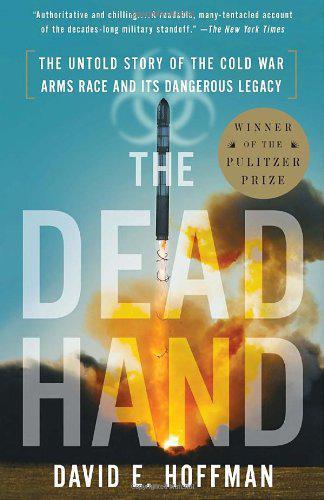
The Dead Hand: The Untold Story of the Cold War Arms Race and Its Dangerous Legacy
by
David Hoffman
Published 1 Jan 2009
He started a personal effort to help nuclear scientists link up with American firms. "I would try to get scientists to show me what they could do, to really display their most outstanding talents," he said. Then he would seek out American companies that could pay for their skills. "I had no big program or budget," he said. "Just a rolodex and a head for business." When a few early efforts succeeded, scientists who had been receiving a paltry $7 a month soon were bringing in $3,000 or $4,000. They told colleagues, leading to new contacts, and Fairfax was soon a welcome visitor at the once-secret nuclear cities across Russia. He was even granted an official security pass to enter Minatom's headquarters in Moscow, the nerve center of the nuclear empire.
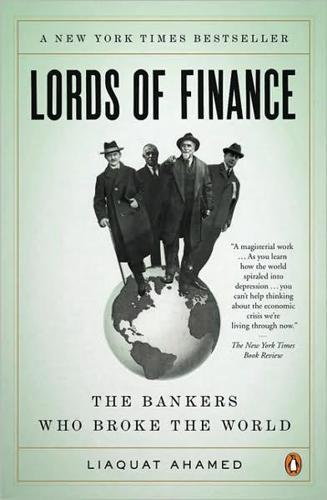
Lords of Finance: The Bankers Who Broke the World
by
Liaquat Ahamed
Published 22 Jan 2009
He was also a proponent of selective breeding and was secretary of the American Eugenics Society; he believed that mental illness originated from infections of the roots of the teeth and of the bowels and, like Babson, was a fervent advocate of Prohibition—by 1929, he had even written two books on the economic benefits of Prohibition. Again like Babson, he was a wealthy man, having invented a machine for storing index cards—a precursor of the Rolodex—the patent of which he sold to Remington Rand in 1925 for several million dollars. By 1929, he was worth some $10 million, all of it invested in the stock market. Prefacing his remarks with the concession that “none of us are infallible,” Professor Fisher declared, “Stock prices are not too high, and Wall Street will not experience anything in the nature of a crash.”

Frommer's Egypt
by
Matthew Carrington
Published 8 Sep 2008
There’s not going to be anything elaborate about the affair, but for a few nights in the desert close to the oasis at a decent price, you’ll be in good hands. SINAI Sparsely populated but impressive and ruggedly beautiful, the Sinai Peninsula used to be pretty inaccessible without your own 4×4 and a thick Rolodex of contacts. Fortunately, a couple of companies are making it a lot easier to get out and see this fascinating part of Egypt. Prices tend to be marginally higher on the Sinai than in the Western Desert. Both the companies below are open and upfront about their pricing policies, however, and can be trusted to present you with an honest, take-it-or-leaveit price.
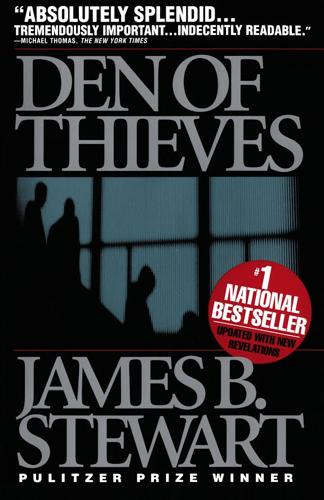
Den of Thieves
by
James B. Stewart
Published 14 Oct 1991
"Then I'll have to do it myself," Levine said impatiently. "I'll meet you at your office tonight." Levine arrived around 8 p.m. It was a Friday evening, and the Lazard offices were deserted. Levine seemed relaxed, in command. He began sweeping through the offices, going through papers on desks, opening drawers and files, examining the diaries and Rolodexes of partners he knew. He even stopped to admire a cache of Cuban cigars in partner Louis Perlmutter's office. Wilkis was petrified, hovering in the corridors while Levine searched, anxiously looking toward the entrances. How would he explain this if someone came in? Suddenly he heard a noise at the door and saw the knob turn, and his heart leaped.
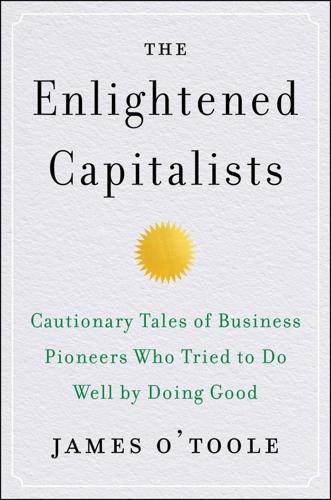
The Enlightened Capitalists
by
James O'Toole
Published 29 Dec 2018
Worried that the firm in which he was a partner was overly dependent on its septuagenarian rainmaker Weinberg, Whitehead reorganized it. His creation of a new-business department, with managers assigned to regional areas, allowed the firm to expand nationally and beyond the contacts in Weinberg’s impressive but East Coast–limited Rolodex. He launched other departments—investment banking services, equity sales—and entered several new lines of business, in essence creating a formal organization at Goldman, which to that point had been managed informally as a small partnership with little specialization among its staff. By the end of the 1960s Goldman was a national firm, one of the “big five” investment banks.
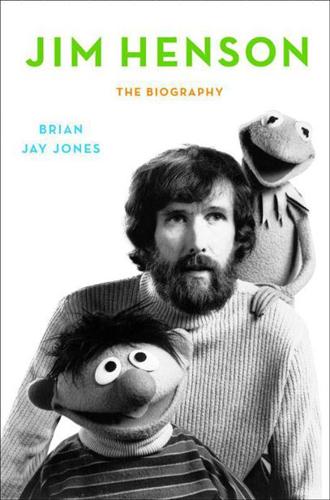
Jim Henson: The Biography
by
Brian Jay Jones
Published 23 Sep 2013
Further, the pay wasn’t great; most of the budget for The Muppet Show was wrapped up in design and production, which didn’t leave a lot left over to entice guests. Most would be paid a flat rate of $3,500 for their appearance—“very, very little money,” said Lazer. It was left largely up to Brillstein to make the pitch and appeal to clients and agents. For the first two shows—and much of the first season, in fact—Brillstein dug into his personal Rolodex and called in a few favors, courting and finally landing dancer Juliet Prowse for the first show and actress Connie Stevens for the second. “The first … guests were … friends of mine who did favors,” said Brillstein. “We couldn’t get anyone else.… They did the show for me.” Taping for both episodes went quickly—each show was filmed in less than a week—and on February 14, Jim returned to the United States to screen the two pilots with Abe Mandell and ITC executives in New York.

Saving America's Cities: Ed Logue and the Struggle to Renew Urban America in the Suburban Age
by
Lizabeth Cohen
Published 30 Sep 2019
A CPI publication articulated well the renewers’ aspiration not simply to be expert but also to propagate experts: “The large number who have moved on to much higher-paying positions in the Northeast and elsewhere in the nation” made New Haven “one of the nation’s most important training grounds for leaders in antipoverty and urban-improvement programs.”74 For decades Logue kept in close contact with former colleagues, often hiring them back as consultants and staffers when he moved into a new position. Few people ever disappeared from Logue’s Rolodex. Most made repeated entrances and exits throughout his half-century-long career in urban redevelopment, members of a professional club with life membership. Nationally networked urban renewers also took their expertise abroad, often back to the developing world, where many had gained crucial experience early in their careers.
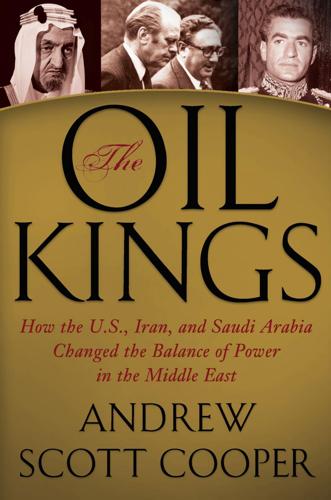
The Oil Kings: How the U.S., Iran, and Saudi Arabia Changed the Balance of Power in the Middle East
by
Andrew Scott Cooper
Published 8 Aug 2011
On one occasion, when the Shah was deep in conversation with Henry Kissinger, Zahedi arrived and hailed the American with a greeting that could most charitably be described as irreverent. The Shah muttered under his breath in Farsi, “Don’t create a problem, Ardeshir!” Over the years, Ardeshir Zahedi compiled a formidable Rolodex of famous names ranging from Hollywood celebrities to heads of corporations and presidents, kings, queens, and prime ministers. As ambassador and foreign minister, Zahedi was especially attentive to the great men who ruled American public life during the Cold War and especially Republican politicians like Richard Nixon, Nelson Rockefeller, Barry Goldwater, and Ronald Reagan.
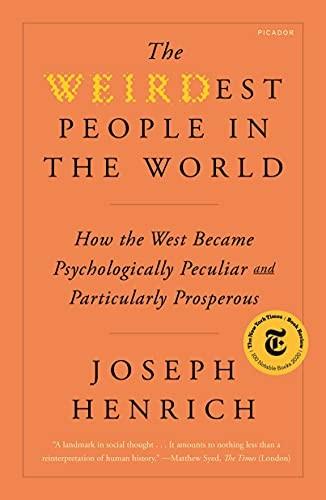
The WEIRDest People in the World: How the West Became Psychologically Peculiar and Particularly Prosperous
by
Joseph Henrich
Published 7 Sep 2020
Property was corporately owned by the clan or one of the lineages, and rights to use properties and partake in profits was dependent upon both descent and economic contributions. Genealogies were constructed that linked different patrilineages to a common ancestor, and these genealogies provided road maps and Rolodexes to commercial contacts and connections among Hui merchants. Bonds among Hui lineages created the trust necessary for lineages to extend each other credit and capital. Hui businesses were staffed by lineage members and their domestic servants. In this world, the degree of commercialization in different regions increased with the elaboration of kin-based ties and the strength of these lineage organizations.
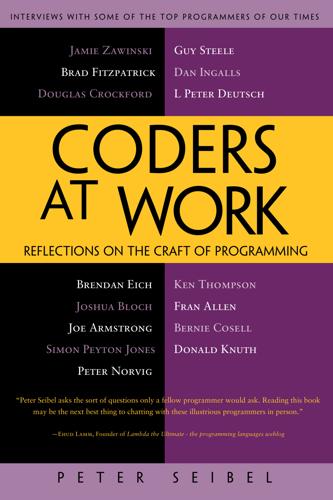
Coders at Work
by
Peter Seibel
Published 22 Jun 2009
Nobody, at least on the Unix side, had any idea they wanted it yet. Everyone uses them now but we had to spend a lot of time explaining to people why this was better than vi and GCC. Anyway, I'd done a bit of Emacs stuff. I guess by that point I'd already rewritten the Emacs byte compiler because—why did I do that? Right, I'd written this Rolodex phone/address-book thing. Seibel: Big Brother Database? Zawinski: Yeah. And it was slow so I started digging into why it was slow and I realized, oh, it's slow because the compiler sucks. So I rewrote the compiler, which was my first run-in with the intransigence of Stallman. So I knew a lot about Emacs.
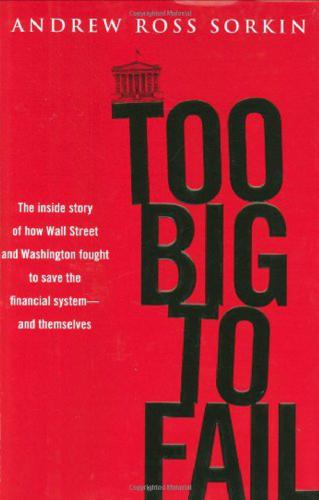
Too big to fail: the inside story of how Wall Street and Washington fought to save the financial system from crisis--and themselves
by
Andrew Ross Sorkin
Published 15 Oct 2009
Once Braunstein got to the office, he, Dimon, and Black huddled to come up with a game plan about how to handle the Fed’s unusual request. They decided to enlist the help of James B. Lee Jr., the firm’s vice chairman. Dimon hurried down the hall to give Jimmy Lee his marching orders. Lee, a classic suspender-wearing banker with a Golden Rolodex, had also arrived early to help manage the aftermath of Lehman’s collapse and had just gotten off the phone with one of his big clients, Rupert Murdoch. Sitting at a desk flanked by four computer screens, with a giant flat-screen television tuned to CNBC’s Squawk Box and his own private news ticker on the wall modeled after the Zipper in Times Square, Lee spun around in his chair.

Ayn Rand and the World She Made
by
Anne C. Heller
Published 27 Oct 2009
Just then his assistant knocked, entered, and handed him a set of X-rays. The doctor placed her chest X-ray onto a viewing box and, stunned, replied, “Here is a good reason.” There was a lesion on one of her lungs. She had lung cancer. She stubbed out her cigarette. The doctor began searching through his Rolodex for surgeons. She took the news calmly—more calmly than she took any indication of physical ill health in Frank. She entered New York Hospital and had one lung removed. In accord with the practice of the time, she remained in the hospital for nearly a month. She was an obstreperous patient, even though she was medicated heavily for pain.
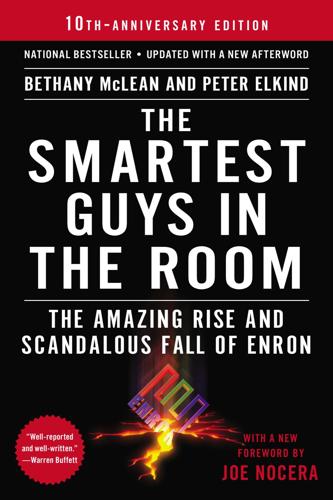
The Smartest Guys in the Room
by
Bethany McLean
Published 25 Nov 2013
He made a point of greasing the deal with a rare personal appeal to Pai. “I know you’re going to raise a stink about this—don’t,” Skilling pleaded. When Baxter got the official word, it was early evening. The next morning he jumped in his car and started off on the 600-mile trip back to Houston, leaving his family photos, Rolodex, and deal toys behind in his office. Koch executives arrived the next morning to discover that Baxter, after just two months on the job, had disappeared without a word. • • • There was one final piece of the puzzle. If ECT was going to grow as rapidly as Skilling wanted, he needed more than long-term gas contracts and more than a trading operation.
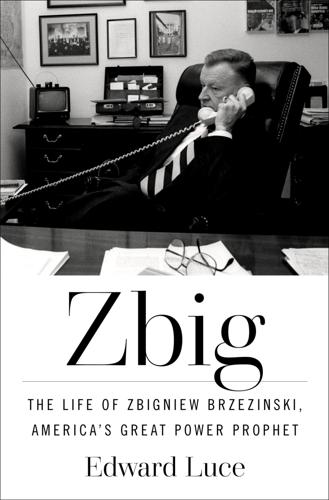
Zbig: The Life of Zbigniew Brzezinski, America's Great Power Prophet
by
Edward Luce
Published 13 May 2025
They spent Christmas among Cambodians near Angkor Wat, took a risky survey in a CIA plane of rebel Pathet Lao territory, dined on “Half-Chinese Half-Hindu [sic]” cuisine in Thailand, ate worms with chopsticks in Macau, and sampled the Ginza’s risqué nightlife in Tokyo. The trip bolstered Brzezinski’s Rolodex of rising politicians, many of whom would later lead their nations. His networking was expanding to half of the world. The tour also underlined what was turning into his lifelong affinity for Japan. Shortly after their return to America, Muska got pregnant again. After years of trying, the couple was fatalistic.

Chokepoints: American Power in the Age of Economic Warfare
by
Edward Fishman
Published 25 Feb 2025
More often, it takes a complex network of backers—politicians, businesspeople, thought leaders, and voters, each with divergent priorities and interests—for anything to get done. Peter Harrell, who’d once covered that process as a reporter for Congressional Quarterly, knew it would be no different for his and Andrea Gacki’s idea for a price cap on Russian oil. So he set about releasing it into the ecosystem, working through his Rolodex of energy executives, oil traders, and fellow sanctions experts. The feedback he received was a collective and resounding “no.” How could the U.S. government—let alone the multitude of banks, insurance companies, refineries, and shipping firms involved in the global oil trade—verify the exact price paid for any given cargo of Russian oil?

USA's Best Trips
by
Sara Benson
Published 23 May 2010
As the students retreat in the wee hours of the night to tackle their books, hang your hat at the gorgeous Harvard Faculty Club on Quincy St, just east of the Old Yard. Despite the name, this stunning colonial mansion is open to all members and friends of the Harvard community (so you better bust out the Rolodex to track down an invitation!). The upstairs bedrooms are swathed in floral prints and covered in a blizzard of doilies. Each room also comes with Cambridge’s most precious commodity: a parking space. In the morning get an early start and take I-95 south out of the Boston city limits to quieter Providence.
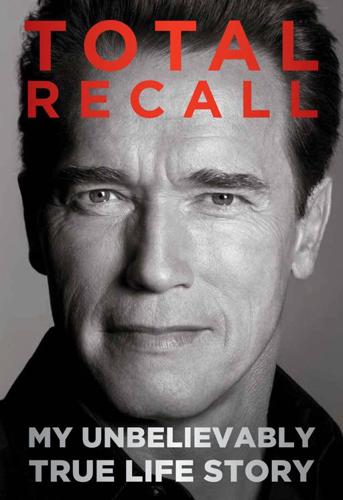
Total Recall: My Unbelievably True Life Story
by
Arnold Schwarzenegger
and
Peter Petre
Published 30 Sep 2012
Afterward, she decided, “We need more people and soon. And we need someone to come in on top and stabilize this thing.” She called Bob White in Sacramento, who had helped launch the after-school campaign and who had recommended most of the guys I was working with. “You’ve got to come down here,” she told him. “You’ve got to help.” So Bob opened his Rolodex and guided us to a campaign manager, a strategist, a policy director, and a communications chief. He also stayed on himself, informally overseeing it all. Ex-governor Pete Wilson pitched in as well. Not only did he endorse me but he also volunteered to hold a fund-raiser at the Regency Club and joined me in lining up big donors over the phone

Enlightenment Now: The Case for Reason, Science, Humanism, and Progress
by
Steven Pinker
Published 13 Feb 2018
With a terabyte of storage on my laptop I no longer buy paper by the ten-ream box. And just think of all the plastic, metal, and paper that no longer go into the forty-odd consumer products that can be replaced by a single smartphone, including a telephone, answering machine, phone book, camera, camcorder, tape recorder, radio, alarm clock, calculator, dictionary, Rolodex, calendar, street maps, flashlight, fax, and compass—even a metronome, outdoor thermometer, and spirit level. Digital technology is also dematerializing the world by enabling the sharing economy, so that cars, tools, and bedrooms needn’t be made in huge numbers that sit around unused most of the time.

Dirty Wars: The World Is a Battlefield
by
Jeremy Scahill
Published 22 Apr 2013
So if you have any ideas on how to get help across and in accordance to law in a climate that is strict to start with please let me know. Tell more about yourself. I will keep an eye for a sister.” Sent on February 22, 2009, that was the last e-mail Awlaki is known to have sent to Hasan. Over the next several months Hasan continued to e-mail Awlaki. “I know your busy. Please keep me in your rolodex in case you find me useful and feel free to call me collect,” Hasan wrote. From there on out, the communications were a one-way road. The tone of Hasan’s e-mails became like that of a patient in therapy attempting to work through difficult life decisions. In one e-mail, sent in May 2009, Hasan pontificated on the morality of suicide bombings and raised “the issue of ‘collateral damage’ where a decision is made to allow the killing of innocents for a valuable target.

Before the Storm: Barry Goldwater and the Unmaking of the American Consensus
by
Rick Perlstein
Published 17 Mar 2009
Lyndon Johnson was his own campaign manager. He organized his shop as he did all his endeavors: in overlapping, informal, task-oriented circles including only those advisers who knew to give him only advice he wanted to hear. Washington superlawyers Jim Rowe, Clark Clifford, and Abe Fortas combed their bulging Rolodexes for names of people to convince to become figureheads to chair twenty-six Johnson-Humphrey citizens committees (Rural Americans for Johnson-Humphrey, Women for Johnson-Humphrey, Senior Citizens, Lawyers, College Students, Union Women, Southerners, Criminologists, Republicans for Johnson and Humphrey; every imaginable ethnic group for Johnson-Humphrey ...) set up in order to circumvent the law restricting the circulation of literature by political parties.

The Price of Silence: The Duke Lacrosse Scandal
by
William D. Cohan
Published 8 Apr 2014
The committee considered two hundred candidates and winnowed that list down to ten people whom it chose to interview. Steel said Brodhead stood out, even on the short list. “You didn’t have to be Dick Tracy to find Dick Brodhead,” Steel explained. Steel, then a senior partner at Goldman Sachs with an impressive Rolodex, heard about Brodhead from a member of the Duke community whose daughter Brodhead had taught at Yale. Steel and the committee vice chair, Sara Beale, had their first meeting with Brodhead at a small restaurant off Interstate 95 in Connecticut. “Steel knew something about the Ivy League . . . and he believed that the rich and venerable old schools were a bit sclerotic,” Peter Boyer wrote in the New Yorker years later.
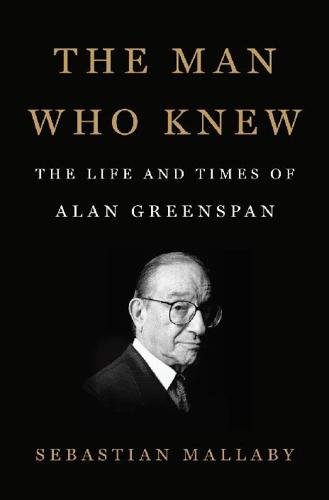
The Man Who Knew: The Life and Times of Alan Greenspan
by
Sebastian Mallaby
Published 10 Oct 2016
The resulting investment returns were barely respectable—after all, Greenspan was offering little more than the advice he gave to the roster of more sophisticated investment teams that retained him as a consultant. But the firm’s clearest failure had to do with marketing. Greenspan had been recruited on the theory that he would attract business from corporate pension funds, but he refused to use his Rolodex to land clients; indeed, he even discouraged the marketing staff from approaching companies he knew intimately. It was an example of how, in certain contexts, Greenspan’s scruples could dominate his behavior: he had been willing to lend his name to Josephson’s venture, but he was not willing to risk his reputation by urging friends to entrust money to it.

Pandora's Star
by
Peter F. Hamilton
Published 2 Mar 2004
The Human Structure Foundation had chosen a level of technology equal to the early twentieth century, prior to the electronic revolution; the kind of engineering and mechanics that was easily maintained. Nothing here needed computer diagnostics when it broke down; engineers could see what was wrong amid a machine’s cogs and cables. It was the same with information, there were no arrays, databases, or networks; offices of clerks and accountants kept books and files and Rolodexes. The Foundation had designed people to work at specific jobs, and those jobs wouldn’t metamorphose with progress—there was no progress. Huxley’s Haven provided its inhabitants with the most secure stable society it was possible to have. She still couldn’t decide if the Foundation had been morally right to begin the whole project, but looking out at the trim neat fields and the picture-perfect farms, she had to admit now that it worked.
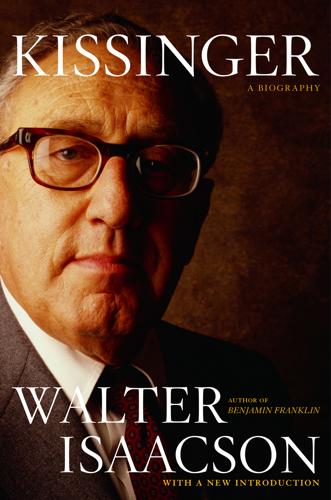
Kissinger: A Biography
by
Walter Isaacson
Published 26 Sep 2005
His attempt to juggle the roles of media commentator, business consultant, and unofficial government adviser provides an interesting case study of the standards of public, business, and journalistic conflicts of interest. Kissinger was part of an old if not particularly venerable breed in Washington: top officials who leave government and then find themselves paid handsomely by clients who value not just their minds and talents, but also their connections, clout, and Rolodexes. Some make it seem more respectable by doing it under the thin guise of being lawyers. Others come right out and call themselves lobbyists and consultants. There is no clear line between what is acceptable and what is not. Rather, it is a matter of degree, discretion, and style. Countless stabs at revising the Ethics in Government Act have produced a few principles for what is considered proper in this game: the longer you wait after leaving office, the less of an impropriety there tends to be, and it is best not to lobby those you once worked with.
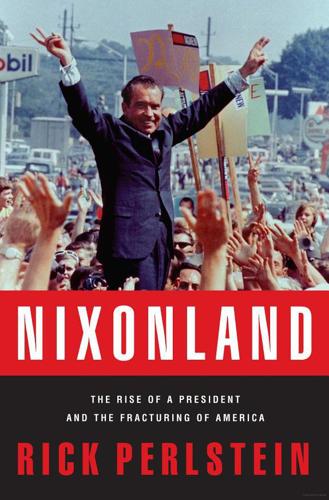
Nixonland: The Rise of a President and the Fracturing of America
by
Rick Perlstein
Published 1 Jan 2008
He brought with him his longtime secretary, Rose Mary Woods, his bureaucratic second skin (they joked she was the “fifth Nixon”: Pat, Dick, Tricia, Julie, just like the Beatles), a hardscrabble, working-class Chicago Irish girl who some said spotted the young senator as her own chance to make it to the White House. Her Rolodex big as a basketball, she typed up ingratiating notes to VIPs for “Dick”’s signature at every possible opportunity: J. Edgar Hoover, newspaper publisher Walter Annenberg, the third-world potentate Nixon had met on some 1955 Latin American tour who had suddenly taken sick. Life, in a sense, was sweet.

Reaganland: America's Right Turn 1976-1980
by
Rick Perlstein
Published 17 Aug 2020
So he nearly gave up: stopped making the requisite phone calls, and at Reagan appearances jabbered with his reporter pals instead of sucking up to guests. Helene von Damm tried to draft one of the big wheels from Reagan’s old gubernatorial “kitchen cabinet,” pharmaceutical magnate Justin Dart, to work through his Rolodex. Surely insulted at how they had been sidelined, Dart turned her down. Another prospect, a dehydrated onion and garlic tycoon, refused after studying the balance sheets. Meese’s notes from that meeting: “Lack of ctrl + direction + morale.” Fundraising ideas like selling T-shirts with a Norman Rockwell portrait of Reagan failed.